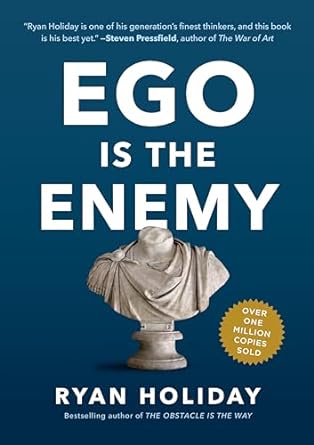

TURNING CHALLENGES INTO OPPORTUNITIES
The Power of Entrepreneurship in Tough Economic Times
Economic downturns can be daunting. For many, they represent uncertainty, financial strain, and diminished opportunities. But for entrepreneurs, a downturn can be the perfect storm for creativity, innovation, and resilience. History has shown us time and again that adversity can spark ingenuity, and some of the most successful businesses and ideas emerge when the economy is at its weakest.
Entrepreneurship during tough times is not just an act of survival. It’s a powerful tool for driving innovation, creating opportunities, and contributing to economic recovery. While the challenges are undeniable, they are far from insurmountable. For individuals with a vision and the determination to execute it, downturns are not barriers but opportunities waiting to unfold.
How Entrepreneurship Drives Innovation in a Downturn
One of the defining traits of entrepreneurs is their ability to adapt and innovate. During an economic downturn, consumers often change their spending habits, companies cut costs, and industries look for ways to streamline operations. This turbulence creates gaps in the market that savvy entrepreneurs can fill.
Instead of playing by the old rules, entrepreneurs often create new ones. Take Airbnb, for instance. Founded during the Great Recession of 2008, the platform responded to a very specific problem. People were struggling to make ends meet and were looking for more affordable travel options. By turning spare rooms or homes into temporary accommodations, Airbnb not only provided cost-effective solutions for travelers but also helped hosts generate extra income. It was a win-win proposition built on innovation driven by necessity.
Innovation also thrives when resources are limited. With less money to spend on extravagant solutions, entrepreneurs are pushed to develop leaner, more efficient, and sometimes disruptive alternatives. Some of the most ground-breaking ideas come from these moments because necessity forces a rethinking of the norm. For instance, Slack initially started as an internal communication tool for a gaming company. Faced with challenges, the team realized the potential was far greater for a broad market, and so Slack pivoted into the success we now know today.
Building Opportunities Where Others See Challenges
One of the most critical aspects of entrepreneurship during a downturn is the mindset shift. Where others see closed doors, entrepreneurs seek windows of opportunity. These shifts are not just about selling products or services but creating solutions tailored to the time.
For example, when the tech bubble burst in the early 2000s, many were skeptical about building internet-based businesses. But Jeff Bezos, the founder of Amazon, persisted, focusing on long-term growth rather than short-term profits. Despite setbacks, Amazon expanded its offerings and streamlined its operations. Today, it stands as one of the world's largest entities reshaping commerce globally.
Another example is Netflix. Founded just before the dot-com crash, Netflix initially thrived through DVD rentals, and when broadband and streaming technology became more widespread, it shifted its service model to revolutionize entertainment. While peers faltered or disappeared, Netflix survived because it consistently sought opportunities in market shifts.
Crucially, businesses formed in these tough times often have a stronger foundation. Why? Because they are forced to function with discipline, resourcefulness, and a focus on solving real problems rather than chasing fleeting trends. These companies learn to do more with less and become highly resilient in the process, enabling them to expand more sustainably as the economy recovers.
The Catalytic Role of Entrepreneurs in Economic Recovery
When economic trouble hits, layoffs often surge, and people grow anxious about finding stable work opportunities. Entrepreneurs help ease this burden by creating jobs. Even small businesses, which form the backbone of many economies, make a big difference. Each café, freelance agency, or tech startup creates a ripple effect, boosting employment and providing people with livelihoods.
Beyond job creation, entrepreneurship can reset industries. For example, during the 2008 crisis, fintech companies like Square stepped up to help small businesses manage payments more efficiently through mobile devices. It wasn’t just about new products but entire ecosystems that leveled the playing field for smaller players.
The collective impact of these innovations often speeds up recovery. Governments and financial experts frequently cite entrepreneurship as one of the key elements in rebuilding an economy. Fresh energy and ideas ushered in by entrepreneurs spark competition, and this, in turn, reanimates stagnant markets. History shows us that economies are remarkably adaptive when they’re driven by individuals bold enough to think differently.
Overcoming Challenges as an Entrepreneur in Tough Times
That said, thriving as an entrepreneur during a downturn is not without its hurdles. Tight credit markets, cautious investors, and dwindling consumer spending can make progress feel like an uphill battle. However, the most successful entrepreneurs don’t run from these challenges; they face them head-on.
Here are some strategies for overcoming common hurdles during an economic downturn:
1. Focus on Building Relationships Over Transactions
When times are tough, consumers and businesses alike are cautious with spending. Instead of solely focusing on sales, prioritize building trust and long-term relationships. Loyal customers and clients will stick with you even in stormy weather if they see value in what you offer.
2. Bootstrap and Stay Lean
Recessions force efficiency. Focus only on essentials in your business. Bootstrapping, or funding your venture with minimal outside investment or credit, keeps you agile and reduces the risk of overextension. For example, the founders of WhatsApp famously kept costs razor-thin during its initial stages, focusing solely on refining their messaging app. This lean model helped them thrive and ultimately led to one of the largest acquisitions in tech history.
3. Identify Niche Markets
During downturns, broad markets become unpredictable. But niche markets, often overlooked, remain stable or even grow. Entrepreneurs who identify specific pain points and tailor their services tend to find loyal followings even during a recession.
4. Seek Out Creative Funding Options
Traditional loans or venture capital might not be readily available in tighter financial climates, but other options like crowdfunding, government grants, or partnerships can act as lifelines for entrepreneurs. The key is resourcefulness and being open to alternative funding pathways.
5. Stay Resilient and Flexible
Pivoting when necessary is a hallmark of great entrepreneurs. Recognize when a strategy isn’t working, and don’t fear shifting direction to adapt to changing market needs.
Inspiring Stories of Entrepreneurs Who Beat the Odds
Recessions might not be ideal, but they’ve been fertile ground for iconic businesses. Walt Disney launched his company in the 1920s during the Great Depression. Toy company Lego remained resilient throughout the 1930s, capturing joy during turbulent times. More recently, companies like Uber and WhatsApp rose to prominence out of the 2008 downturn.
What sets these businesses apart isn’t just luck. They embody the qualities that shine brightest during tough times: grit, adaptability, and a focus on problem-solving. They faced roadblocks, found opportunities, and ultimately changed the way we live.
Why Now is the Time for You to Start
It’s easy to feel that a downturn is a bad time to start something new, but it might be one of the best opportunities you’ll have. Interest rates may drop, hiring talent may be easier as layoffs rise, and many investors and partners may actively seek new ideas to drive growth. It’s a time to make bold moves while others are sitting on the fence.
More importantly, entrepreneurship isn’t just about building a business; it’s about building hope. By stepping into the role of an entrepreneur, you have the chance to contribute not just to your life’s stability, but to the lives of employees, consumers, and even your wider community. You can help create solutions that make a difference.
If there’s anything we’ve learned from history, it’s this: entrepreneurs are often the ones who drive recovery and shape the future. Don’t wait for a perfect time; tough times are often the perfect launchpad for greatness. With the right mindset, plan, and determination, you can rise above the storm and become part of the solution.

FROM BIG DREAMS TO REAL SUCCESS
Making Your Money Work for Sustainable Growth
You know that spark? That brilliant idea, that problem you just have to solve, that urge to create something amazing? That's the heart of starting something new. It's the engine. But let’s be real: passion alone won't pay the bills. If your vision is the engine, understanding your money is the fuel. Without getting a handle on how finances actually work, so many incredible ideas fizzle out before they ever really take off.
Especially now, during Financial Literacy Month, it's a great time to think about not just how we dream big, but how we make those dreams last. Launching is exciting, no doubt. But growing? Adapting? Riding out the inevitable storms? That takes something more. Often, what makes the difference between a flash in the pan and a legacy that lasts for years is simply knowing how to manage the money side of things.
So, this is for every dreamer, every builder, every person with a vision out there: Growth without a smart money plan? It’s like chasing a mirage. To go from that initial flash of inspiration to actually making it happen and keeping it going, you need more than passion. You need to understand how to make it sustainable.
Your Dream Needs More Than Just Passion
How many great ideas stay stuck in a notebook? How many promising starts hit roadblocks that, honestly, could have been sidestepped with a bit more financial planning? Even businesses that launch well can struggle long-term if they don't nail the money basics.
Your vision is absolutely essential. It’s your 'why.' It guides everything. But out here in the real world, bills keep coming, and surprises (not always good ones!) pop up. Your vision needs a solid foundation to stand on, and that foundation starts with understanding your finances.
Sustainable growth isn’t just about the thrill of making more money. It’s about managing that money wisely, growing at a pace you can handle, and making choices that truly line up with what you set out to do. Without that financial clarity, growth feels chaotic, like you're always reacting. With it, you can build deliberately, heading exactly where you want to go.
Switching from Firefighting to Steering the Ship
So many of us, let's face it, deal with money reactively. A crisis hits, we scramble. Cash flow gets tight, we panic. We only change course when we're forced to.
Being proactive with your finances completely flips that around. It puts you in control. Instead of just reacting to whatever happens next, you start anticipating. You prepare. You set things up so your important goals stay on track, even when things get bumpy.
How do you get proactive? It starts with simply paying attention – being aware. That awareness is financial literacy. It’s not about knowing everything, but about knowing what questions to ask. When you truly understand your numbers, you lead from a place of clarity, not confusion.
What Knowing Your Numbers Really Does for You
When you get comfortable with the financial side of your project or business, you gain a whole new level of control and confidence. Suddenly, things become possible:
- Smarter Choices: You start seeing the difference between a short-term cost and a long-term investment, using real insight, not just gut feelings.
- Riding the Waves: Economic shifts, slow months, unexpected bills – they won't knock you completely off balance. You'll have the flexibility to adapt.
- Growing with Purpose: Instead of chasing every shiny object, you can be selective. You invest your time and money where it really matters for your core mission.
- The Power to Say 'No': When you're managing money well, you aren't desperate for every single opportunity. You can protect your values and walk away from things that aren’t the right fit, without feeling pressured.
Financial literacy isn't just about spreadsheets; it's about building a solid foundation. It's what makes your success something you can repeat and your growth something you can sustain.
A Roadmap for Moving Forward
Understanding your finances gives you a kind of roadmap. It helps bring some order to the exciting, sometimes messy, process of building something. You start asking better questions:
- Where is our money really going each month, and does it make sense?
- What if things take off faster than we thought? Are we ready?
- What’s the real cost if we just wing it instead of planning?
- Are we building something that can grow with us, or just something that works right now?
See? These aren't just money questions; they cut right to the heart of your vision and your goals. How you handle your money shows how clear you are about where you're going.
Without that clarity, growing too fast or in the wrong way can actually be risky. You might end up overwhelmed, stretched too thin, with too many half-finished projects draining your resources.
But when you know your numbers, you don't just grow – you grow well. You build with the future clearly in sight.
The Un-Glamorous Secret: Discipline
Let's be honest, sustainable growth requires a type of discipline that isn’t exactly thrilling. It doesn't make headlines. But it's the quiet work that keeps the lights on, your team happy, and your mission alive.
Sustainability isn't about thinking small; it's about thinking smart. It's choosing to build something that will last, not just something that looks impressive right now.
It's tempting to stretch too thin trying to expand quickly. It's easy to hope next month's income will magically fix today's cash crunch. But truly taking care of your finances means being patient. It means pacing yourself, building up some reserves, and fighting that urge to scale up before you’re truly ready.
Think of this discipline not as a restriction, but as preparation. It’s what gives you the confidence to take smart, calculated risks without betting the farm.
Little Changes, Big Impact
Sustainable growth usually doesn't happen overnight with one huge breakthrough. It’s built day by day, through countless small, smart choices and adjustments.
Financial literacy helps you make those adjustments effectively. You start seeing what’s working and what isn’t. You spot the money drains. You notice patterns that need fixing. And crucially, you actually do something about them.
Whether it's cutting unnecessary costs, tweaking your priorities, or adjusting your pricing, knowing your numbers helps you make changes that count, while keeping your main goal in view.
Over time, all these little shifts add up. And you end up with growth that feels solid – growth you understand, can track, and can build upon.
Building Something You Can Be Proud Of
There’s one more powerful reason why getting comfortable with your finances matters, and it’s about integrity.
When you understand your money situation, you don’t have to hide from it or fake it. No smoke and mirrors needed. You can be open and honest – with yourself, your team, your customers, everyone.
That kind of transparency builds incredible trust. And let's face it, trust is the real foundation of anything truly meant to last.
Managing money well isn’t about tricky tactics; it’s about responsibility. It’s about taking good care of the resources you have now, so you earn the right to handle more later.
Dreams and Dollars: You Need Both
So, here’s the bottom line: You need both the big dream and the practical plan. Visionaries who ignore the numbers often see their dreams fade away. But those who learn to manage their resources wisely, building with clarity and purpose? They're the ones who truly get to shape the future.
Financial Literacy Month is more than just a nudge to check your bank account (though that’s not a bad idea!). It's an invitation to think bigger about what real, sustainable growth looks like.
It’s a reminder that success rarely just happens. It happens when passion meets planning. When great ideas are backed by solid execution. When your purpose has a practical plan behind it.
So, wherever you are on your journey – dreaming, building, restarting, or scaling up – make a commitment to understand your numbers. You don't need to become an accountant overnight. Just get comfortable enough to lead with confidence.
Because real growth starts when you understand the basics. And it takes flight when you connect your inspiring vision with a smart, viable strategy – building something not just for today, but for a long, bright tomorrow.

THE HIDDEN KEY TO REAL GROWTH
Financial Literacy for Builders & Dreamers
Building something that matters takes vision, courage, and a relentless drive. Whether you’re starting a business, growing a team, or carving out your path as a leader—there’s a lot to juggle. You’re not just chasing goals; you’re making decisions that shape futures.
But there’s one skill that often gets overlooked in all the excitement of creating something big: financial literacy.
Not in the spreadsheet sense. We’re not talking about becoming an accountant. We’re talking about the kind of financial awareness that helps you take control of your direction, make confident moves, and build a future that lasts.
If you’re serious about growth, your financial literacy is the foundation. It’s not just helpful—it’s non-negotiable.
Why Financial Literacy Should Be a Priority for Builders
1. Cash Flow is King—for a Reason
Cash flow is the heartbeat of any endeavor. It’s the fuel that keeps your operation moving—whether you're reinvesting, paying out bonuses, or simply staying afloat during slower seasons.
But it’s also one of the most common failure points. In fact, studies show that poor cash flow management is a leading cause of business collapse. Why? Because without a clear handle on what’s coming in and going out, you’re flying blind.
Think of it like this: If you run a business that thrives in summer and dips in winter, planning ahead is essential. Knowing when to hold back, build reserves, or reinvest is what gives you staying power.
Pro tip: Create a basic cash flow forecast. It doesn’t need to be complicated. Look ahead 3 to 6 months and map your inflows and expenses. This one habit can be the difference between stress and strategy.
2. Clarity Beats Guesswork Every Time
Every builder faces critical decisions. Should you invest in new tools? Should you bring on a new team member? Is this the right time to scale?
The right answer often lives in your numbers. Financial literacy empowers you to read your profit margins, assess your burn rate, and know if your big idea is ready—or if it needs refinement first.
Without financial clarity, you’re relying on instinct. With it, you’re taking calculated, confident steps toward your vision.
Smart move: Make it a habit to review a few core reports each month: your income statement, balance sheet, and cash flow statement. These three documents tell the story of your business—and the story you’re writing with your decisions.
3. Risk is Inevitable. But Being Caught Off Guard? That’s Optional.
Risk comes with the territory. Market shifts, rising costs, late payments—these things happen. What matters is your readiness.
Financial literacy helps you spot red flags early. Maybe vendor costs are creeping up. Maybe your fixed costs are slowly choking your flexibility. Maybe you're one emergency away from a financial setback.
The point is: you can't prevent every challenge. But when you understand your financial situation inside and out, you're ready to adapt.
Pro tip: Use a portion of your financial tracking time to “stress test” your business. Ask: “What happens if we lose 25% of our income next quarter?” That thought experiment can help you prepare plans you hopefully never need.
4. Confidence Comes from Knowing Where You Stand
Imagine standing at a fork in the road—do you expand, hold steady, or pivot? Without financial literacy, that decision can feel like a shot in the dark. But with the right financial knowledge, that decision becomes a strategy session, not a guessing game.
Knowing your breakeven point, understanding your ROI on past initiatives, and forecasting with confidence makes you a stronger leader. Your team feels it. Your partners see it. Your clients trust it.
Bottom line: When you know your numbers, you show up differently.
5. Access to Capital is Easier When You Speak the Language
Investors, banks, and lenders don’t just look at ideas—they look at financials. The better you can articulate your plan and back it up with data, the more likely you are to get funding.
Having clean books, clear projections, and the ability to answer financial questions with ease sends a powerful message: you’re a professional. You’re someone who isn’t just chasing success—you’re building it methodically.
What to do: Start organizing your numbers now, even if you’re not seeking capital today. That way, when opportunity knocks, you’re ready.
6. Profitability Over Popularity
Revenue might get the spotlight, but profitability is what pays the bills.
So many entrepreneurs get caught up chasing growth while losing money. Big launches, flashy tools, lots of buzz—but no margin. Financial literacy helps you focus on smart growth—measured, intentional, and sustainable.
That means making sure every dollar works. That your pricing reflects your value. That you’re not overextending for appearance’s sake.
Reality check: Popularity can be expensive. Profitability gives you power.
Practical Tips to Start Building Your Financial Foundation
If this all sounds like a lot—don’t worry. It’s not about mastering everything overnight. It’s about making consistent moves toward better awareness. Here’s how to get started:
- Track your spending. Whether you’re using a spreadsheet, app, or software, know where your money goes.
- Use financial tools. Budgeting apps and retirement calculators aren’t just for big firms—they’re for builders like you.
- Leverage mentorship. Partner with someone who’s already walked this path. There’s no better shortcut than experience.
- Review monthly. Set a recurring time to sit down with your numbers. Make it sacred.
- Stay curious. Read a book, listen to a podcast, watch a masterclass. Even 10 minutes a week can shift your mindset over time.
The Million-Dollar Mindset Shift
Let’s zoom out. Why does this matter?
Because financial literacy doesn’t just make you smarter with money. It transforms how you see yourself—as a builder, a leader, and a creator of legacy.
When you understand how money works, you're not just reacting to life—you’re directing it.
You’re able to:
- Build a retirement plan with intention
- Create safety nets so surprises don’t throw you off
- Pass on knowledge and opportunity to those you care about
- Lead by example and attract others who want to follow your path
You go from being someone with a dream to someone who knows how to make it real—and make it last.
Final Thoughts
Here’s the truth most people don’t realize: financial literacy isn’t about numbers. It’s about freedom.
Freedom to say yes to what matters. Freedom to walk away from what doesn’t serve you. Freedom to make moves with confidence, not fear.
Whether you’re just getting started or already growing fast, it’s never too early—or too late—to invest in your own financial education.
The sooner you start, the more empowered you become.
Your numbers tell the story of what you're building. Make sure you understand the plot—and that you're the one writing it.

THE GIFT OF SELF-RELIANCE
The Key to Unstoppable Success
There once was a woman who felt trapped by her circumstances. Each day felt like a battle she was destined to lose. She worked tirelessly at a low-paying, high-stress job that sapped her energy and left her feeling utterly defeated. Despite the immense effort she poured into her work, the fear of losing her job loomed over her constantly, keeping her awake at night. Meanwhile, the weight of debt crushed her spirit. She and her husband had fallen deep into financial struggles, and the strain poisoned their once-loving relationship. The arguments became daily occurrences—small disagreements over money erupting into full-blown shouting matches. The laughter they used to share became a distant memory. The love that had held them together for so long slowly unraveled, thread by fragile thread.
One night, overwhelmed and broken, she fell to her knees on the cold floor of her bedroom. Desperation coursed through her veins as tears streamed down her face. She clasped her hands tightly, pleading with God to intervene. “Please, God,” she whispered through her sobs. “I can’t do this anymore. Fix my life. End my suffering. Bring me peace. Remove this crushing weight of money problems. Restore the love in my marriage. I can’t go on like this.”
And then, something extraordinary happened. As the room grew silent, a radiant light appeared before her, filling every corner with warmth. God Himself stood before her, calm and glowing with an otherworldly serenity. His presence was overwhelming yet comforting, as if all of her burdens momentarily lifted. He gazed at her with infinite compassion. “I am sorry to see you so unhappy, my child,” He said in a voice that was both gentle and powerful. “What can I do to help?”
Overcome with emotion, she spoke through her tears. “Please, dear God, turn my life around. End my suffering. Bring me peace. Remove my money problems. Restore my marriage.”
God nodded slowly, His expression thoughtful. “I will give you my greatest gift,” He said. “It has the power to transform everything in your life. Do you accept?”
“Yes, God! Please, give it to me!” she cried out, her voice trembling with hope and desperation.
God bowed His head, radiating divine reassurance. Then, as suddenly as He had appeared, He began to fade, vanishing into the night like a dream slipping away at dawn. The room grew quiet once again, leaving her sitting in the stillness, unsure of what had just occurred but clinging to the promise of a better future.
A year passed, but the transformation she had hoped for didn’t come. Instead, her life spiraled further into chaos. Her job—already a source of stress and despair—disappeared as her company downsized. The bills piled up relentlessly, each one a reminder of her worsening circumstances. Credit card companies began calling daily, their voices cold and insistent, demanding payments she couldn’t make. The weight of losing her home became a looming threat, every month bringing her closer to foreclosure.
The ultimate betrayal came when her husband, the one person she had hoped would weather the storm with her, walked out. He left her for another woman, shattering what was left of their marriage and leaving her alone in every sense of the word. The house that had once been filled with love and laughter was now silent and hollow, filled only with the echoes of what she had lost.
She sat in that emptiness, wondering how everything could have gone so wrong. Hadn’t God promised to help her? Hadn’t He said His gift would transform her life? Yet here she was, more broken than ever before, left to face a world that seemed to crumble further with every passing day.
One night, at rock bottom, she collapsed on the floor, tears streaming down her face, and wailed at the heavens. “God, you lied to me! You promised me your greatest gift, and yet my life is worse than ever! You abandoned me!” Her voice cracked as she screamed into the emptiness, her body shaking with sobs.
But there was no answer. No sign. Just silence.
Empty, exhausted, and defeated, she dragged herself to bed, her body heavy with despair. As she stared at the ceiling, her mind racing, a quiet thought emerged, almost like a whisper: “No one is coming to save me.” The realization took her breath away. She lay still, letting the words sink in. And then, something shifted deep within her—a faint flicker of resolve.
She forced herself to get up, her muscles protesting with every movement. She stumbled to the shower, letting the warm water run over her as if it could wash away the weight of her pain. She dressed in fresh clothes, something she hadn’t done in days, and sat at the kitchen table, staring blankly ahead. Slowly, her chaotic thoughts began to settle as she sat in silence, thinking, reflecting, for what felt like hours. She thought about the life she once dreamed of, the person she used to be, and the passions she had buried long ago.
Almost instinctively, she climbed the rickety stairs to the attic, a space she hadn’t visited in years. Dust danced in the sunlight streaming through the small, dirty window as she unearthed boxes filled with forgotten memories. Digging deeper, her hands brushed against something familiar—the smooth handle of a paintbrush. She pulled out her old paintbrushes and paints, long buried beneath the dust of forgotten dreams. Her heart ached as she looked at them, but something inside her urged her forward.
And so, she began to paint.
At first, it felt strange, almost foreign, but as the bristles moved across the canvas, something cracked open inside her. Hours passed in a blur as her pain, her grief, and her hopes poured onto the canvas, transforming into breathtaking beauty. She painted through the night, her hands steady and her heart lighter with each stroke. The next morning, she looked at her work—raw, powerful, and alive. For the first time in years, she felt a spark of purpose.
Days turned into weeks, and she painted every chance she could, her home filling with vibrant canvases. The act of creating became her lifeline, her refuge. Finally, one day, she decided to take a leap of faith. She gathered her paintings, loaded them into her car, and set up a small display in the local park. As people strolled by, they stopped to admire her work.
A couple approached her, their eyes drawn to a bold, emotional piece. “How much?” they asked, their voices filled with genuine admiration.
She hesitated, her mind swirling with self-doubt, but then she spoke boldly. “Three hundred dollars.”
The couple exchanged glances and checked their pockets. “We only have two hundred,” the man said apologetically.
She took a deep breath, then nodded. “Sold,” she replied with a small smile as they handed over the cash.
Moments later, an elderly man approached, his gaze fixed on another painting. “How much for this one?” he asked, his tone warm but firm.
“Five hundred dollars,” she heard herself say, her voice steady. She braced herself for rejection, but without a second thought, he handed her the money with a kind smile.
The hours flew by, and by the end of the day, she had earned $4,700. She stared at the stack of cash in her hands, disbelief and gratitude washing over her. For the first time in a long time, she felt something she thought she had lost—a spark of hope.
Walking back to her car with her remaining paintings, she realized it wasn’t just about the money. It was about rediscovering herself and remembering her own strength. Her art had given her a way to transform her pain into something beautiful, something meaningful. And for the first time in what felt like forever, she allowed herself to believe that better days were ahead.
Day after day, she painted tirelessly, pouring her emotions and soul onto each canvas. Her paintings began to sell—first slowly, then all at once. The money rolled in, more than she had ever dreamed of earning at her old desk job. With determination, she paid off her debts piece by piece, securing her home and putting an end to the sleepless nights of worry. Over time, her passion and effort bore greater fruit. She saved enough to open her own art studio—a space she had once imagined but never thought possible. Business boomed.
It wasn’t long before other artists took notice. They approached her, asking to display their work in her growing studio. Grateful for the opportunity to support the creative community, she welcomed them, taking a 30% cut from their sales. As her reputation grew, so did her success. Soon, she had accumulated enough wealth to do the unthinkable—she purchased the very building she had once rented, the same building she had nervously walked into years ago, doubting whether she could make it.
Now, the tables had turned. Tenants paid her rent, which not only covered the mortgage and taxes but also left her with a comfortable profit. The woman who had once been on the brink of losing everything was now thriving, unshakable, and deeply proud of what she had built with her own two hands.
One quiet night in her studio, as the world outside was still, God appeared to her again.
“I have been watching you, my child,” He said, His voice warm and calm. “You seem happy.”
She froze, overcome with emotion as she looked up. “Happy?” she echoed, her voice breaking. “I nearly lost everything! My husband abandoned me when I needed him the most. I lost my job. I struggled through so much pain and uncertainty. You promised me your greatest gift, but you left me to figure it all out on my own!” Tears welled in her eyes, the weight of her journey rushing back to her all at once.
God smiled gently, His presence filling the room with peace. “But don’t you see? I gave you my greatest gift. I gave you self-reliance.”
She stared at Him, stunned into silence, her mind racing.
“The adversity you faced,” He continued, “was not a punishment. It was the force that unlocked your potential. It made you rise above your circumstances. It pushed you to tap into talents you had long ignored, to take control of your life with courage and determination. It made you strong. I did not abandon you—I empowered you. You now stand on your own, unshaken, unafraid, and truly free.”
His words hung in the air, sinking deeply into her heart. She thought back to the sleepless nights filled with doubt, the countless times she had been on the verge of giving up, and the days of relentless effort that had brought her here. Slowly, understanding dawned on her. Everything she had achieved, everything she had built, came not from a divine handout, but from within herself—the strength she never knew she had.
For the first time in a long while, she felt a deep, unshakable peace. At last, she understood. She smiled softly, tears streaming down her face—not from sadness, but from gratitude. God had been with her all along, quietly guiding her toward the person she was meant to become.
Adversity is not a curse; it is the catalyst for greatness.
As a leader, take this lesson to heart. No one is coming to save you. Your success, your freedom, your wealth—it’s all in your hands. The moment you accept full responsibility for your life, the moment you embrace the power of self-reliance, you will unleash unstoppable momentum that cannot be derailed by obstacles, setbacks, or doubts.
Steve Jobs once said, “I’m convinced that about half of what separates successful entrepreneurs from the non-successful ones is pure perseverance.” That perseverance comes from within. It is not handed to you; it is built through struggle. It is tested in moments of failure. It is the fire that forges you into something greater, someone who can rise above challenges and conquer what others call impossible.
Adversity doesn’t exist to break you—it exists to build you. With every challenge you face, you are given an opportunity to adapt, to grow, and to prove to yourself that you are capable of more than you ever imagined. The greatest gift God, the universe, or fate could ever give you is the ability to bet on yourself, to trust in your own capacity to learn, to evolve, and to succeed.
Understand this: the life you dream of isn’t handed to anyone on a silver platter. It is earned, every single day, through consistent action, discipline, and focus. You can’t wish your way to greatness, and you certainly can’t wait for someone else to make it happen for you. Success belongs to those who show up, who do the work, who refuse to be defeated no matter how hard the road gets.
So here’s your call to action: Stop waiting. Start moving. Show up every day, even when it’s hard. Do the work, even when it feels endless. Master your craft, because excellence is what separates the leaders from the rest. Build your business brick by brick, knowing that every small effort compounds into something massive over time. Stand tall in the face of adversity. Welcome it as a teacher, as a necessary part of your journey, and let it shape you into the leader you were born to be.
Your dreams, your goals, your vision for the future—they are worth fighting for. But remember, they are not given; they are earned. The life you dream of requires you to be relentless, to persevere when others quit, to see opportunity where others see obstacles.
It starts with self-reliance. It begins when you decide to take ownership of your life and refuse to let anything hold you back.
Now, go make it happen. The leader you’re destined to become is already within you—waiting for you to take the first step.

THE MOST IMPORTANT METRIC FOR ENTREPRENEURIAL SUCCESS
Solving Big Problems
What does it take to succeed as an entrepreneur? Is it raw determination, an eye for market trends, or relentless hustle? While all these traits matter, one guiding principle sits at the very heart of entrepreneurial success — the size of the problem you solve. That’s right. The magnitude of the issue you tackle, its relevance to people’s lives, and the scale of its potential impact are the ultimate keys to defining your entrepreneurial legacy.
At its core, entrepreneurship isn’t about starting a business or generating profit — it’s about problem-solving. Every product we use, every service we rely on, exists because someone identified a problem and decided to fix it. However, the entrepreneurs who make the biggest impact and realize the greatest success aren’t simply solving any problems — they’re solving the biggest ones.
Let's explores why addressing significant challenges is the most critical metric for entrepreneurial success, the ripple effects of tackling meaningful problems, and how aspiring entrepreneurs can identify their ground-shaking opportunities.
Entrepreneurship Is Problem-Solving at Its Core
If you strip down entrepreneurship to its essence, it revolves around addressing pain points. When Jeff Bezos launched Amazon, he wasn’t just creating an online store. He was addressing the frustrating limitations of traditional retail shopping — limited inventory, geographic restrictions, and inconsistent convenience. When Elon Musk launched Tesla, his focus wasn’t simply to sell electric cars. He was daring to combat climate change by revolutionizing transportation and reducing the world’s dependence on fossil fuels.
These entrepreneurs weren’t just dreaming of profits; they were motivated by problems. But not just any issues — they were focused on sizable, universal challenges. This larger-than-life approach is what set them apart.
If you want to take big strides in the entrepreneurial world, you need to ask yourself one central question before launching your venture: "How big is the problem I’m solving?"
Why Solving Big Problems Matters
1. Massive Problems Create Massive Impact
When you aim to solve a big problem, you’re often addressing an issue that affects thousands, possibly millions, of people. The scale of your solution can create life-changing results for countless individuals. This type of impact generates a ripple effect. With meaningful outcomes, you not only attract users but also spark a movement. Solving a bigger problem ensures your work stands out in a crowded marketplace of “nice-to-haves” and small conveniences.
For example, consider Sara Blakely, the founder of Spanx. She didn’t start out trying to revolutionize women’s clothing — she simply identified a widespread frustration with uncomfortable undergarments. But that problem wasn’t just a minor annoyance; it was one many women across the globe faced. By solving the problem effectively and scaling her business, she created a billion-dollar empire while helping millions of women feel more comfortable and confident.
2. Scalability Brings Exponential Growth
Small problems are often limited in scope and growth potential. They might generate revenue, but they’re unlikely to evolve into scalable, market-changing businesses. Big problems, on the other hand, often touch on fundamental human needs — convenience, security, health, connectivity, or happiness. When you address these critical issues, the scalability of your solution becomes virtually limitless.
Take Airbnb as an example. The founders, Brian Chesky and Joe Gebbia, identified an ubiquitous challenge — the high cost of hotels and the lack of affordable temporary housing. This wasn’t just a niche inconvenience — it was a significant barrier for millions of travelers. Their solution? A platform that connected travelers to people willing to share their homes. By addressing such a universal issue, their business quickly grew from a local experiment to a global phenomenon.
3. Big Problems Generate Higher Profitability
Businesses that tackle big, systemic issues often thrive financially as well. Why? Because people are willing to pay for solutions to their major pain points. When you solve something meaningful, you not only create value for your customers, but you also create opportunities for revenue streams. Big problems often open the door to innovative business models and multiple income sources.
Consider the example of Bill Gates and Microsoft. Personal computing was a massive hurdle in the late 20th century. Computers were complex, inaccessible, and intimidating for the average person. Gates didn’t just build software; he created a world where computers became a ubiquitous tool for work and play. That big problem led to one of the largest and most profitable companies in the world.
How to Identify Big Problems Worth Solving
Finding significant problems to solve isn’t as simple as flipping a switch. It requires a combination of curiosity, observation, alignment with your passions, and careful evaluation. Here’s how you can uncover entrepreneurial opportunities that truly matter.
1. Start with Your Own Pain Points
The most impactful problems you can solve are often the ones you’ve experienced yourself. What frustrates you? What inefficiencies do you see in your day-to-day life? Chances are, if something bothers you, others feel the same way.
For example, Jamie Siminoff, the founder of Ring, was frustrated by the lack of security when someone knocked on his door. That personal inconvenience drove him to design a solution. Today, Ring’s video doorbell system is a household name, addressing security concerns for homeowners everywhere.
2. Pay Attention to What People Complain About
Listen carefully — people are constantly voicing their frustrations. Pay attention to forums, social media, product reviews, and everyday conversations. These spaces are rife with unfulfilled needs, some of which are ripe for an entrepreneurial solution.
For instance, Uber founders Travis Kalanick and Garrett Camp wanted to solve the headache of hailing a taxi. By tuning in to a common pain point — the inefficiency of traditional cab systems — they created a ride-sharing revolution.
3. Use the “5 Whys” Technique
When you identify a surface-level problem, dig deeper by asking why it exists. Try to get to the root cause. Often, the real opportunity for innovation lies in solving the core, underlying problem rather than its symptoms.
For example, while many entrepreneurs thought the need for faster travel was about better public transportation systems, Musk’s Hyperloop addressed the root problem — the inefficiencies in infrastructure and outdated technology. Asking “why” repeatedly helps you uncover deeper, potentially groundbreaking challenges to tackle.
4. Ensure the Problem Aligns with Your Skills and Passion
It’s one thing to recognize a big problem, but it’s another to be the person to solve it. Choosing a problem that aligns with your passions and skills is crucial. Why? Because addressing significant challenges takes time, dedication, and resilience. Without a deep sense of purpose or personal connection, it’s easy to lose motivation.
Take Steve Jobs, for example. His passion for design and technology perfectly aligned with the problem he wanted to solve — making computers accessible, beautiful, and user-friendly. That alignment fueled his relentless pursuit of innovation.
5. Evaluate the Market and Opportunity
Not all big problems are equally solvable — or profitable. Once you’ve spotted an issue, conduct thorough research. Is the problem widespread enough to sustain a business? Are potential customers currently underserved? What have others tried in this space? Is there a significant gap you can fill?
This step ensures you’re not only solving a big problem but also entering a space where your work has the potential to reach the right people and succeed.
Overcoming the Fear of Tackling Big Problems
It’s natural to feel intimidated by the idea of solving a massive issue. After all, big problems often seem overwhelming. But entrepreneurship is about stepping into that space of discomfort and taking calculated risks. Remember, some of the world’s most successful entrepreneurs started small, worked incrementally, and scaled up over time.
You don’t have to solve everything in one go. Take one aspect of a large problem and focus your efforts there. Once your solution gains traction, you can expand your scope.
Final Thoughts
The most successful entrepreneurs aren’t those who hustle the hardest or stumble upon lucky breaks — they’re the ones who set out to make a difference by solving meaningful problems. The bigger the problem, the larger the ripple effect. By tackling critical challenges, you have the opportunity to create massive impact, scalability, and profitability.
For aspiring entrepreneurs, the path forward begins with the size of your ambition. What problem will you solve, and how big will your contribution be? Aim high, stay aligned with your passions, and work relentlessly toward making a difference. Entrepreneurship isn’t an easy road, but when you focus on solving big problems, the rewards — for both you and the world — are immeasurable.

UNHOOKING FROM THE SALARY IV DRIP
Unlocking Mindset and Opportunities for True Freedom
A salary feels solid. It arrives on schedule, it keeps the lights on, and it feeds a sense of normalcy. But underneath that seeming stability, relying on your salary as your sole source of income can create a hidden trap. Picture a salary as an IV drip—a constant flow that sustains your daily life but also keeps you tethered to one source, unable to move freely without risking your financial or personal security.
For many, this dependency can feel inescapable. Yet, if you step back, you’ll realize the real danger of this paycheck dependency doesn’t just lie in the financial logistics. It’s rooted in mindset. It fosters a way of thinking that narrows your focus, limits your creativity, and shrinks your opportunities to grow.
If you’ve ever felt stuck, wondering if there’s more to life than punching the clock, this is your wake-up call. Breaking free isn’t just about financial independence—it’s about reclaiming your personal freedom, rediscovering creativity, and opening up a world of opportunities that align with your dreams.
The False Comfort of the Salary Mindset
The predictability of a salary is seductive. It promises stability and reassures you that everything is under control, at least for now. But in reality, this sense of security can be deceiving. When you rely entirely on a single income stream such as a job, you hand over control of your financial future to external factors—like your employer, industry shifts, or the economy.
This mindset can quietly lead you into complacency. You stop thinking about what could be and focus entirely on what is. Though it feels comforting, it’s like building your house on borrowed land. This false comfort keeps you in a reactive state—waiting for raises, promotions, or opportunities handed down from others—rather than putting yourself in the driver’s seat of your dreams.
Mindset Shift:
Realize that relying on a single income source is inherently risky. Ask yourself, “What would I do if this drip suddenly stopped?” The answer might be scary now, but it’s also a cue to start thinking beyond survival and focus on long-term resilience.
Creativity Crushed by Routine
When your security hinges on a paycheck, your brain is trained to focus on the immediate—your next bill, bonus, or review. While this creates short-term stability, it also robs you of something invaluable: the space to think creatively and dream freely.
Dependency on a salary keeps you tethered to routine instead of exploration. It becomes harder to take risks, experiment with new ideas, or innovate in ways that might change your life. Creativity thrives on freedom, and when you’re constantly tethered to the drip, you prioritize predictability over possibility.
Ideas need room to grow. Mindsets tied to a single paycheck often sideline curiosity in favor of "playing it safe." Over time, you might find yourself stuck, wondering why passion and creativity feel out of reach. It’s not that you’ve lost them—they’ve just been buried under layers of predictable routine.
Opportunity Mindset:
Make space for creativity by carving out time for reflection. What would you pursue if income wasn’t a limiting factor? Journal your thoughts, brainstorm without judgment, and slowly allow room for opportunities to carve a path into your life.
The Financial Ceiling is Real
One of the biggest limitations of salary dependency is the ceiling it imposes on your financial growth. Most salaried roles exchange your time for money, which means your income is capped by the hours you can work. Even with raises or bonuses, the trajectory remains linear—and often controlled by forces outside of your hands.
True financial growth, however, comes from strategies that break this time-for-money link. Entrepreneurship, scalable systems, and diversified income streams offer the chance to generate value or wealth regardless of how many hours you put in. These opportunities can create exponential growth when aligned with the right mindset and effort.
But salaried work often encourages the opposite mindset—it keeps you focused on immediate efforts for immediate returns. It discourages long-term, exponential thinking in favor of smaller, reliable steps that feel safer in the moment but hold you back in the long run.
Growth-Oriented Mindset:
Start thinking about income in terms of leverage, not effort. Where could your energy, skills, or knowledge create value that scales beyond what you can produce in a day? This could mean creating digital products, investing, or brainstorming ways to multiply your efforts.
Freedom is a Choice, Not a Privilege
The biggest downfall of living paycheck-to-paycheck is the loss of personal freedom. When every decision or action is dictated by your need to maintain the drip, you don’t feel free to choose your own path.
Freedom doesn’t just appear—it’s something you create. It begins with the willingness to shift your mindset away from dependency and toward opportunity. Freedom comes when you diversify income, build resilience, and allow yourself the space to actively design your life.
When you rely on a single paycheck, freedom seems like something distant, reserved for “others.” But this is just a limiting belief. Many people build their own paths to freedom not by waiting for the perfect moment, but by gradually and intentionally changing their approach to income and growth.
Liberation Mindset:
Freedom starts with small steps. Challenge yourself to add additional revenue streams, minimize unnecessary expenses, and think in terms of opportunity. Ask yourself, “If I designed my life from scratch today, what would it look like?”
Actionable Advice to Break Free
Transitioning away from a salary-dominated mindset doesn’t mean quitting your job overnight. It’s about rethinking your approach to income, creativity, and independence. Here’s how to get started:
- Adopt an Abundance Mentality
Shift away from scarcity thinking. When you believe opportunities are limited, it’s natural to cling to what you have. Instead, focus on abundance. Know that there are endless opportunities to learn, grow, and earn—if you’re willing to explore them. - Commit to Lifelong Learning
Diversification starts with skill-building. Invest in learning that expands your ability to think and operate beyond your paycheck. Master new skills, understand financial markets, or develop talents that empower you to create rather than consume. - Experiment with Low-Risk Opportunities
Explore small ways to generate additional income or pursue passions. This could mean offering a freelance service, creating content, or developing a product—without needing to make a huge leap right away. Start where you are and build as you go. - Focus on Creation Over Consumption
A salary often anchors you to patterns of consumption—earning to spend and repeating the cycle. Instead, prioritize creating something of value. Whether it’s a blog, a business, or an investment, focus on activities that generate long-term growth. - Build Resilience
Take steps to reclaim your security. Save an emergency fund, avoid lifestyle inflation, and create multiple income streams. True peace of mind doesn’t come from a steady paycheck—it comes from knowing you have backup options.
Designing Your Opportunity-Driven Life
Ultimately, the real danger of a salary IV drip isn’t the paycheck itself—it’s the mindset it creates. It’s the belief that your financial life is tied to one source and that your creativity must take a backseat to routine. It’s the fear that stepping away from certainty means stepping into chaos.
But it doesn’t have to be this way. When you shift your mindset to one of possibility, abundance, and resilience, you begin to see opportunities everywhere. True financial independence isn’t about rejecting stability; it’s about building stability on your own terms.
By unhooking yourself from dependency on a single source of income, you unlock an entirely new way of thinking. You make room for creativity, growth, and freedom. Slowly but surely, you move toward a life where opportunities aren’t handed down—they’re created and seized.
Your future self isn’t just waiting for you—it’s counting on you. Take the leap today—start small, but start intentionally. The road from dependency to freedom begins not with drastic action, but with a single shift in how you see the world, your potential, and your opportunities. Where will you go from here? The choice is in your hands.

THE MINDSET OF A CHAMPION
Leadership Lessons from Tom Brady
Success at the highest level isn’t random—it’s the result of deliberate choices, immense focus, and unshakeable dedication. Few people in history personify this truth like Tom Brady, the iconic quarterback who claimed seven Super Bowl titles and redefined what it means to win. His career wasn’t merely built on talent—it was sustained by a champion’s mindset that entrepreneurs and leaders everywhere can learn from.
Tom Brady’s story is a playbook on how perseverance, preparation, and leadership can transform potential into achievement. For business leaders and entrepreneurs, his philosophy offers a powerful framework for striving toward excellence and leading your team to extraordinary success.
Here’s a deep dive into Brady’s mindset and how you can apply his lessons to your own entrepreneurial and leadership journeys.
1. Commitment to Excellence: It’s Not a Playground, It’s a Quest for Greatness
Brady’s approach to work was never casual—it was laser-focused and intentional. He famously said, “This wasn’t daycare. If I wanted to have fun, I was gonna go to Disneyland with my kids.”
Every game, every throw, every practice came with an unrelenting focus on improvement and victory. He didn’t just show up—he showed up to win. For entrepreneurs, this is a crucial wake-up call. Running a business isn’t a hobby or a job you can halfheartedly pursue. It’s a quest for greatness that demands your best effort every day.
Ask yourself this question: Do you treat your work with the same intentionality and seriousness as Brady did on the field? Whether you’re meeting with clients, strategizing for the future, or making high-stakes decisions, your commitment to excellence sets the tone for everything—and everyone—around you. Champions don’t aim for mediocrity. They bring their all, inspiring others to do the same.
2. Pushing Beyond Comfort Zones: Great Leaders Expect More
Brady thrived because he surrounded himself with exceptional teammates and expected them—and himself—to rise to every occasion. He once said, “Great teammates do that. They push each other outside of their comfort zones.”
For entrepreneurs, this is an essential lesson. Success doesn’t happen in isolation. Building a thriving business requires creating a team culture where challenge and growth are constants. High-performing teams encourage each member to step up and push past their limits.
Are you surrounding yourself with people who expect more from you? Are you creating an environment where your team feels empowered to elevate their performance? Like Brady’s partnerships with players like Rob Gronkowski, great leaders recognize that growth comes from collaboration and shared determination.
The best results happen when every team member feels not just supported but challenged to strive for excellence. That’s how organizations achieve what once seemed impossible.
3. High Expectations Drive Exceptional Performance
Tom Brady never accepted “good enough” as good enough. He held himself—and his team—to the highest standards. “There’s high expectations for us, we have to make sure we go out there and deliver,” he declared.
This leadership style is a roadmap for entrepreneurs. To drive exceptional performance, you need to set clear, ambitious goals for your team and hold everyone—including yourself—accountable. This isn’t about being harsh; it’s about creating a culture that motivates people to aim higher, work harder, and dream bigger.
When expectations are high, the results tend to follow, but it’s up to the leader to make those expectations not just a target but part of the company’s DNA. Communicate clearly, provide the resources your team needs to excel, and model the behavior you want to see. Champions don’t wait for greatness—they build it.
4. The Relentless Pursuit of Growth: Never Settle
Even after decades of stellar performances, Brady never stopped refining his craft. Whether it was perfecting his throwing, analyzing opponents, or maintaining his physical and mental conditioning, he lived by the philosophy of constant improvement.
For entrepreneurs, this relentless pursuit of growth is essential. Industries evolve, markets shift, and technology disrupts. To stay competitive, you have to keep learning. Invest in your education, seek mentorship, and stay one step ahead by continuously enhancing your skills and strategies.
Ask yourself, are you treating complacency as the enemy? Champions like Brady understand that greatness isn’t a destination—it’s a daily effort. Never get comfortable. Always keep growing.
5. Performing Under Pressure: Deliver When It Matters Most
There’s a reason Tom Brady is known as one of the most clutch athletes in history. Whether it was leading a last-minute drive or defying the odds to win a playoff game, he excelled when the stakes were highest. His ability to stay composed and deliver was no accident—it was the result of preparation, discipline, and focus.
Entrepreneurs face their own high-pressure moments daily, from negotiations to tight deadlines and make-or-break decisions. Your ability to lead with composure during these times will set you apart. That’s what separates the greats from the rest.
Preparation is the key to handling pressure. When you’ve done the hard work—whether that’s running projections, rehearsing pitches, or studying the competition—you can approach challenges with confidence. Like Brady, make preparation your competitive advantage, and you’ll inspire the same resilience in your team.
6. Own Your Legacy and Lead with Intent
At the heart of everything Brady accomplished was a simple yet profound idea: You are responsible for your own legacy. He said it best himself, “If you want to win, you need to take control and make it happen.”
For entrepreneurs, this means taking ownership of your vision, your actions, and your impact. Great leaders don’t wait for opportunities—they create them. They don’t make excuses—they solve problems.
Building a business is about more than profits. It’s about crafting a legacy that reflects your values, leadership, and innovation. Every decision you make is a brick in the foundation of that legacy. Approach it with purpose. Inspire your team with a vision worth fighting for. And most of all, commit to making a meaningful impact.
Final Thoughts
Tom Brady’s story is about more than football—it’s about perseverance, preparation, and the relentless pursuit of excellence. His mindset isn’t just a blueprint for athletic greatness; it’s a masterclass in leadership and success.
For entrepreneurs, the call to action is clear. Lead like a champion. Believe in your mission, invest in growth, challenge your team, demand excellence, and rise to the occasion when it matters most. Your business—and your legacy—depend on it.
Greatness doesn’t just happen. It’s earned through dedication, focus, and an unshakable belief in your ability to succeed. The question is, are you ready to think like a champion and create the kind of success that will inspire others long after the game is over?
The decision is yours. Seize it.

POSSIBILITY PROJECTIONS 2025
Building the Future We Dare to Dream
As we step boldly into the new year, let’s embrace an idea that has the power to redefine everything: the best way to achieve the impossible in 2025 is to possibility project now. This isn’t about incremental growth or simply checking off goals—it’s about daring to dream so big that your ambitions feel impossible, until they aren’t. It’s about pushing boundaries, challenging norms, and creating a vision for the future that inspires action today.
Think of the most successful innovators, leaders, and changemakers you admire. They weren’t afraid to think differently or defy expectations. Steve Jobs once said, “The people who are crazy enough to think they can change the world are the ones who do.” What if this year, you and your team were bold enough, even “crazy” enough, to believe that your next income level, your next promotion, or even reshaping your entire industry was within reach? What if the seemingly impossible became a challenge you welcomed instead of a barrier you avoided?
The truth is, the future starts with the ideas you nurture and the actions you take today. It’s time to put pen to paper, map out your biggest dreams, and begin transforming them into deliberate, concrete actions. Break those dreams down into steps, build the momentum, and watch the power of possibility unfold as you create something extraordinary this year. The limits are only there if you let them be.
Why Goals Should Seem Impossible
If your goals don’t make you pause and wonder, Can we actually do this? they aren’t big enough. Small, safe goals keep us comfortable but do little to unlock the true potential within us. They don’t push us to think differently, work harder, or discover new ways of solving problems. On the other hand, bold, “impossible” goals demand growth, creativity, and persistence. They force us to step outside our comfort zones and tap into capabilities we didn’t even know we had. Impossible goals challenge us to shift our thinking from “What can we do?” to “What must we become to achieve this?”
Jeff Bezos once said, “If you double the number of experiments you do per year, you’re going to double your inventiveness.” The beauty of impossible goals lies in their ability to act as catalysts for experimentation. These audacious objectives become your possibility projections, encouraging you to test the boundaries of what’s achievable. They inspire you to take risks and stretch your vision far beyond the limits you thought existed, ultimately transforming your approach to challenges and opportunities.
Impossible goals aren’t just about achieving the end result—they’re about the journey. They teach resilience, spark innovation, and remind us that progress often comes from daring to believe in something extraordinary. When you aim for the seemingly unattainable, even if you fall short, you’ll land somewhere far beyond where you started. That’s the true power of dreaming big.
Ask yourself:
- What would it look like if you and your team went after the biggest numbers you can imagine? Think beyond your current limitations—what kind of growth, contacting, or impact could you achieve if you aimed for the seemingly impossible?
- How would your business transform if you fully embraced the belief that nothing is off the table? Picture a reality where bold decisions and unrestrained ambition lead to breakthroughs you never thought possible. What steps would you take to turn that vision into reality?
Dream, Write, and Act
Success begins with clarity. To achieve your goals, you first need to define them. Write down your dreams as if they are non-negotiable truths. Not as vague aspirations like "I want to do better" or "I hope to grow," but as specific, measurable goals with clear deadlines. Here’s the key: write them as if you’ve already achieved them. Turn your goals into declarations like, “We achieved our highest income level in June 2025,” or “Our team grew by 50% in 2025.” These statements don’t just outline your ambitions—they create a powerful mental blueprint that drives motivation and action.
Why does this work? Our brains respond strongly to specificity and visualization. By framing your goals as already accomplished, you trick your mind into believing success is inevitable, making it easier to take the steps required to make them a reality. This technique creates a bridge between where you are now and where you want to be, giving you clear direction and purpose with every decision you make.
Tony Robbins reminds us, “Setting goals is the first step in turning the invisible into the visible.” Writing down what you want is not just a casual exercise—it’s a declaration of commitment to your future. You’re no longer just dreaming; you’re actively building the foundation for your achievements.
Once your goals are written, don’t keep them to yourself. Share them with your team, mentors, or trusted peers. Collaboration has the power to transform personal ambitions into collective missions. When everyone is aligned and invested in the same vision, the potential for success multiplies. Imagine what you could accomplish with a united team that’s just as committed to your goals as their own. Together, you can create breakthroughs that might seem impossible on your own.
So don’t stop at dreaming—write, act, and share. When clarity turns into action and collaboration, there’s no limit to what you can achieve.
Vision Casting for 2025
Imagine it’s December 2025. You’ve done the impossible. You’ve achieved goals that once felt out of reach—now they’re your reality. What does life look like?
- Your income has doubled or even tripled, giving you financial freedom and the ability to invest in causes or experiences that truly matter to you.
- Your team has expanded beyond your wildest dreams, filled with passionate, talented individuals who share your vision and drive.
- You’ve not only hit but surpassed your career milestones, redefining what success means to you. Perhaps you’ve launched new projects, entered new markets, or created innovations that have made a lasting impact.
How does it feel to stand in that moment? What impact have you made on your industry, your community, or even on a global scale? Visualize every detail—the sense of accomplishment, the new opportunities at your fingertips, the gratitude for the journey that brought you here. Keep this vision at the forefront of your mind every day.
Take inspiration from Elon Musk, who said, “When something is important enough, you do it even if the odds are not in your favor.” His words remind us that fear of failure or the enormity of a dream should never hold us back. Every impossible goal achieved starts with someone daring to say, Why not me? Why not us?
Remember, the path ahead may be uncertain, but that’s where growth happens. Allow yourself to dream boldly, plan strategically, and act fearlessly. The version of you in December 2025 is counting on the choices you make today. The question is: are you ready to take the first step?
Call to Action: Step Into Your Greatness
This year is your opportunity to prove what’s possible when you dare to dream, plan, and act. It’s a blank slate, a fresh start, and a chance to redefine what success means for you and your team. Don’t let the fear of dreaming big hold you back—let it drive you forward. Write down your impossible goals, no matter how ambitious they may seem. Share them with your team, your family, or even a trusted mentor. By putting those dreams into words, you take the first critical step towards making them real.
Take bold action today, knowing that every massive achievement begins with a single decision to believe in yourself. Start small if you need to. Break your goals into actionable steps. Celebrate progress, no matter how incremental, because each step forward brings you closer to turning those dreams into reality.
As Zig Ziglar famously said, “You don’t have to be great to start, but you have to start to be great.” There’s power in beginning, in taking that leap even when the path ahead is uncertain. This is your year to start fresh, to dream bigger than ever before, and to build a future so extraordinary it redefines what’s possible for you, your team, and your vision.
2024 isn’t just another year—it’s the year of transformation. It’s the year where you challenge yourself to rise higher, go further, and achieve more than you thought possible. The time to hesitate has passed. The time to act is now.
Let’s make 2025 the year we turned the impossible into reality. Ready to go for it? The next level is waiting—it’s time to rise, claim it, and own your greatness! The future is yours to create—let’s make it legendary.

SANTA'S STARTUP SECRETS
What Entrepreneurs Can Learn from the North Pole
Santa Claus might be best known as the jolly figure in red who brings joy to billions of children worldwide, but take a closer look at the North Pole’s operations, and you’ll discover a thriving example of an incredibly successful business. Running a global gift-delivery service with limited time, high customer expectations, and zero margin for error is no small feat. Santa’s “business model” is a metaphorical goldmine of lessons for entrepreneurs looking to maximize efficiency, foster innovation, and delight their customers.
From leading a high-performing team of elves to implementing logistics that rival Amazon, Santa’s mythical operations hold plenty of wisdom for today’s startup founders. Here are some key startup secrets from the North Pole that can elevate your business to new heights.
1. Vision and Mission Alignment
One of Santa’s biggest successes is his unwavering focus on his vision—bringing joy to children all over the world. This sense of purpose drives every aspect of his operations, from toy production to his legendary Christmas Eve delivery route. Santa’s entire team is aligned with this mission, ensuring no effort is wasted and that everyone remains motivated.
Entrepreneurial Insight:
Startups thrive when they have a crystal-clear mission and vision. Take the time to define what your business stands for and the value it brings to customers. Make sure your team not only understands your mission but feels personally connected to it. A strong sense of purpose not only inspires employees but also fosters loyalty in customers who align with your values.
Actionable Tip:
Work with your team to create a mission statement that reflects your startup’s goals and impact. Revisit this statement frequently to ensure all efforts remain aligned with your core purpose.
2. Leadership That Inspires
Santa doesn’t just run the North Pole; he inspires it. His joyous demeanor, consistent work ethic, and unmistakable brand make him the ultimate leader. What sets Santa apart is how he leads with both heart and competence. While his elves look to him for guidance, they aren’t micromanaged. Santa trusts them to execute tasks while maintaining an open-door policy for feedback or collaboration.
Entrepreneurial Insight:
Strong leadership is the backbone of any successful startup. It’s important to balance hands-on involvement with empowering your team. Leaders should aim to be approachable, inspiring, and supportive, creating a work culture where employees thrive.
Actionable Tip:
Adopt a leadership style that combines guidance with autonomy. Foster trust by delegating responsibilities and celebrating your team’s accomplishments—big or small.
3. Team Management and Motivation
Running a workshop that produces gifts for billions of children isn’t something Santa can do alone. The elves form the backbone of his operations, excelling in everything from toy-making to wrapping gifts. What makes his team so effective is their strong sense of camaraderie, clear roles, and high morale. Santa nurtures a positive work environment with plenty of holiday cheer, ensuring his team remains engaged even during crunch time.
Entrepreneurial Insight:
Building a business isn’t a solo act. Whether you’re leading a small startup or a growing enterprise, your success depends on the strength of your team. Happy employees are productive employees, so focus on cultivating a motivated, collaborative environment.
Actionable Tip:
Invest in team-building activities, provide clear career paths, and offer recognition for hard work. Regularly check in with employees to understand their needs and address concerns to maintain a positive and productive atmosphere.
4. Logistics and Operational Excellence
Santa’s logistics operation is nothing short of miraculous. From maintaining an enormous toy inventory to overseeing production schedules and managing global deliveries with military precision, the North Pole is a masterclass in operational efficiency. His “just-in-time” delivery system ensures toys are delivered to the right place at the right time, consistently meeting customer expectations.
Entrepreneurial Insight:
Efficient logistics and operations are critical for startups, particularly when scaling. From inventory management to customer deliveries, fine-tuning your processes can save time and money while boosting customer satisfaction.
Actionable Tip:
Map out your operational workflows and identify areas where inefficiencies exist. Tools like project management software or inventory tracking systems can streamline operations and optimize resource allocation.
5. The Power of Branding
It’s safe to say Santa has achieved legendary brand status. His iconic red suit, twinkling sleigh, and “Ho, ho, ho” catchphrase are instantly recognizable worldwide. Santa’s brand is deeply rooted in values like generosity, joy, and reliability, which resonate across cultures and generations.
Entrepreneurial Insight:
A strong, memorable brand is one of the most powerful assets a startup can build. Your branding should go beyond logos and color schemes to reflect the essence of your business. Consistency in messaging and visuals will help you stand out in a crowded market.
Actionable Tip:
Define your brand’s values and voice, then ensure they are reflected consistently across all touchpoints, from your website to social media platforms to customer service interactions.
6. Customer-Centric Culture
Santa is the epitome of customer focus. He knows exactly what every child wants (thanks to their letters and his famous “Naughty or Nice” list) and delivers with flawless precision. His ability to listen to his customers and adapt to their needs is what makes him so beloved.
Entrepreneurial Insight:
Putting your customers at the center of your business is key to long-term success. Understanding their needs, preferences, and pain points allows you to tailor your product or service to truly delight them.
Actionable Tip:
Gather regular feedback from customers through surveys, reviews, or conversations. Use these insights to improve your offerings and show customers that their opinions matter.
7. Innovation Fueled by Tradition
While Santa’s traditions are timeless—think sleigh rides and handwritten letters—he constantly innovates to keep up with the demands of a growing, tech-savvy audience. Rumor has it, the North Pole has adopted high-tech manufacturing techniques and advanced delivery algorithms to enhance efficiency. By blending tradition with innovation, Santa ensures his brand stays future-proof.
Entrepreneurial Insight:
Startups thrive at the intersection of tradition and innovation. While it’s important to honor your brand’s core identity, staying stagnant can lead to missed opportunities. Keep an eye on industry trends and adopt technologies that elevate your business without straying from its essence.
Actionable Tip:
Schedule regular brainstorming sessions with your team to identify areas where innovation can enhance your existing processes or products. Test new ideas on a small scale before rolling them out widely.
8. Crisis Management and Problem-Solving
What if Rudolph has a cold? What if a blizzard threatens to ground Santa’s sleigh? The North Pole is undoubtedly prepared for any contingency. By planning ahead, identifying risks, and having backup systems in place, Santa runs a smooth operation even in the face of challenges.
Entrepreneurial Insight:
Startups face unexpected challenges all the time, from cash flow issues to shifting market conditions. Resilience and problem-solving are essential traits for overcoming obstacles and emerging stronger.
Actionable Tip:
Develop contingency plans for high-risk scenarios in your business. Conduct “what if” exercises to prepare for potential disruptions, and encourage your team to approach problems with creativity.
9. Sustainability and Social Responsibility
Despite his high demands, Santa operates with sustainability in mind. He’s thought to source renewable materials for toys, utilize clean energy (reindeer power!), and promote goodwill around the world. His values of generosity and giving back resonate with recipients and inspire others.
Entrepreneurial Insight:
Modern customers value businesses that prioritize social responsibility. Incorporating sustainable practices and giving back to the community isn’t just ethical—it can also enhance your brand’s appeal and differentiate you from competitors.
Actionable Tip:
Evaluate your supply chain and operations to identify areas where sustainability can be improved. Consider donating a portion of your profits to causes aligned with your startup’s mission.
10. The Magic of Consistency
Year after year, Santa delivers. His reliability is unmatched, which is why people continue to trust him wholeheartedly. Consistency isn’t just about meeting expectations—it’s about exceeding them with unwavering dependability.
Entrepreneurial Insight:
Whether you’re a new startup or an established business, maintaining consistency builds trust with your customers, team, and partners. Delivering on your promises strengthens your reputation and keeps people coming back.
Actionable Tip:
Review your customer experience to ensure it’s consistent at every touchpoint. Regularly audit your processes to keep quality and reliability at the forefront of your operations.
Unwrapping Santa’s Secrets
Santa’s operations at the North Pole are more than holiday magic—they’re a masterclass in business excellence. His leadership, vision, customer focus, and innovative spirit are qualities every entrepreneur can adopt and adapt. By learning from Santa, startups can spread their own brand of joy and success all year long.
This holiday season, take a page from Santa’s playbook and look for ways to lead with purpose, foster collaboration, and delight your audience. Who knows? With the right lessons in mind, your business might just soar as high as Santa’s sleigh!

HOLIDAY HABITS FOR SUCCESS
The holiday season is a time for celebration, connection, and reflection. For entrepreneurs, it’s also a golden opportunity to build habits that not only honor the festive spirit but also pave the way for success in the coming year. These weeks of celebration aren’t just about winding down—they’re also about charging forward with purpose and intention.
Taking advantage of this time doesn’t mean overworking yourself during the holidays. Instead, it’s about adopting meaningful practices that foster both personal and professional growth. From expressing gratitude in a journal to participating in charity work or setting clear goals, these habits can help entrepreneurs hone a mindset that drives success.
Gratitude Journaling to Boost Mental Clarity
Gratitude journaling is a powerful yet simple practice that can profoundly impact your mindset. The holidays offer the perfect backdrop to pause and look at the good in your life and business. Instead of focusing on challenges or setbacks, prioritizing gratitude allows you to see how far you’ve come.
How to Start
Set aside five minutes each day to jot down three things you’re grateful for. These could be business milestones (landing a new client, hitting revenue goals) or personal wins (having supportive loved ones, good health). It’s also worth noting the small joys—like a good cup of coffee or a meaningful conversation.
Why It Matters
Studies show that consistent gratitude practices reduce stress, improve sleep, and increase overall satisfaction. For entrepreneurs, this renewed clarity can lead to better decision-making, enhanced creativity, and stronger relationships with employees, clients, and partners.
Charity Work to Reinforce Purpose
The holiday season brings countless opportunities to give back, whether through donations, volunteering, or community involvement. For entrepreneurs, engaging in charity work isn’t just about generosity—it’s about reconnecting with a deeper sense of purpose.
How to Start
Identify causes aligned with your values or business mission. For example, if your business creates sustainable products, partner with environmental initiatives. Commit to volunteering your time, organizing a team charity event, or donating a percentage of holiday profits to a cause.
Why It Matters
Charity work inspires humility and reinforces your role as a leader who prioritizes impact over profits. It also strengthens team morale, as shared values bring people together. On a personal level, giving back helps stoke intrinsic motivation, even as you tackle tough challenges in the new year.
Setting Goals with Intention
The end of the year often encourages reflection, so why not use this momentum to set intentional goals for the future? Entrepreneurs thrive on vision and strategy, and the holidays are an excellent time to solidify both.
How to Start
Rather than overwhelming yourself with a sprawling to-do list, focus on meaningful, achievable goals. Organize these into broad categories such as business development, customer experience, and personal well-being. Determine one to three key objectives for each area, making sure they align with your long-term vision.
Why It Matters
Goal-setting works because it provides focus and direction. By taking this time to structure your aspirations, you’ll walk into January with clarity—and the confidence of someone with a solid roadmap ahead.
Practicing Mindful Rest
The hustle doesn’t have to last 365 days a year. For driven entrepreneurs, taking time to rest can feel counterintuitive, but the holidays serve as a gentle reminder that downtime is not wasted time. Mindful rest can rejuvenate your energy and creativity.
How to Start
Create non-negotiable moments of rest during the holidays. That might mean setting designated "off-the-grid" time to be with family, taking neighborhood walks, or redesigning your evenings with activities like reading or meditation. Give yourself permission to step away from the grind.
Why It Matters
Mindful rest prevents burnout, improves productivity, and fosters balanced thinking. Entrepreneurs who take care of themselves often make better, more innovative decisions when they return to work refreshed.
Engaging in Reflective Practices
Reflection during the holidays doesn’t just involve celebrating successes—it’s also about learning from challenges. Taking intentional time to reflect allows you to process your experiences and carry those lessons forward.
How to Start
Carve out quiet time during the holiday season to write down highs, lows, and what you learned from them. Ask yourself questions like:
- What worked well in my business this year?
- What could I have done differently?
- What new skills or perspectives have I gained?
Why It Matters
Reflection bridges the gap between where you are and where you want to be. It also reinforces self-awareness—a foundational trait in effective entrepreneurs.
Nurturing Relationships
The holidays are as much about relationships as they are about giving and receiving. For entrepreneurs, meaningful connections—be they personal or professional—often influence long-term success.
How to Start
Send thoughtful notes or small gifts to your team, mentors, or clients to show sincere appreciation for their support. On a personal front, spend quality moments reconnecting with loved ones without distractions. Make emotional bandwidth your gift to others.
Why It Matters
Strong relationships foster trust and loyalty, both critical for entrepreneurial growth. Prioritizing these bonds during the holidays reinforces their importance, making others feel valued while reminding you of the support system that keeps you grounded.
Review and Declutter Your Systems
With slower workweeks during the festive season, there’s no better time to tidy up your life and business. Think of it as a way to start fresh in January.
How to Start
Review workflows, reassess tools or software, and eliminate what’s no longer serving you. Is there a process that’s redundant? Is your schedule bloated with distractions? Streamlining your systems empowers you to work smarter, not harder, in the coming months.
Why It Matters
Decluttering creates mental and operational space for what matters most. Entrepreneurs who keep streamlined systems tend to be more efficient and agile when tackling opportunities or challenges.
Celebrate Wins Big and Small
Holiday cheer isn’t complete without a bit of celebration. Acknowledging wins—whether you’re popping champagne or treating yourself to a quiet retreat—is essential for maintaining motivation.
How to Start
Reflect on your progress and create small rituals to celebrate. This could involve writing a year-in-review letter to yourself, hosting an end-of-year event with your team, or even taking yourself on a self-care day packed with your favorite things.
Why It Matters
Celebration is a form of gratitude—it honors the hard work you’ve poured into your entrepreneurial goals. Recognizing what you’ve accomplished reminds you of your resilience and capability, a mindset to carry forward into the next year.
Crafting Vision Boards or Inspiration Walls
A vision board is a creative way to focus your attention on what you want to achieve. With your goals fresh in mind, the holidays are a fun time to visualize the future.
How to Start
Gather tools like magazines, photos, or even digital apps where you can compile images and words that reflect your aspirations. Use themes like "Business Growth," "Wellness," or "Leadership Skills" to categorize your board. Display it somewhere you'll see every day.
Why It Matters
Vision boards enhance clarity and motivation. By visually framing your future, you’re programming your subconscious to align your actions with your intentions. It’s a practical yet inspiring way to propel you toward success.
Make These Habits Part of Your Routine
The beauty of holiday habits is their versatility—they’re not exclusive to the season. Gratitude, giving, reflection, and rest are timeless principles that can become a core part of your personal and professional routine. By incorporating what resonates with you, long after the holidays, you’ll find that these practices continually propel you forward.
As the new year approaches, think of these habits as the ultimate gifts—ones that keep on giving. By focusing on growth, self-care, and meaningful connections, you’re setting yourself and your business up for a future of purpose, balance, and success.

THE POWER OF GRATITUDE
Thanksgiving season! The time of year when we gather around the table, share a meal with loved ones, and reflect on the things we're grateful for. For entrepreneurs, the Thanksgiving season is more than just turkey and stuffing. It's a perfect opportunity to pause, reflect, and cultivate gratitude. Doing so can transform your business relationships, boost employee morale, and nurture your personal well-being.
The Impact of Gratitude on Business Relationships
Imagine walking into a meeting where everyone is tense. You're ready to pitch your latest idea, but the room feels cold. Now, imagine the same meeting, but this time, you start by expressing thanks to your team for their hard work. Suddenly, the atmosphere shifts. Gratitude has this magical ability to break down barriers, foster openness, and build stronger connections.
Gratitude is more than a polite "thank you"; it's an acknowledgment of the value others bring into your life. When you express genuine gratitude to your business partners, clients, and team members, you're telling them they're appreciated. This can lead to stronger partnerships and more meaningful collaborations.
Practical Tips for Expressing Gratitude in Business
- Personalized Notes: Take a moment to jot down a thank-you note to your team members or clients. A handwritten note can make a lasting impression and show that you care.
- Public Recognition: Use meetings or company newsletters to publicly acknowledge the efforts of individuals. This can boost morale and motivate others to strive for excellence.
- Gratitude Meetings: Start your meetings with a quick round of gratitude. Have everyone share one thing they're thankful for that day. It's a simple exercise that can set a positive tone.
Boosting Employee Morale through Gratitude
Employees are the backbone of any business. When they feel valued and appreciated, they're more likely to be engaged and productive. Gratitude creates a positive work environment where employees feel seen and heard. It's one of the most effective ways to boost morale and foster a culture of positivity.
How Gratitude Translates into Employee Happiness
- Recognition Leads to Retention: Appreciated employees are more likely to stay with a company. Frequent recognition can reduce turnover rates and retain top talent.
- Enhanced Job Satisfaction: Employees who receive gratitude report higher job satisfaction. They feel their contributions are meaningful and are more likely to go above and beyond.
- Improved Mental Health: Gratitude can reduce stress and anxiety, leading to happier and healthier employees.
Cultivating Personal Well-being with Gratitude
Entrepreneurship can be a demanding and often isolating journey. But gratitude can play a vital role in maintaining your mental and emotional well-being. It encourages you to focus on the positive aspects of your life, even amidst challenges.
Integrating Gratitude into Your Daily Routine
- Gratitude Journal: Spend a few minutes each day writing down things you're grateful for. This simple practice can shift your focus from what's going wrong to what's going right.
- Mindful Moments: Take breaks throughout your day to pause and reflect on something positive. Whether it's a successful project or a supportive friend, these moments of mindfulness can ground you.
- Gratitude Walks: Step outside for a walk and reflect on what you're thankful for. Nature has a calming effect, and combining it with gratitude can be a powerful boost to your mood.
Thanksgiving-Themed Ideas to Celebrate Gratitude
Thanksgiving is the ideal time to weave gratitude into your business culture. Here are some festive ideas to inspire you:
- Thanksgiving Feast: Host a Thanksgiving potluck at your office. Encourage employees to bring a dish and share what they're grateful for. It's a great way to build camaraderie and celebrate together.
- Gratitude Tree: Set up a gratitude tree in your office. Provide leaves for employees to write what they're thankful for and attach them to the tree. Watching it fill up is a heartwarming experience.
- Charity Drive: Organize a charity event where your team can give back to the community. Acts of service can amplify feelings of gratitude and remind us of the impact we can have on others.
Overcoming Challenges with Gratitude
Running a business isn't always smooth sailing. There will be setbacks and failures, but gratitude can help you stay resilient. By focusing on what you have rather than what you lack, you can find strength and perseverance.
Using Gratitude to Navigate Tough Times
- Reframe Setbacks: Instead of viewing failures as the end, see them as learning opportunities. Be grateful for the lessons they teach you and the chance to grow.
- Focus on Progress: Celebrate small victories along the way. Gratitude helps you recognize the progress you've made, even if the end goal seems far off.
- Seek Support: Reach out to your network and express gratitude for their support. Building a community around you can provide the encouragement you need.
The Domino Effect of Gratitude
Gratitude is contagious. When you express thankfulness, it inspires others to do the same. This domino effect can transform your workplace culture, creating an environment where everyone feels valued and inspired to thrive.
Building a Gratitude-Driven Business
- Lead by Example: Demonstrate gratitude in your actions. Your team will follow your lead and adopt a more appreciative mindset.
- Create Feedback Loops: Encourage open communication where gratitude can flow freely. Regular check-ins and feedback sessions allow gratitude to become part of your business DNA.
- Celebrate Diversity: Recognize the diverse talents and perspectives within your team. By appreciating differences, you foster an inclusive culture.
A Grateful Heart This Thanksgiving
Thanksgiving is a time to pause and reflect on the blessings in your life. For entrepreneurs, it's an opportunity to harness the power of gratitude, not just during the holiday season, but every day. By incorporating gratitude into your business and personal life, you can create a thriving environment filled with positivity, resilience, and growth.
This Thanksgiving, take the time to express your gratitude. Whether through a heartfelt thank-you, a festive celebration, or a moment of reflection, remember to cherish the people and experiences that make your entrepreneurial journey worthwhile.
Here's to a Thanksgiving filled with gratitude, warmth, and wonderful business success!

RESELLING THE DREAM TO YOURSELF
Igniting Passion and Innovation
In the fast-paced world of entrepreneurship, where challenges arise daily and competition is fierce, it’s not uncommon for entrepreneurs to occasionally lose sight of their original vision. The hustle can often overshadow the dream, leading to burnout and a loss of motivation. However, the key to sustained success lies in the ability to continuously resell the dream to oneself. By revisiting and reaffirming their vision, entrepreneurs can reignite their passion, drive, and capacity for innovation. This article explores the importance of this practice and offers strategies for maintaining motivation.
The Power of the Original Dream
Every entrepreneurial journey starts with a dream—a vision of creating something impactful, whether it's a groundbreaking product, a revolutionary service, or a business that changes lives. This vision fuels the drive, creativity, and resilience needed to tackle obstacles. Yet, as time goes on and daily operations take precedence, this original dream can become obscured.
Why Reselling the Dream Matters
- Reawaken Passion: Reselling the dream to yourself serves as a reminder of the excitement and passion that launched your entrepreneurial journey. It’s about reconnecting with the initial spark that made the idea irresistible and worth pursuing.
- Foster Innovation: When you revisit your dream, you open the door to new perspectives. Innovation thrives on the ability to see old ideas in new ways. By reaffirming your vision, you’re more likely to find creative solutions to problems and opportunities for growth.
- Enhance Decision-Making: A clear vision provides a roadmap for making strategic decisions. By keeping the dream alive, you ensure that every decision aligns with your ultimate goals, leading to more coherent and effective business strategies.
- Build Resilience: Entrepreneurship is fraught with setbacks. A strong, resold vision acts as an anchor, helping you weather the storms and emerge stronger and more determined.
Strategies for Reselling the Dream
- Reflect on Past Successes: Take time to celebrate your achievements, no matter how small. Reflecting on how far you’ve come can renew your confidence and remind you of the value your dream has already created.
- Set New Goals: Goals act as stepping stones toward your vision. Regularly updating and setting new goals keeps your journey dynamic and exciting. Each milestone reached is an affirmation of your dream’s viability.
- Visualize Future Achievements: Visualization is a powerful tool for maintaining motivation. Imagine what success looks like in vivid detail. This exercise can inspire you and clarify the path forward.
- Engage with Your Community: Surround yourself with fellow entrepreneurs and mentors who understand and support your vision. Engaging with a community can provide encouragement, fresh perspectives, and advice.
- Prioritize Self-Care: Your mental and physical well-being are critical to sustaining motivation. Regular exercise, meditation, and taking breaks can improve your focus and resilience, allowing you to approach your dream with renewed vigor.
Psychological Benefits of Self-Motivation
- Increased Confidence: Regularly reselling the dream to yourself builds self-assurance. You become more confident in your abilities to achieve your goals, which in turn fosters a more proactive approach to challenges.
- Reduced Stress: When you’re motivated and clear about your vision, the stress associated with uncertainty diminishes. You’re better equipped to prioritize tasks and manage your time effectively.
- Enhanced Creativity: Motivation breeds creativity. When your mind is focused on a compelling vision, you’re more likely to think outside the box and develop innovative solutions.
Real-Life Examples of Success
Consider Richard Branson, whose vision for the Virgin Group stems from his ability to repeatedly resell the dream to himself. Branson's diverse ventures, from airlines to space travel, highlight his knack for seeing beyond the immediate challenges and maintaining a clear vision of what he wants to achieve. His approach to business is driven by a continuous reconnection with his dream, fueling his innovative spirit and leading to remarkable achievements across industries.
Similarly, Steve Jobs exemplified the practice of reselling the dream through his relentless pursuit of innovation at Apple. Jobs' focus on design and user experience revolutionized technology, setting new standards for what was possible. Despite numerous obstacles, his ability to keep his original vision at the forefront led to groundbreaking products like the iPhone and iPad, forever changing the landscape of consumer electronics.
Conclusion
Reselling the dream to yourself is not just a motivational exercise; it is a fundamental practice for sustained success in entrepreneurship. By regularly revisiting your vision, you keep the flame of passion alive, drive innovation, and ensure that your business decisions are aligned with your ultimate goals. With the right strategies and a focus on self-motivation, you can build resilience, enhance creativity, and lead your business to new heights. Remember, the dream that started it all is the very foundation upon which your entrepreneurial legacy will be built. Keep reselling it to yourself, and watch it flourish.

WHY BUILDING A TEAM IS CRUCIAL
In the exhilarating journey of entrepreneurship, the allure of going it alone can be tempting. The vision of being a lone wolf, tackling every challenge single-handedly, and enjoying every success as a solo act is compelling. However, the reality is that building a strong, diverse team is not just beneficial but essential for sustainable growth and success.
The Power of a Diverse Skill Set
One of the most significant advantages of assembling a team is access to a diverse range of skills and perspectives. As an entrepreneur, you bring your unique strengths and expertise to the table. However, by collaborating with a team, you can fill the gaps in your knowledge and abilities. For instance, while you might excel in strategic planning and vision-setting, a team member might be a wizard at operational execution or financial management.
Consider the story of Apple, where the partnership between Steve Jobs and Steve Wozniak combined visionary innovation with technical prowess, creating a tech revolution. Similarly, the collaboration between Bill Gates and Paul Allen drove Microsoft to become one of the leading tech giants, leveraging their complementary skills to dominate the industry.
Another example is the Walt Disney Company, where Walt Disney’s creative vision was complemented by Roy O. Disney’s financial acumen. Together, they built an entertainment empire that has thrived for decades, driven by their combined strengths.
Shared Responsibilities and Enhanced Innovation
Entrepreneurship is demanding, and trying to do everything alone can quickly lead to burnout. By building a team, you share the workload, allowing each member to focus on what they do best. This not only reduces stress but also enhances productivity and efficiency.
A well-rounded team fosters an environment ripe for innovation. With diverse perspectives, team members can challenge each other's ideas, leading to creative solutions and breakthroughs that might never occur in a solo setting. Google is a prime example, where a culture of collaboration has led to countless innovations, from search algorithms to self-driving cars.
Improved Decision-Making and Resilience
A strong team can significantly enhance decision-making processes. With a variety of viewpoints, you can evaluate options more thoroughly and foresee potential challenges. This collective approach can prevent costly mistakes and ensure more robust strategic planning. For instance, Amazon’s leadership team has consistently focused on long-term growth and customer-centric innovation, allowing them to navigate the complexities of global expansion.
Moreover, teams provide resilience during challenging times. When faced with obstacles or economic downturns, a united team can adapt quickly, leveraging their collective strengths to pivot and find new opportunities. Teams that weather storms together often emerge stronger and more cohesive, ready to tackle future challenges.
Practical Steps to Building a Talented Team
- Identify Your Needs: Start by assessing the skills and expertise your business requires. What are the gaps in your knowledge? What roles are critical to achieving your business goals? A clear understanding of these needs will guide your recruitment strategy.
- Recruit Smartly: Look for individuals whose skills complement yours. Consider their cultural fit and passion for your vision. Enthusiasm and adaptability can be as valuable as experience. Use a combination of networking, referrals, and recruitment platforms to find potential candidates.
- Nurture Your Team: Once you have your team in place, invest in their growth. Provide opportunities for learning and development, encourage open communication, and foster a culture of collaboration. Regular feedback and recognition can boost morale and motivation.
- Empower and Entrust: Allow your team to take ownership of their roles. Trust them to make decisions and bring their ideas to the table. This empowerment leads to increased motivation and loyalty. Encourage a sense of ownership by involving team members in strategic discussions.
Overcoming Team-Building Challenges
Building a team is not without its challenges. Conflicts may arise from differing opinions or work styles. It’s essential to establish clear communication channels and conflict resolution strategies. Regular team meetings and open forums for discussion can help address issues before they escalate.
Another challenge is maintaining team cohesion, especially in remote or hybrid work environments. Use technology to facilitate communication and build a strong team culture. Virtual team-building activities and regular check-ins can help maintain a sense of connection and camaraderie.
The Pitfalls of Solo Entrepreneurship
While starting solo might seem feasible initially, it often comes with significant drawbacks. The isolation of working alone can lead to limited perspectives and missed opportunities. Moreover, the risk of burnout is real, with the constant pressure to manage every aspect of the business.
Solo entrepreneurs may also struggle with scalability. Without a team to support growth, expanding operations can be challenging and may limit the business’s potential. By embracing teamwork, entrepreneurs not only mitigate these risks but also position their business for exponential growth. Collaboration opens doors to new ideas and market opportunities that might remain hidden to a single individual.
Conclusion
In the dynamic world of entrepreneurship, building a strong, diverse team is an investment in your business's future. By fostering a culture of collaboration, you not only enhance innovation and efficiency but also create a resilient foundation for long-term success. Embrace the power of teamwork, and watch your entrepreneurial dreams flourish beyond your solo capabilities.
By focusing on team-building, entrepreneurs can transform their vision into a shared journey, one where each member contributes to a legacy of success. Whether you're just starting or looking to scale, remember that the strength of your business lies in the strength of your team.

RESILIENCE IN THE ROLLERCOASTER OF ENTREPRENEURSHIP
Navigating Mental Peaks and Valleys
Entrepreneurship is an exhilarating journey. Every step is lined with the thrill of innovation and the excitement of independence. But beneath the glossy surface lies a less visible narrative: a cycle of mental peaks and valleys, often exacerbated by economic fluctuations and external crises. Many entrepreneurs experienced this firsthand during the pandemic, as their mental health wavered along with the broader economy. However, as recovery came, so did a resurgence in spirits, reflecting a natural resilience within human nature. This resilience is key to sustaining mental health and thriving as an entrepreneur, regardless of what the economic tide may bring.
The Mental Highs and Lows of Entrepreneurship
At the start of a new venture, hope is boundless, and motivation runs high. But as time progresses, challenges like market competition, cash flow concerns, and workload strain can wear down that optimism. It’s an experience that every entrepreneur knows well: the initial excitement often gives way to stress, and self-doubt becomes a familiar adversary. During times of economic crisis—like the COVID-19 pandemic—these mental strains compound, creating a dip in morale that can feel difficult to overcome.
When revenue plummets, lockdowns restrict business operations, or consumer spending dwindles, it’s natural to feel despair. Entrepreneurs feel an intense personal responsibility for their businesses, employees, and livelihoods, so when external forces like an economic downturn create a setback, that sense of personal failure can deepen. In times of prolonged crisis, it’s no wonder that mental health takes a toll. However, there is hope. Just as challenges push us down, recovery efforts, both economic and personal, can pull us back up.
Resilience: The Backbone of Recovery
Resilience is more than bouncing back; it's an ongoing process of adaptation and growth through adversity. It’s what fuels entrepreneurs to keep going when the going gets tough and to stay motivated when it’s easier to quit. During economic downturns, resilient entrepreneurs often demonstrate a few common characteristics that help them navigate through mental lows:
- Adaptability - Flexible thinking is crucial when external conditions change rapidly. Resilient entrepreneurs find new ways to operate, sometimes pivoting entirely, and this adaptability fuels a sense of control, alleviating stress.
- Support Systems - Leaning on personal or professional support systems, whether it’s family, friends, or a network of fellow entrepreneurs, provides a necessary buffer against the isolation that often accompanies the entrepreneurial journey.
- Long-Term Vision - Holding onto a larger vision keeps entrepreneurs anchored when temporary setbacks occur. Resilient individuals view crises as obstacles to be overcome, not permanent states.
- Mental Wellness Practices - Many resilient entrepreneurs prioritize their mental health through meditation, exercise, counseling, or coaching. Investing in mental health isn’t just about relief; it’s about maintaining a foundation to withstand future adversity.
Mental Health and the Economic Cycle
It’s not surprising that an entrepreneur’s mental health often aligns with the broader economic cycle. Economic recovery and easing restrictions usually bring back consumer confidence and increased business opportunities, which naturally lifts spirits. This cycle reminds us that mental lows are often situational, not permanent. Entrepreneurs can take comfort in this reality, knowing that, like the economy, mental health can and will rebound.
However, mental health cannot be left solely to the mercy of external conditions. While the upswing of the economy is a relief, sustainable resilience involves developing strategies to manage stress, anxiety, and uncertainty—regardless of market conditions. Building resilience, therefore, becomes an essential skill in every entrepreneur's toolkit.
Strategies for Building Resilience in Uncertain Times
- Embrace Self-Compassion - It’s easy to blame oneself when challenges arise, but practicing self-compassion can help you process setbacks without internalizing them. Remind yourself that not every setback is a personal failing; sometimes, it's just a factor of circumstance.
- Focus on What You Can Control - During crises, there’s a temptation to dwell on the "what ifs." Focus instead on what is within your control. It may be adjusting business operations, reallocating resources, or even taking a step back to re-evaluate your strategy.
- Celebrate Small Wins - Recognize progress, no matter how small, to build momentum. Each victory, no matter how modest, reinforces a positive outlook.
- Prioritize Physical and Mental Health - Resilience isn’t just a mental feat; it’s a holistic practice that includes physical and emotional health. Make time for exercise, rest, and activities that nurture your mind and body.
- Seek Out Resilient Mentors - Surrounding yourself with resilient mentors or role models can be transformative. They offer both inspiration and practical advice, reminding you that you’re not alone and that tough times are surmountable.
The Path Forward: A Renewed Sense of Resilience
Entrepreneurial resilience doesn’t mean ignoring hardships. Rather, it’s about embracing the mental peaks and valleys as part of the journey. When faced with adversity, resilient entrepreneurs recognize that the dip in mental health is temporary, and that each challenge can be an opportunity to adapt, grow, and prepare for the next upturn. As the economy and businesses begin to stabilize, entrepreneurs can move forward with a renewed sense of purpose, knowing that they have weathered the storm and come out stronger on the other side.
In the end, resilience is what enables entrepreneurs to rise again, regardless of the external environment. It’s a testament to human nature’s incredible capacity to endure, adapt, and triumph through change.

MASTERING COMMUNICATION
Essential Skills for Entrepreneurial Success
In the fast-paced world of entrepreneurship, communication is the linchpin that holds every business operation together. Whether you're pitching to investors, negotiating with suppliers, or leading a team, effective communication can make the difference between success and failure. Today, we explore seven crucial communication skills every entrepreneur should master: Adaptability, Active Listening, Transparency, Clarity, Inquisitiveness, Empathy, and Body Language. Understanding and honing these skills can elevate your leadership and your business to new heights.
Adaptability: Flexing Your Communication Style
Adaptability in communication is like having a dynamic toolkit that adjusts to different situations and audiences. Entrepreneurs encounter a diverse array of stakeholders, each with unique expectations and communication styles. The ability to adapt ensures that your message resonates with each audience.
Example in Action: Imagine pitching your startup idea to a group of tech-savvy investors and then explaining the same concept to a potential customer who is unfamiliar with technology. The adaptability skill allows you to tweak your communication—using technical jargon with the first group and simplifying the concept for the second.
Impact on Business: By being adaptable, you increase the likelihood of your message being understood and accepted, paving the way for stronger relationships and successful negotiations.
Active Listening: Engaging Beyond Words
Active listening is not just about hearing words; it's about fully engaging with all communication, both verbal and non-verbal. This skill involves giving your full attention, acknowledging the speaker, and responding thoughtfully.
Example in Action: During a team meeting, an employee suggests a new approach to a project. Active listening involves nodding, maintaining eye contact, and asking follow-up questions to demonstrate understanding and interest.
Impact on Business: Practicing active listening fosters an environment of respect and collaboration. It encourages open dialogue and can lead to innovative solutions that might otherwise be overlooked.
Transparency: Building Trust Through Openness
Transparency in communication is about sharing the right information openly and honestly. Entrepreneurs who communicate transparently can build trust with their teams, investors, and customers.
Example in Action: When facing a challenging financial quarter, a transparent leader would inform their team about the situation, the planned strategy to overcome it, and the role each team member plays in the recovery process.
Impact on Business: Transparent communication builds credibility and trust, which are essential for long-term relationships and employee morale. It ensures everyone is aligned with the company's goals and challenges.
Clarity: Simplifying the Message
Clarity involves distilling complex information into a message that is easy to understand and act upon. Entrepreneurs often deal with intricate data and concepts that need to be communicated clearly to different audiences.
Example in Action: When presenting a new product to potential clients, using clear, concise language and avoiding jargon will make the presentation more effective and memorable.
Impact on Business: Clear communication minimizes misunderstandings and errors, ensuring that all parties have a precise understanding of expectations and objectives. This can significantly enhance efficiency and productivity.
Inquisitiveness: Sparking Meaningful Dialogue
Inquisitiveness is the ability to ask open-ended questions that encourage further discussion and exploration. It’s about being genuinely curious and interested in the perspectives of others.
Example in Action: During a brainstorming session, posing questions like, "What other solutions could we consider?" or "How might we improve this process?" invites diverse opinions and deeper thinking.
Impact on Business: Cultivating an inquisitive environment promotes innovation and problem-solving. It invites team members to share insights and ideas, leading to more comprehensive and creative solutions.
Empathy: Understanding Emotional Dynamics
Empathy is the ability to recognize and understand the emotions of others. It involves putting yourself in someone else's shoes and responding appropriately to their emotional needs.
Example in Action: If a team member appears stressed or upset, empathetic communication would involve acknowledging their feelings and offering support or solutions rather than dismissing their concerns.
Impact on Business: Demonstrating empathy strengthens relationships and loyalty. It creates a supportive work environment where employees feel valued and understood, which can lead to higher levels of engagement and productivity.
Body Language: Communicating Beyond Words
Body language is a powerful form of non-verbal communication that can reinforce or undermine the message you're trying to convey. Entrepreneurs need to be aware of their body language to ensure it aligns with their verbal messages.
Example in Action: During a presentation, maintaining an open posture, making eye contact, and using hand gestures appropriately can convey confidence and authority, enhancing the overall impact of your message.
Impact on Business: Positive body language builds rapport and trust. It can make interactions more engaging and persuasive, helping you connect with your audience on a deeper level.
Bringing It All Together
Mastering these seven communication skills is not just about improving interpersonal interactions; it's about transforming your entire business approach. By being adaptable, you can tailor your message for maximum impact. Active listening and transparency build trust and respect. Clarity ensures your message is understood, while inquisitiveness encourages innovation. Empathy fosters a supportive environment, and positive body language enhances your overall communication.
For entrepreneurs, effective communication is not optional—it's essential. By integrating these skills into your daily interactions, you can lead with confidence, inspire your team, and connect meaningfully with stakeholders. As you hone these abilities, you’ll not only see your business thrive but also enjoy the journey of entrepreneurship more fully.

UNLOCKING SUCCESS
Cultivating a Growth Mindset as an Entrepreneur
In the dynamic world of entrepreneurship, success is often rooted in one's ability to adapt, learn, and innovate. At the heart of these capabilities lies a powerful tool: a growth mindset. Coined by psychologist Carol Dweck, a growth mindset is the belief that talents and intelligence can be developed through dedication and hard work. This perspective is crucial for entrepreneurs aiming to navigate the challenges of business and drive their ventures to new heights.
Children as Natural Growth Mindset Champions
To truly understand the essence of a growth mindset, we can look to children and the way they approach learning new skills. Take, for instance, a child learning to ride a bike. They start with the basics, often stumbling and falling, but each attempt brings them closer to mastery. Through perseverance, encouragement, and a willingness to try again after each fall, they eventually pedal away with confidence. This natural ability to embrace failure as a part of the learning process exemplifies the growth mindset.
Similarly, when children learn to read, they encounter countless unfamiliar words. Yet, their curiosity and determination to understand the world around them drive them to keep trying until reading becomes second nature. This intrinsic motivation and resilience are qualities that entrepreneurs can emulate. Just as children learn and grow, entrepreneurs too must foster a mindset that sees every setback as a stepping stone to success.
The Psychological Benefits of a Growth Mindset
A growth mindset offers numerous psychological benefits that are particularly valuable in the entrepreneurial world. One of the most significant advantages is increased resilience. Entrepreneurs with a growth mindset view failure not as a permanent condition but as an opportunity to learn and improve. This perspective fosters resilience, allowing them to bounce back from setbacks and continue pursuing their goals with renewed vigor.
Adaptability is another key psychological benefit of a growth mindset. In an ever-changing business landscape, the ability to adapt is essential. Entrepreneurs who believe in their capacity to develop new skills and knowledge are more willing to embrace change and pivot their strategies as needed. This flexibility can be the difference between thriving and merely surviving in the business world.
A growth mindset also enhances motivation and reduces stress. When entrepreneurs focus on learning and development rather than solely on outcomes, they experience less pressure to succeed immediately. This shift in focus can lead to greater job satisfaction and a more sustainable approach to personal and professional growth.
The Importance of a Growth Mindset in Business
A growth mindset transforms obstacles into opportunities. Entrepreneurs with this mindset see failure not as a defeat but as a stepping stone toward growth. They embrace challenges with enthusiasm, knowing that each hurdle is a chance to improve and learn. This attitude fosters resilience, allowing them to recover from setbacks and emerge stronger.
Moreover, a growth mindset fuels innovation. Entrepreneurs who believe they can enhance their skills are more likely to experiment, take risks, and think outside the box. This openness to new ideas is essential for staying competitive and relevant in today's fast-paced market.
Practical Tips for Developing a Growth Mindset
- Set Learning Goals: Rather than focusing solely on outcome-based goals, set learning objectives that prioritize skill development and knowledge acquisition. This shift in focus encourages ongoing improvement and keeps motivation high.
- Seek Feedback: Constructive criticism is a powerful growth tool. Actively seek feedback from peers, mentors, and even customers. Use this input to refine your approach and identify areas for enhancement.
- Surround Yourself with Growth-Oriented Individuals: The company you keep influences your mindset. Engage with people who challenge and inspire you to grow. Join entrepreneur networks, attend workshops, and collaborate with like-minded individuals who share your passion for development.
- Embrace Challenges: View challenges as opportunities to stretch your abilities. Tackling difficult tasks head-on builds confidence and competence, gradually shifting your mindset toward growth.
- Reflect and Adapt: Regularly take time to reflect on your experiences. Analyze what worked, what didn’t, and how you can adapt your strategies moving forward. This self-awareness is a cornerstone of a growth mindset.
- Practice Mindfulness: Mindfulness practices such as meditation can help you stay focused and present, reducing stress and increasing your ability to stay open to new experiences. This mental clarity supports a growth mindset by keeping you receptive to learning and growth.
- Celebrate Small Wins: Recognizing and celebrating small achievements can bolster your motivation and reinforce a growth mindset. Each small win is a stepping stone toward your larger goals, providing evidence of progress and encouraging continued effort.
Real-Life Examples of Growth Mindset in Action
Consider the story of Oprah Winfrey, who rose from humble beginnings and faced significant setbacks in her early career. Her initial struggles in television did not deter her; instead, they fueled her determination to succeed. Oprah was fired from her first television job as an anchor, but she didn't let this early setback define her future. Instead, she used the experience as a learning opportunity, refining her skills and eventually creating "The Oprah Winfrey Show," which became a media sensation. Her growth mindset allowed her to build a media empire, becoming one of the most influential figures in the industry.
Another inspiring example is Jeff Bezos, the founder of Amazon. His willingness to innovate and take calculated risks has been pivotal to Amazon's success. Bezos started Amazon in a garage, initially selling only books. However, his vision for the company went far beyond that. He embraced the challenge of expanding into different product categories and services, continually experimenting and adapting the business model. Bezos’s growth mindset and relentless pursuit of new opportunities have transformed Amazon into a global e-commerce and technology leader. His approach of learning from failures and persisting through challenges exemplifies the power of a growth mindset in achieving monumental success.
Inspiring the Next Generation of Entrepreneurs
Cultivating a growth mindset is not just a strategy for business success—it's a lifelong commitment to personal and professional development. By embracing challenges, learning from failures, and continuously pushing the boundaries of what they believe is possible, entrepreneurs can unlock their fullest potential.
As you embark on your entrepreneurial journey, remember that the path to success is not always linear. With a growth mindset, each twist and turn becomes a valuable part of the adventure. So, dare to dream big, take risks, and embrace the endless possibilities that lie ahead. Your growth mindset is the key to achieving greatness.
In conclusion, by fostering a growth mindset, entrepreneurs equip themselves with the resilience, adaptability, and innovative spirit necessary to succeed in today's competitive business environment. Embrace this mindset, and you'll find that the journey itself becomes as rewarding as the destination.

YOUR BUSINESS YOUR LEGACY
Preparing for a Smooth Business Transition
As an entrepreneur, starting a business is one of the most exhilarating phases of your professional journey. It's all about big dreams, bold goals, and endless possibilities. However, one equally crucial aspect that many entrepreneurs overlook is planning for the end of their business. Whether it’s a strategic exit, an acquisition, a sale, or even a closure, thinking about how you'll eventually step away is as critical as launching the business itself. Here’s why planning for a business wind-down should be an integral part of every entrepreneur's roadmap.
1. Preserving Business Value
Your business is likely one of your most significant assets. By planning for a wind-down, you’re making sure that you preserve as much value as possible. A well-thought-out exit strategy could involve selling the business, merging, or even passing it down to a family member or employee. Each of these options requires specific preparations that can ensure you maximize the value you’ve built over the years. Without proper planning, you might risk leaving money on the table or, worse, being forced into a quick sale at a lower price.
2. Protecting Your Financial Future
For many entrepreneurs, their business is their retirement plan. It’s often the most valuable asset in their portfolio. Exiting on your own terms allows you to secure a lump sum or an ongoing income stream to fund your future. By planning for your exit early, you can coordinate with a financial professional to ensure you leverage tax advantages, diversify your investments, and make wise financial decisions that will serve you long after you’ve stepped away from the business.
3. Ensuring a Smooth Transition for Employees
Your employees are your greatest asset, and they’ve played a key role in your business's success. By planning ahead, you can make sure your team has a smooth transition, whether that involves preparing them for a new leader, ensuring their jobs are secure, or offering severance if you plan to close the business. Thoughtful planning lets you retain your reputation as a responsible employer and gives your employees the confidence to remain committed until the end.
4. Leaving a Positive Legacy
Every entrepreneur wants to leave a positive mark on the industry and community they served. Planning for your business wind-down is a chance to secure that legacy. You can take steps to ensure your values, mission, and achievements live on through the business even after you’re no longer at the helm. This might mean setting up a succession plan or merging with a company that aligns with your vision. Leaving a lasting legacy is about more than just maintaining your reputation – it’s about continuing to make a difference.
5. Minimizing Legal and Tax Complications
Without proper planning, exiting a business can lead to a range of legal and tax complications. Different exit strategies have different legal ramifications, and failing to account for these could cost you down the road. When you plan ahead, you can work with legal and tax professionals to address potential issues, such as outstanding debts, tax liabilities, and intellectual property rights. This foresight can prevent costly surprises and ensure a smooth process.
6. Empowering Your Successor
If your business is set up for a transfer of leadership, planning ahead allows you to empower your successor. By grooming a potential leader and sharing your knowledge and vision with them over time, you can ensure a seamless transition that keeps the company culture intact. Additionally, empowering your successor reduces the risk of disruption and gives clients, customers, and employees confidence in the future of the business.
7. Reducing Stress for You and Your Loved Ones
As an entrepreneur, the business is often deeply intertwined with your personal life, family, and emotions. Planning your exit strategy early on allows you to take a more logical, thoughtful approach to the process. By proactively handling the details, you can reduce the stress and emotional toll that a sudden or forced exit might have on you and your loved ones.
Steps to Begin Your Wind Down Plan
Now that we understand why planning for a business wind-down is so important, let’s look at a few steps to help you get started:
- Assess Your Options: Think about your ideal exit strategy. Are you hoping to sell the business, pass it on to family, or merge with another company? Each path requires different steps and timelines, so it’s essential to choose what aligns best with your goals.
- Work with Professionals: Assemble a team of trusted advisors, including legal, financial, and tax experts. These professionals can provide guidance on preparing your business for an eventual exit, minimizing taxes, and addressing any legal issues.
- Create a Timeline: Establishing a timeline can help you prioritize tasks and make the process less overwhelming. A clear timeline will guide you through the steps you need to take, ensuring you stay on track and meet your goals.
- Prepare Financially: Ensure that your finances are in order and plan for any tax implications. It may involve consolidating business debt, evaluating your assets, or finding ways to maximize your business’s value before the exit.
- Document Procedures: Creating documentation for your company’s procedures, policies, and key contacts ensures continuity. It’s particularly important if you’re handing the reins over to a successor, as it provides them with a roadmap to keep the business running smoothly.
- Communicate with Stakeholders: Finally, keep communication open with stakeholders, including employees, clients, and family members. Letting them know your plans can alleviate concerns, promote trust, and allow them to prepare for the transition.
Conclusion
While it may not be as exciting as the startup phase, planning for a business wind-down is just as vital. By thinking ahead, you ensure that your hard work and legacy endure beyond your time with the business. A well-prepared exit allows you to move on with peace of mind, having fulfilled your financial, professional, and personal goals. Remember, a strategic wind-down isn’t about ending the journey – it’s about making way for the next exciting chapter in your life.

GAME ON
How Gamification Can Accelerate Your Success
In today’s hyper-competitive business landscape, entrepreneurs are constantly seeking new strategies to stay ahead. Among the myriad of tools available, one stands out as both innovative and powerful: gamification. While it may seem like a buzzword at first glance, gamification has become a practical tool for driving engagement, motivation, and productivity. For entrepreneurs, the smart application of gamification can significantly accelerate their journey to success.
What is Gamification?
At its core, gamification involves integrating game-like elements into non-game contexts. Think about how fitness apps reward you with badges or how language learning platforms give you points and streaks. These elements—points, leaderboards, challenges, rewards—are all examples of gamification. When thoughtfully applied, they tap into psychological triggers that make people more engaged and motivated.
For entrepreneurs, gamification isn’t just about creating an enjoyable experience; it’s about fostering progress, improving focus, and encouraging the right behaviors that lead to growth.
1. Boosting Engagement with Customers and Teams
One of the biggest challenges entrepreneurs face is engaging their customers and employees. Whether it’s creating excitement around a new product or motivating your team to hit their goals, gamification can offer a powerful solution.
- Customer engagement: By incorporating loyalty programs, reward systems, and challenges into your customer-facing platforms, you make the interaction more interactive and enjoyable. When customers are rewarded for taking specific actions—like completing a survey, making repeat purchases, or referring friends—they become more invested in your brand.
- Team engagement: Internally, gamification can improve employee motivation. Implementing tools like performance-based leaderboards, recognition for task completion, or milestone rewards can ignite a sense of competition and achievement. This can foster a culture of consistent improvement, where small wins are celebrated, motivating your team to push for bigger goals.
2. Encouraging Personal Productivity
Entrepreneurship demands high levels of productivity and self-motivation, but even the most driven entrepreneurs can struggle with maintaining momentum. Here, gamification comes to the rescue.
Imagine using a personal productivity app where you score points for every task completed, or where you unlock new levels as you achieve your business milestones. These small psychological nudges can help you stay focused on your goals, especially during long or complex projects. Breaking down massive tasks into smaller “quests” or “challenges” and tracking progress with visual aids can create a sense of urgency and accomplishment.
For example, many entrepreneurs use project management apps that incorporate gamified elements such as badges, achievement levels, or timed tasks. Not only does this break the monotony of everyday tasks, but it also adds a sense of fun and satisfaction.
3. Strengthening Customer Loyalty
Gamification isn’t just about engaging new customers—it’s also a highly effective way to build loyalty with existing ones. Take the Starbucks Rewards program as an example: customers are encouraged to accumulate stars for each purchase, eventually earning free drinks and exclusive offers. This form of gamification keeps customers coming back, driving repeat business.
For entrepreneurs, creating a similar loyalty program with reward milestones and levels can foster long-term relationships with your customers. In industries with high competition, offering these experiences can be the differentiating factor that keeps your audience loyal to your brand.
4. Fostering Innovation and Creative Problem Solving
One of the most exciting benefits of gamification is how it fosters creativity. Entrepreneurs need to constantly innovate and think outside the box, and gamification can stimulate this kind of thinking. By introducing challenges that reward problem-solving and innovation, you and your team can approach tasks in new and unexpected ways.
For instance, some companies use hackathons—gamified coding competitions—as a way to push employees to develop new solutions or products. These events use time limits, prizes, and competition to spur innovation. Even outside of tech, incorporating game elements into brainstorming sessions or strategic planning meetings can encourage more creative ideas and better problem-solving strategies.
5. Measuring Success and Tracking Growth
One of the most difficult aspects of entrepreneurship is tracking growth. With gamification, entrepreneurs can set measurable goals and milestones, adding a tangible way to track success. Points, levels, and leaderboards provide clear metrics on progress, helping entrepreneurs visualize how far they’ve come and what still needs to be done.
Many customer relationship management (CRM) systems, for instance, allow entrepreneurs to gamify their sales funnel, tracking how each step—lead generation, follow-ups, conversion—is progressing. By adding a competitive element, sales teams or individuals are incentivized to move leads down the funnel faster and more efficiently.
6. Making Learning Fun and Efficient
As an entrepreneur, you’re always learning. Whether it’s picking up new skills, understanding market trends, or mastering new technology, gamification can make the learning process more engaging. Online learning platforms often use gamification elements like quizzes, streaks, and badges to help entrepreneurs stay motivated through the learning journey.
For example, if you’re mastering a new software or improving your sales technique, an online course that offers points for completed modules or achievement levels for certain skills can keep you on track and encourage continuous learning. This helps you sharpen your skills faster, giving you an edge in your business.
7. Building a Positive and Collaborative Work Culture
Lastly, gamification helps build a positive work culture. When applied correctly, it turns work into a more collaborative and enjoyable experience. Whether you use gamified team challenges, employee recognition programs, or leaderboards to drive healthy competition, it’s all about reinforcing positive behaviors.
By rewarding hard work, celebrating achievements, and making tasks more interactive, gamification boosts morale and makes your entrepreneurial journey less stressful and more fulfilling.
Conclusion: The Game of Entrepreneurship
Success as an entrepreneur isn’t just about having the right ideas or resources—it’s also about building momentum and sustaining it. Gamification provides an exciting, engaging way to do just that. By incorporating game-like elements into your daily tasks, customer interactions, team management, and personal growth strategies, you’re turning the often daunting process of entrepreneurship into something more interactive, rewarding, and—dare we say—fun.
Embrace gamification in your entrepreneurial journey and watch how it transforms your focus, productivity, and success. After all, who said business couldn’t be a game?

KEEP STRIVING AND EVOLVING
How to Make Your Business Last
Embarking on an entrepreneurial journey often comes with a focus on immediate and short-term goals. Rarely do founders envision their enterprise thriving beyond a few decades. However, the hallmark of enduring success in the business world is not just survival but continuous evolution. Entrepreneurs who lead their businesses across generations share a common trait: a commitment to innovation and adaptability. They understand that to merely survive is not enough; they must also thrive by embracing change and seeking new horizons.
The Philosophy of Resilience: Learning from Struggles
The path of entrepreneurship is littered with challenges and setbacks. Those who build businesses that stand the test of time do not shy away from failures; instead, they view them as stepping stones to greater success. This resilience stems from a philosophy that values experimentation and learning. By adopting a mindset that favors action and adaptation over caution and conservatism, these entrepreneurs ensure their businesses are always in a state of progression.
Adaptation and Change: Staying Relevant in a Dynamic World
The only constant in business is change. Markets evolve, consumer preferences shift, and new technologies emerge. Long-lasting businesses are those that anticipate and adapt to these changes. They are not just reactive but proactive in their approach to business trends. This could mean diversifying their product lines, adopting new technologies, or even completely pivoting their business model to stay relevant and competitive.
Forward-Looking Leadership: Vision for the Future
Sustaining a business across generations requires visionary leadership. Leaders who succeed in this endeavor are those who look beyond the current landscape and anticipate future developments. They invest in research and development, foster a culture of innovation within their organization, and are not afraid to take calculated risks. These leaders also recognize the importance of grooming future leaders who share this forward-thinking approach.
Building Beyond Profitability
For a business to last generations, it must transcend the pursuit of mere profitability. Enduring enterprises often have a sense of purpose or a mission that goes beyond financial success. They build a legacy through their commitment to social responsibility, community engagement, and ethical practices. This creates a strong brand identity and loyalty among customers, employees, and stakeholders, which is crucial for long-term survival.
Embracing Diversity and Inclusivity: A New Age Imperative
In today's globalized world, diversity and inclusivity are not just moral imperatives but business necessities. Long-standing businesses are those that embrace a variety of perspectives, backgrounds, and ideas.
This diversity fuels innovation and ensures the business is attuned to a multiplicity of market needs and cultural nuances. Businesses that last are those that recognize the value of diverse perspectives and experiences. This not only enhances creativity and innovation but also ensures the business is in tune with a globalized and multicultural market.
Navigating the Longevity Challenge
Embarking on a venture with the vision of longevity and generational impact is a challenging yet attainable goal. It's a path less traveled, demanding not only business acumen but also an unwavering commitment to core principles. The key to enduring success lies in a harmonious blend of resilience, adaptability, visionary leadership, steadfast commitment to purpose, and an unyielding dedication to diversity and inclusivity.
Resilience: The Backbone of Long-Term Success
In the ever-evolving landscape of business, resilience stands as the cornerstone of longevity. It’s about cultivating an environment where setbacks are seen as opportunities for growth and learning. Businesses that endure are those that do not just weather storms but learn how to dance in the rain. This resilience is nurtured through a culture that values persistence, encourages risk-taking, and rewards innovative thinking.
Adaptability: The Art of Evolution
The ability to adapt is paramount in ensuring a business remains relevant and competitive across generations. This adaptability is not merely a reactionary trait but a proactive strategy. It involves staying abreast of market trends, consumer behavior, and technological advancements. Long-lasting businesses are those that seamlessly integrate change into their operations, whether it's through diversifying their offerings, upgrading their technology, or redefining their business models.
Visionary Leadership: Steering the Ship
The role of visionary leadership in crafting a business that transcends time cannot be overstated. These leaders are not just managers; they are pioneers who chart new territories. They possess the foresight to anticipate future trends and the courage to act upon these insights. Visionary leaders are also instrumental in cultivating a succession plan, ensuring that the helm is passed to capable hands who share the same forward-thinking vision.
Commitment to Purpose: More than Profits
Businesses that last generations often have their roots anchored in a purpose that transcends mere profit-making. This commitment to a greater cause fosters a deep connection with customers, employees, and the wider community. Whether it's through sustainable practices, ethical operations, or community initiatives, these businesses build a legacy that resonates with and inspires stakeholders.
Crafting a Legacy in the Business World
The journey to creating a business that withstands the test of time is complex and demanding. It requires a symbiotic blend of resilience, adaptability, visionary leadership, a commitment to purpose, and a dedication to diversity and inclusivity. Entrepreneurs and leaders who imbibe these values stand to build not just a business, but a legacy that leaves an indelible mark on the world, influencing generations to come. This is the path to timeless success — a journey of continuous evolution, unwavering purpose, and inclusive growth.

ADAPTABILITY IS THE KEY
In the entrepreneurial world, qualities like persistence, grit, and vision are often heralded as essential ingredients for success. Yet, in the fast-moving, technology-driven landscape we navigate today, another trait is proving to be even more vital—adaptability. While resilience enables leaders to withstand challenges, adaptability empowers them to evolve and capitalize on those very challenges to foster growth and innovation.
The modern business environment is unpredictable. Emerging technologies, market shifts, and global disruptions can rapidly change the playing field. Entrepreneurs who succeed are those who can pivot, innovate, and transform their strategies to meet evolving demands. The ability to adapt isn’t about merely surviving difficult times—it’s about thriving through them and emerging stronger. Here’s why adaptability is the true differentiator for leadership success.
Embrace Change as Opportunity
In the face of uncertainty, the natural reaction is often to resist or endure. However, the most successful leaders see change not as a threat but as an opportunity. Instead of asking, "How do I survive this?" they ask, "How can I use this to grow?"
Take the story of any entrepreneur who faced a sudden market shift or unexpected challenge. Rather than doubling down on old methods, they identified the changes, assessed how they could benefit from them, and evolved their business to align with new realities. This mindset allows you to turn roadblocks into stepping stones for innovation.
By embracing change, adaptable leaders stay ahead of the curve. They understand that flexibility and openness to new ideas create the space for breakthroughs that wouldn’t be possible if they rigidly stuck to the original plan.
Have a Vision, But Be Willing to Pivot
Every entrepreneur needs a clear vision. But even the best-laid plans will need to shift as the market changes. That’s where adaptability comes in. It’s not about abandoning your long-term goals; it’s about recalibrating how you get there.
Consider your business as a ship navigating an unpredictable sea. Your destination remains the same, but the winds, currents, and weather may force you to take different routes. Leaders who are adaptable understand that flexibility is not a weakness. Instead, it allows them to make smarter, faster decisions when the environment changes unexpectedly.
In practice, this might mean adjusting your product offering in response to new customer demands or changing your marketing strategy when the industry landscape shifts. The ability to adapt ensures that your business remains relevant and competitive, regardless of external factors.
Build Mental Agility
Adaptability is not just a practical skill but a mindset. The most successful leaders don’t just adapt their strategies; they also develop mental agility, which allows them to maintain composure and clarity under pressure. In moments of crisis or disruption, mentally agile leaders can quickly assess the situation, weigh their options, and move forward with confidence.
This ability to remain calm and focused during chaos is crucial. When external pressures mount, leaders who can manage their emotions and think critically are better equipped to inspire confidence in their teams. Adaptability in leadership is not just about making strategic moves; it’s about guiding others through uncertainty with poise and purpose.
Foster a Culture of Adaptability
Adaptability isn’t just an individual trait—it’s a culture that leaders must cultivate within their organizations. Leaders set the tone, and by demonstrating adaptability themselves, they encourage their teams to embrace change and find creative solutions to challenges. This culture of adaptability can be the difference between a company that stagnates and one that consistently innovates and grows.
To foster adaptability within your team, encourage experimentation, open dialogue, and a willingness to take calculated risks. When employees feel empowered to adapt and innovate, they become more engaged and are better able to contribute to the company’s long-term success.
Master the Art of Composure
Adaptability isn’t only about rapid change—it’s also about maintaining your composure during turbulent times. The best leaders are those who can remain focused when the stakes are high. They don’t get caught up in the chaos; instead, they zero in on what needs to be done and guide their teams through it with calm determination.
As an adaptable leader, your ability to remain composed will not only help you make sound decisions but also serve as a beacon of stability for your team. In moments of crisis, employees look to leadership for guidance. When you demonstrate calm, composed leadership, you inspire your team to stay focused and resilient, helping everyone to navigate challenges with confidence.
The Competitive Advantage of Adaptability
In today’s business world, adaptability is more than a survival skill—it’s a competitive advantage. As industries evolve, the ability to quickly pivot and adjust to new realities is what allows businesses to stay relevant and outperform their competitors. Adaptability opens doors to innovation and growth, transforming challenges into opportunities for success.
Entrepreneurs who master the art of adaptability are not just surviving; they’re thriving. They recognize that change is inevitable and that flexibility, creativity, and agility are essential components of sustainable leadership. Adaptability doesn’t mean abandoning your goals—it means finding better, more effective ways to achieve them, regardless of the obstacles that arise along the way.
Conclusion: Adaptability as the Cornerstone of Entrepreneurial Success
In entrepreneurship, adaptability is the key that unlocks long-term success. It enables leaders to evolve with changing markets, seize opportunities during disruptions, and inspire their teams to rise above challenges. By embracing adaptability, you can transform your business into one that not only withstands the test of time but excels in the face of change. In the end, adaptability is not just about surviving; it’s about thriving—and leading your business to new heights.
SUMMUM BONUM – THE ENTREPRENEUR’S BEACON
Embrace the Wisdom of the Ancients
The concept of summum bonum, coined by Cicero, the legendary orator of Rome, carries deep significance in the world of entrepreneurship. This profound notion of “the highest good” serves as a guiding light for those navigating the complex journey of building a business. It invites us to reflect on the ultimate goal we should strive for—not just success, but meaningful impact, purpose, and the creation of lasting value.
In a marketplace crowded with distractions and fleeting desires, the pursuit of summum bonum reminds us to anchor our ventures in principles of integrity, vision, and service. The Stoics, ancient philosophers of profound wisdom, believed that virtue is the key to unlocking life’s greatest rewards. They taught that through virtuous actions—choosing what is right over what is easy—entrepreneurs can tap into the true treasures of life: fulfillment, success, meaning, and legacy.
The Stoics knew that building something great isn’t easy. It’s not always applauded, and there are no shortcuts to true, sustainable success. As Marcus Aurelius wrote in his timeless work Meditations:
“Just that you do the right thing. The rest doesn’t matter. Cold or warm. Tired or well-rested. Despised or honored. Dying… or busy with other assignments.”
For entrepreneurs, these words ring true. No matter the challenges, the exhaustion, the rejections, or even the fleeting moments of praise—virtue, integrity, and resilience are the constant forces that guide us toward the ultimate good in our business endeavors.
In the realm of entrepreneurship, summum bonum translates to leading a venture not just with strategy, but with moral excellence. It’s about more than profits; it’s about creating something that benefits others, leaves a positive mark on society, and is built to last.
In Greek mythology, the goddess Arete personified this very virtue, symbolizing moral excellence and the relentless pursuit of greatness. As entrepreneurs, we are called to embrace this ideal, striving not just for financial success, but for the integrity and honor that make a business truly exceptional.
When you build your business with summum bonum as your compass, every decision is infused with purpose. You learn that the path to lasting success is not paved with shortcuts or unethical choices, but with values that foster trust, credibility, and lasting relationships.
“Just that you do the right thing. The rest doesn’t matter.”
As an entrepreneur, the most important thing is to stay true to your principles, even when the path ahead seems unclear or difficult. It is your values, not the market conditions or short-term gains, that will shape the legacy of your enterprise.
When you choose the path of virtue—when you commit to doing what is right—everything else will fall into place. You may face setbacks, challenges, or even failure, but the unwavering commitment to your highest ideals will set you apart in the marketplace and in the lives of those you touch.
In today’s world, plagued by rapid change and uncertainty, the need for virtuous leaders has never been greater. It is the entrepreneurs who rise above the noise, who lead with moral clarity and a commitment to the greater good, who will create ventures that stand the test of time.
We need you to be that champion of integrity, to rise above the challenges of today and carry the torch of virtue in your business. You have the power to be a beacon of hope, to inspire others, and to make a lasting impact on the world.
Embrace the opportunity to stand tall and lead with values, for it’s in your hands to shape a brighter, more compassionate future. As you build your venture, remember that success, when guided by virtue, is the true summum bonum—the highest good that benefits both your business and society as a whole.

WHY BELIEF IN YOURSELF IS YOUR GREATEST ASSET
The Power of Confidence in Entrepreneurship
Becoming an entrepreneur is no small feat. It requires courage, resilience, and a host of skills that range from financial management to leadership. But one element stands out as perhaps the most critical for entrepreneurial success: confidence. Confidence is more than just self-assurance; it's a mindset that empowers you to navigate challenges, push through failures, and ultimately, achieve your goals.
Let us explore why confidence is so crucial for entrepreneurs and how you can cultivate it on your journey to success.
1. Confidence Fuels Decision-Making
As an entrepreneur, you face countless decisions—some small, others life-changing. Whether it’s deciding to launch a new product or hire a key team member, your ability to make decisions confidently can be the difference between success and stagnation. Confidence enables you to trust your instincts, even when the outcome is uncertain.
Entrepreneurs who lack confidence may second-guess themselves or rely too heavily on others for direction. While seeking advice is valuable, it’s important to trust your own judgment and the knowledge you’ve gained from experience.
2. Confidence Attracts Opportunity
People are naturally drawn to confident leaders. Investors, partners, and customers alike want to work with entrepreneurs who believe in their vision. Confidence radiates trust, and trust is essential in building relationships that drive business growth. When you project confidence, you’re not only showcasing your belief in yourself but also in your product or service, and that enthusiasm becomes contagious.
A lack of confidence, on the other hand, can create doubt in the minds of others. If you don’t believe in your own ideas, why should anyone else? Cultivating confidence ensures you present yourself as a leader others can rally behind.
3. Confidence Fuels Resilience
Entrepreneurship is a rollercoaster. There are highs when deals go through, and lows when setbacks hit hard. Confidence helps you maintain resilience in the face of adversity. Instead of viewing failure as a dead end, confident entrepreneurs see it as a stepping stone to success. They understand that mistakes are part of the journey and use them as learning opportunities.
When challenges arise, confidence keeps you grounded, reminding you that you have the skills and tenacity to overcome obstacles. This ability to bounce back quickly is what sets apart those who persist and thrive from those who give up too soon.
4. Confidence Enhances Leadership
A confident entrepreneur is also a strong leader. Leading a team requires clarity, vision, and the ability to inspire others. Confidence allows you to communicate your vision effectively and take charge of your business's direction. Your team will look to you for guidance, especially during tough times. A leader who exudes confidence can keep morale high and ensure the team remains focused on the bigger picture, even when immediate results aren't favorable.
Without confidence, leadership becomes shaky. Doubts can trickle down to your team, and if they sense uncertainty from you, it can undermine their trust and productivity. A confident leader, on the other hand, empowers their team to work with purpose and passion.
5. Building Confidence as an Entrepreneur
Confidence doesn’t always come naturally—it’s a skill that can be developed over time. Here are a few ways to build your confidence:
- Embrace Continuous Learning: Knowledge breeds confidence. The more you know about your industry, market, and craft, the more assured you will feel in your decision-making. Take courses, attend seminars, and keep learning.
- Set Small, Achievable Goals: Accomplishing small goals creates momentum and builds self-assurance. Celebrate those victories, as they contribute to your overall confidence.
- Surround Yourself with Supportive People: Mentors, advisors, and peers can provide encouragement and perspective. Their belief in you will reinforce your own confidence, especially during times of doubt.
- Reflect on Past Successes: When self-doubt creeps in, remind yourself of how far you’ve come. Reflecting on your achievements helps reinforce your belief in your abilities and decisions.
- Take Action: Confidence grows with action. The more you step outside of your comfort zone, the more you’ll realize you’re capable of handling whatever comes your way.
Conclusion
Confidence is the cornerstone of entrepreneurship. It fuels decision-making, attracts opportunity, enhances resilience, and strengthens leadership. While confidence doesn’t eliminate the challenges that come with starting and running a business, it does equip you with the mindset needed to face them head-on.
Remember, confidence isn’t about being perfect—it’s about believing in your ability to figure things out along the way. As an entrepreneur, that belief is your most powerful asset. Embrace it, and let it carry you toward your vision of success.
So, how will you build your confidence today?

UNDERSTANDING DISRUPTIVE INNOVATION IN BUSINESS
Disruptive innovation is a transformative concept in the business world where entrepreneurs with fewer resources successfully challenge established industry giants. This type of innovation typically starts by targeting overlooked or underserved segments of the market, offering products or services that are simpler, more affordable, or more convenient. Initially, these new entrants may seem inconsequential to larger companies, but over time, they improve their offerings and gradually capture more significant market share.
As these newcomers refine their products and services, they begin to attract mainstream customers who were previously loyal to established companies. This can result in significant shifts in the market landscape, upending traditional business models and forcing established players to adapt or risk becoming obsolete. The impact of disruptive innovation has been seen across various industries, from technology and retail to healthcare and finance, fundamentally changing how businesses operate and compete.
Key Characteristics of Disruptive Innovation
- Targeting Underserved Markets: Disruptive innovations initially focus on low-end or niche markets, which are often overlooked by established players. These markets may offer less profit initially but hold significant potential for growth and development.
- Simpler and Cheaper Solutions: Disruptive innovations provide products or services that are more accessible or affordable compared to existing options. These solutions may start with limited features but gradually improve, making them attractive to a broader audience.
- Gradual Market Penetration: Disruptive innovations slowly gain market share by consistently improving product quality and capabilities. This gradual penetration allows innovators to refine their offerings based on customer feedback and shifting market demands.
- Mainstream Adoption: Over time, disruptive innovations attract the broader market, often displacing established players who fail to adapt. This mainstream adoption can lead to significant shifts in the industry landscape, as new standards and technologies emerge.
Netflix - A Success Story in Disruptive Innovation
Background
Netflix was founded in 1997 by Reed Hastings and Marc Randolph, initially offering a DVD rental service by mail. The company sought to challenge traditional video rental stores with an innovative business model that would later revolutionize the entertainment industry. What began as a convenient alternative to brick-and-mortar rental stores evolved into a powerhouse in the digital streaming sector. Netflix's journey from a humble DVD rental service to a global streaming giant is a testament to its adaptability and forward-thinking strategies.
Initial Strategy
- Targeting Convenience and Affordability: Netflix's initial growth strategy focused on addressing the inconvenience associated with traditional video rental stores. Customers often faced limited selections and the hassle of returning rentals to avoid late fees. By offering a vast selection of DVDs delivered directly to customers' homes, Netflix eliminated the need for physical store visits. This model not only provided convenience but also broadened access to a wide array of movies and TV shows, appealing to a niche market at that time.
- Subscription Model: Unlike traditional video rental outlets such as Blockbuster, which charged customers per rental with due dates and late fees, Netflix introduced a subscription-based model. This model allowed customers to rent multiple DVDs at a time with no due dates or late fees, for a fixed monthly fee. This approach contrasted sharply with the pay-per-rental model and provided a more customer-friendly experience, promoting higher user retention.
Evolution and Growth
- Transition to Streaming: In 2007, a pivotal shift occurred when Netflix began offering streaming services. Initially supplementary to its DVD rental service, streaming allowed users to watch content instantly without waiting for postal deliveries. As broadband internet became more widespread, streaming quickly overpowered DVD rentals, transforming Netflix's core business model. The convenience and immediacy of streaming met the growing demand for on-demand entertainment.
- Investment in Original Content: By 2013, Netflix took another bold step by investing in original content production. Starting with the political drama "House of Cards," Netflix aimed to offer exclusive content that could not be found on traditional cable or satellite TV. This venture into original programming not only attracted new subscribers but also established Netflix as a creative force in the entertainment industry. The success of "House of Cards" paved the way for a plethora of original series and films that further distinguished Netflix from its competitors.
Impact on the Market
- Disruption of Traditional Video Rental: The rise of Netflix's streaming service contributed to the decline of traditional video rental stores. Blockbuster, once the dominant player in the industry, struggled to adapt to the digital landscape and ultimately declared bankruptcy in 2010. Netflix's innovative approach fundamentally changed how audiences accessed and consumed media.
- Cable and Satellite TV Decline: Netflix's on-demand, ad-free, and subscription-based model led to a significant decline in traditional cable and satellite TV subscriptions. This shift, often referred to as "cord-cutting," saw viewers abandoning traditional TV packages in favor of more flexible streaming options. Netflix's expansive content library and user-friendly interface played a substantial role in this market transformation.
Strategic Advantages
- Technology and Data Analytics: A key component of Netflix's success is its effective use of technology and data analytics. By analyzing viewer data, Netflix gains insights into user preferences and viewing patterns. This information not only helps in personalizing recommendations but also guides content creation and acquisition decisions, ensuring that the platform offers shows and movies that resonate with its audience.
- Global Expansion: Recognizing the potential for global reach, Netflix embarked on an international expansion strategy. By 2016, Netflix had extended its services to over 190 countries, significantly broadening its subscriber base. This global presence allowed Netflix to tap into diverse markets and cater to a variety of cultural tastes, making it a truly international entertainment provider.
- User-Centric Approach: Netflix's focus on a user-centric approach has been central to its growth. By continuously expanding its content library and offering a wide range of genres, Netflix ensures there is something for everyone. This dedication to meeting diverse viewer preferences has driven high levels of user engagement and loyalty, further solidifying its market position.
Challenges and Adaptation
- Competitive Landscape: As the streaming market evolved, Netflix faced increasing competition from other streaming services like Amazon Prime, Hulu, Disney+, and HBO Max. These platforms offered their own exclusive content and posed significant challenges to Netflix's dominance. To stay ahead, Netflix had to continuously innovate and enhance its content offerings.
- Content Licensing and Production Costs: Producing original content and acquiring licensing rights for popular shows and movies involves substantial financial investment. Netflix had to manage these high costs while maintaining profitability. The company's ability to produce high-quality, compelling original content became a critical factor in retaining subscribers.
- Market Saturation: With the streaming market maturing, Netflix encountered the risk of market saturation. To combat this, Netflix consistently sought new ways to innovate, such as exploring interactive content and expanding into new genres. Ongoing efforts to enhance the user experience and introduce fresh content helped Netflix stay competitive and relevant.
Through strategic foresight, technological innovation, and a relentless focus on user satisfaction, Netflix has not only disrupted traditional entertainment models but also set new standards for the industry. Its evolution from a mail-based DVD rental service to a global streaming leader exemplifies the power of adaptation and innovation in achieving long-term success.
Conclusion
Netflix exemplifies disruptive innovation by initially targeting a niche market with a more convenient and affordable service, revolutionizing how people consume entertainment. The company started with DVD rentals by mail, providing an alternative to traditional video rental stores. As technology advanced, Netflix embraced streaming, making content accessible anytime, anywhere. By continuously innovating and adapting, Netflix reshaped the entertainment industry, moving from licensing existing content to producing original shows and movies. The company's strategic focus on customer experience, cutting-edge technology, and high-quality original content production enabled it to disrupt established players, such as Blockbuster, and dominate the streaming market globally. Netflix's journey from a small startup to a global entertainment giant underscores the power of innovation and adaptability in achieving success.

MANAGING YOUR ATTITUDE
Finding Strength and Positivity in Our Diverse World
There is nothing more important to leading your team than maintaining a positive attitude and counting your blessings. It’s not easy, and it’s a very personal thing, but it must be done. We all have times when doubts, fears, and negative thoughts creep into our thinking, especially when faced with significant challenges or setbacks. When that happens, the key is to know yourself well enough to be able to change the way you feel. Emotional “triggers” can help us do that. For some, just hearing their favorite songs will do it, bringing back memories of happier times and lifting their spirits. For others, it might happen by re-reading a personal letter from a loved one or looking at a certain family photo that evokes a sense of love and belonging.
For me, however, what works best is just to remind myself how blessed I am. I live in a great country that provides opportunities and freedoms that many around the world do not have. I have a wonderful family and wonderful friends I can turn to for support, people who genuinely care about my wellbeing. I continually remind myself to worry less about what I don’t have and to be thankful for what I do… to live with gratitude. This mindset shift can make a significant difference in how we approach our daily lives and our work.
Today, the world has surpassed eight billion people, a staggering number that highlights the vastness and diversity of human life on our planet. The intricacies of what each life may involve, such as geographic location, spiritual beliefs, and surrounding circumstances of the human condition, include diverse variables that shape our experiences and perspectives.
As of the beginning of 2024, according to estimates, the world had the following population age distribution: the younger generation, eager and energetic, ready to shape the future; the middle-aged, balancing responsibilities and aspirations; and the elderly, holding wisdom and experience. Each age group brings its unique contributions and challenges, reminding us of the importance of understanding and appreciating the rich tapestry of human existence.
2,084,569,466 Young People Under 15 Years Old
(1,077,744,528 males / 1,006,828,378 females) 25.6%
5,081,333,771 Persons Between 15 and 64 Years Old
(2,569,398,787 males / 2,511,954,917 females) 62.4%
590,141,646 Persons Above 64 Years Old
(261,787,349 males / 328,342,163 females) 7.2%
The following is something I keep in my desk and read from time to time to keep my attitude in focus. It's a constant reminder of the diverse and interconnected world we live in. I’ll share it with you:
If the Earth’s population were shrunk into a village of just 100 people – with all the human ratios existing in the world still remaining – what would this tiny, diverse village look like? This thought experiment, inspired by 100People.org, provides a fascinating snapshot of our global society. It highlights the vast diversity in culture, language, and lifestyle that can be found within such a small group, offering insight into the larger complexities of the world. This is what they found...
If the World were 100 People:
Gender
50 would be female
50 would be male
Age
25 would be 0-14
65 would be 15-64
10 would be 65 and older
Geography
15 would be from Sub-Saharan Africa
7 would be from Northern Africa and Western Asia
26 would be from Central and Southern Asia
29 would be from Eastern and South-Eastern Asia
8 would be from Latin America & the Caribbean
1 would be from Australia/New Zealand/Oceania
14 would be from Europe and Northern America
Religion
31 would be Christian
25 would be Muslim
16 would not be religious or identify themselves as being aligned with a particular faith
15 would be Hindu
7 would be Buddhist
5 people who practice a Folk religion
1 person would be Jewish or practice another religion
First Language
12 would speak Mandarin Chinese
6 would speak Spanish
5 would speak English
5 would speak Arabic
4 would speak Hindi
3 would speak Bengali
3 would speak Portuguese
2 would speak Russian
2 would speak Japanese
58 would speak other languages
Overall Literacy
87 would be able to read and write
13 would not
Literacy by Gender
90% of males would be able to read and write
10% of males would not be able to read and write
83% of females would be able to read and write
17% of females would not be able to read and write
Education
91% of eligible males would have a primary school education
90% of eligible females would have a primary school education
66% of eligible males would have a secondary school education
66% of eligible females would have a secondary school education
36% of eligible males would have a tertiary/college degree
41% of eligible females would have a tertiary/college degree
Shelter
78 people would have an adequate place to shelter them from the wind and the rain, but 22 would not
Urban/Rural
57 would be urban dwellers
43 would be rural dwellers
Drinking Water
92 would have access to safe drinking water
8 would use unimproved water
Food
11 would be undernourished
29 would be moderately or severely food insecure
Infectious Disease
1 would have HIV/AIDS
3 would experience Long COVID
Poverty
8 would live in Extreme Poverty at less than $2.15 USD per day
Electricity
91 would have electricity
9 would not
Technology
91 would be cell phone users
66 would be active internet users
95 live in an area with a mobile- cellular network
Sanitation
79 would have access to a private toilet or latrine
21 would not have access to a private toilet or latrine
Think of it this way… if you live in a good home, have plenty to eat, and can read, you are a member of a very select group. Imagine the millions who go to bed every night without knowing where their next meal will come from or without a roof over their heads. And if you have a good house, food, can read, and have a computer, you are among the very elite. This level of comfort and convenience is a luxury that many can only dream of.
If you woke up this morning with more health than illness, you are more fortunate than the million who will not survive this week. There are countless individuals battling severe illnesses without access to proper medical care. If you have never experienced the danger of battle, the loneliness of imprisonment, the agony of torture, or the pangs of starvation, you are ahead of 500 million people in the world. The trauma and suffering faced by so many are beyond what most of us can imagine.
If you can attend a church meeting without fear of harassment, arrest, torture, or death, you are fortunate, because more than three billion people in the world can’t. The freedom to practice one's faith openly is a privilege that is denied to a significant portion of the global population. If you have food in the refrigerator, clothes on your back, a roof over your head, and a place to sleep, you are richer than 75% of the world. The basic necessities we often take for granted are scarce commodities for the majority.
If you can read these words, you are more blessed than over two billion people in the world who cannot read at all. Literacy opens doors to opportunities and knowledge that remain out of reach for so many.
We are all very blessed in some way, but occasionally we need to be reminded. For me, when I get a little down or when negative thoughts begin to creep in, I take out that sheet of paper and read what is written above. It quickly brings my life and my blessings into perspective. This simple act of reflection helps me appreciate the abundance in my life and reminds me to be grateful for the things I often overlook. It’s a powerful reminder that even on our toughest days, we have so much to be thankful for.

REFLECTING ON THE OLYMPICS
Entrepreneurial Lessons for the Ambitious
As the final echoes of the 2024 Paris Olympics fade, the world is left to reflect on a celebration of human potential, perseverance, and triumph. These Games, set against the iconic backdrop of Paris, have been more than just a spectacle of athletic excellence—they have served as a powerful source of inspiration for entrepreneurs around the globe. The journey of an athlete parallels that of an entrepreneur, with both requiring dedication, resilience, and a relentless pursuit of greatness.
Now that the Olympic flame has been extinguished, it's time to reflect on the key takeaways from this extraordinary event and how these lessons can be applied to the entrepreneurial journey.
1. Reflecting on Adaptability: Embracing Change with Confidence
The Paris Olympics were a masterclass in adaptability. From weather-related disruptions to unforeseen logistical challenges, athletes and organizers alike demonstrated the ability to pivot and adjust. This adaptability ensured that the Games proceeded smoothly, despite the inevitable hurdles.
For entrepreneurs, reflecting on this adaptability is crucial. The business environment is constantly evolving, with new challenges and opportunities arising unexpectedly. Just as Olympic athletes adjusted their strategies, entrepreneurs must be prepared to pivot their business models, explore new markets, or adopt new technologies when circumstances change. Success often hinges on the ability to embrace change confidently and turn challenges into opportunities.
2. Reflecting on Resilience: Overcoming Adversity
The stories of resilience that emerged from the Paris Olympics are nothing short of inspiring. Athletes who faced injuries, personal setbacks, or even defeat found the strength to persevere and achieve greatness. Their determination is a powerful reminder that setbacks are a natural part of any journey, whether in sports or business.
As you reflect on these stories, consider the importance of resilience in your entrepreneurial journey. Challenges and failures are inevitable, but how you respond to them defines your success. Like an Olympic champion, you must learn to rise after every fall, adapt your approach, and keep pushing forward. Resilience is not just about surviving adversity; it’s about thriving in spite of it.
3. Reflecting on Innovation: Pushing the Boundaries
The Games were a beacon of innovation. From advanced AI technologies enhancing performance analysis to eco-friendly venues, the Games showcased how innovation can redefine the status quo. These innovations not only improved the athletes' experience but also set new standards for future Olympic events.
Reflecting on this, entrepreneurs can draw valuable lessons about the importance of innovation in business. Whether you’re developing a new product, improving a service, or exploring new business models, innovation is the key to staying competitive. The Olympics teach us that those who dare to innovate often lead the way, setting benchmarks for others to follow.
4. Reflecting on Collaboration: Achieving Success Together
While the Olympics are often seen as a platform for individual excellence, they also highlight the power of collaboration. Team events, such as relays and synchronized sports, underscore the importance of working together towards a common goal. Success in these events is as much about trust and teamwork as it is about individual skill.
As you reflect on this, consider the role of collaboration in your entrepreneurial endeavors. Building a successful business often requires assembling a team with diverse skills and perspectives, all working towards a shared vision. Collaboration extends beyond your internal team to partnerships and alliances that can help your business grow and reach new heights. The Olympic Games remind us that, in both sports and business, we achieve more together than we ever could alone.
5. Reflecting on Legacy: Creating Impact Beyond Success
The athletes have left a legacy that will inspire future generations. Their performances, stories, and achievements will resonate long after the Games have ended, influencing not just the world of sports but also the lives of countless individuals.
As an entrepreneur, reflecting on legacy is essential. Beyond financial success, consider the broader impact your business can have on society. Whether it’s through sustainable practices, social initiatives, or simply by creating products that improve lives, your business has the potential to leave a lasting legacy. The Olympics remind us that true success is not just measured by immediate gains but by the enduring impact we create.
Conclusion: Reflecting on the Entrepreneurial Journey
As we reflect on Paris 2024, the lessons they offer resonate far beyond the world of sports. The adaptability, resilience, innovation, collaboration, and legacy-building demonstrated throughout the Games provide invaluable insights for entrepreneurs at every stage of their journey.
Just as athletes dedicate years of training for their moment on the Olympic stage, entrepreneurs must invest time, effort, and passion into their ventures. The journey may be filled with challenges, but it is also rich with opportunities for growth and success.
As you move forward in your entrepreneurial journey, let these Olympic lessons guide you. Reflect on your own experiences, learn from them, and apply these insights to reach your own podium of success. The spirit of the Olympics is not confined to the Games—it lives on in every entrepreneur who dares to dream, to strive, and to achieve.

THE SIGNIFICANCE OF INCLUSIVE LEADERSHIP
Embrace Inclusive Leadership for Unmatched Innovation and Success
In today’s increasingly global and interconnected world, inclusive leadership has become more important than ever. Embracing diversity and fostering an inclusive environment are not just ethical imperatives but strategic advantages that drive innovation, enhance problem-solving, and improve organizational performance. Inclusive leadership involves recognizing and valuing the unique perspectives and experiences that individuals from diverse backgrounds bring to the table.
By creating a culture where everyone feels respected, heard, and valued, organizations can harness the full potential of their workforce. As Nellie Borrero wisely said, "Diversity is a fact, but inclusion is a choice we make every day. As leaders, we have to put out the message that we embrace and not just tolerate diversity." Embracing this mindset can lead to more creative solutions, a stronger sense of community within the organization, and ultimately, better business outcomes.
Understanding Diversity and Inclusion
Diversity refers to the presence of differences within a given setting, encompassing various dimensions such as race, gender, age, ethnicity, sexual orientation, physical abilities, religious beliefs, socio-economic status, and more. It represents the multitude of unique individuals and their varied perspectives, experiences, and backgrounds. Recognizing diversity involves understanding that each individual is unique and acknowledging these differences in a respectful and positive manner.
Inclusion goes a step further by ensuring that these diverse individuals feel valued, respected, and integrated into the fabric of the organization. It involves creating an environment where everyone has equal access to opportunities and resources and their contributions are recognized and appreciated. Inclusion is about fostering a culture where everyone feels a sense of belonging and can participate fully, bringing their whole selves to work. It requires active efforts to eliminate barriers, be they physical, social, or psychological, ensuring that everyone can thrive and contribute to the organization's success.
The Importance of Inclusive Leadership
Inclusive leadership is crucial because it ensures that diversity is not just present but actively leveraged to benefit the organization. Here are some key reasons why inclusive leadership is essential:
- Enhanced Problem-Solving: Diverse teams bring varied perspectives, leading to more creative and effective problem-solving. Different viewpoints can spark innovative solutions that a homogenous team might overlook. When team members from different backgrounds collaborate, they can identify a broader range of potential issues and opportunities, resulting in comprehensive and well-rounded solutions.
- Increased Innovation: Inclusion fosters an environment where all employees feel safe to express their ideas and take risks, which is fundamental for innovation. Diverse perspectives can challenge the status quo and drive the organization forward. When employees feel that their unique insights are valued, they are more likely to contribute novel ideas and approaches, fueling the organization's growth and adaptability in a competitive market.
- Better Decision-Making: Inclusive leaders consider a wider range of inputs and perspectives, leading to more informed and balanced decisions. This can improve the overall quality of strategic planning and execution. By listening to and integrating diverse viewpoints, leaders can anticipate potential challenges and mitigate risks, enhancing the robustness and sustainability of their initiatives.
- Employee Engagement and Retention: When employees feel valued and included, they are more engaged, satisfied, and loyal. This reduces turnover rates and enhances team cohesion. An inclusive culture fosters a sense of belonging, motivating employees to commit to the organization’s goals and contribute their best efforts. Additionally, it attracts top talent from diverse backgrounds, further enriching the team's capabilities and resilience.
By embracing inclusive leadership, organizations can unlock the full potential of their diverse workforce, driving continuous improvement and sustained success in today’s dynamic and globalized business environment.
Practical Steps for Leaders to Create an Inclusive Workplace
Creating and maintaining an inclusive workplace requires deliberate and sustained efforts. An inclusive environment not only improves employee satisfaction and retention but also drives innovation and business success. Here are practical steps leaders can take to foster inclusion:
- Promote Awareness and Education: Educate employees about the importance of diversity and inclusion. Offer comprehensive training programs that address unconscious bias, cultural competence, and inclusive behaviors. This may include workshops, webinars, and e-learning modules designed to help employees understand and appreciate different perspectives and backgrounds.
- Set Clear Goals and Metrics: Establish clear, measurable diversity and inclusion goals and track progress through regular assessments. Use metrics to hold the organization accountable and make necessary adjustments. These goals should be integrated into the organization's overall strategy and reviewed periodically to ensure they remain relevant and effective.
- Encourage Open Communication: Foster a culture of open and respectful communication. Create safe spaces where employees feel comfortable sharing their experiences, ideas, and concerns without fear of judgment or retaliation. Encourage feedback and dialogue through town hall meetings, anonymous surveys, and employee resource groups.
- Implement Inclusive Policies and Practices: Review and revise organizational policies to ensure they promote inclusion. This includes recruitment, promotion, compensation, and work-life balance policies. Ensure that job descriptions and hiring processes are free from bias and that career development opportunities are accessible to all employees. Consider flexible work arrangements to accommodate diverse needs.
- Champion Diverse Talent: Actively seek out and promote diverse talent within the organization. Provide mentorship and sponsorship opportunities to underrepresented groups. Establish mentorship programs that pair senior leaders with diverse employees to foster growth and career advancement. Recognize and celebrate the achievements of diverse talent through awards and public acknowledgments.
- Lead by Example: Inclusive leadership starts at the top. Leaders must model inclusive behaviors, demonstrate commitment to diversity, and hold themselves and others accountable for fostering an inclusive culture. This includes participating in diversity and inclusion initiatives, being visible champions of inclusion, and setting the tone for the organization. Leaders should also engage in continuous learning and self-reflection to understand their own biases and improve their inclusive leadership skills.
By implementing these practical steps, leaders can create a more inclusive workplace where all employees feel valued, respected, and empowered to contribute their best work. This, in turn, can lead to greater innovation, productivity, and overall organizational success.
Leveraging Diverse Perspectives for Innovation
Inclusive leaders understand that diverse perspectives are invaluable assets. Here’s how leveraging these perspectives can enhance innovation within teams:
- Encourage Diverse Teams: Form teams with a mix of backgrounds, experiences, and skills. This diversity can lead to richer discussions and more innovative solutions. When individuals from various cultural, educational, and professional backgrounds collaborate, they bring unique insights that can challenge the status quo and drive creative problem-solving.
- Value Different Viewpoints: Actively seek and value different viewpoints. Encourage team members to share their unique perspectives and consider them when making decisions. It’s important to create an atmosphere of respect and open-mindedness, where every team member feels their voice matters. This can lead to the discovery of novel approaches and ideas that might otherwise be overlooked.
- Facilitate Inclusive Collaboration: Use collaborative tools and techniques that allow all team members to contribute. This might include brainstorming sessions, idea boards, and collaborative software platforms. By employing a variety of methods to gather input, leaders ensure that all voices are heard, and no valuable idea is left out. Techniques such as round-robin discussions or anonymous feedback can also help in making quieter team members feel more comfortable sharing their thoughts.
- Create a Safe Space for Ideas: Foster an environment where team members feel safe to propose new ideas without fear of criticism. Celebrate creativity and risk-taking, even if not all ideas are implemented. Encouraging a culture of experimentation and learning from failures can lead to breakthrough innovations. Leaders should recognize and reward contributions that drive the team forward, even if those contributions come in the form of bold, unconventional ideas.
By embracing these practices, inclusive leaders can harness the full potential of their teams, driving sustained innovation and success.
Inspirational Quotes on Inclusive Leadership
Nellie Borrero's insightful statement, "Diversity is a fact, but inclusion is a choice we make every day. As leaders, we have to put out the message that we embrace and not just tolerate diversity," highlights the proactive nature of inclusive leadership. It's not enough to simply acknowledge diversity; leaders must actively work to create an inclusive environment where everyone feels valued and respected. This means implementing policies that promote equality, providing training on unconscious bias, and encouraging open dialogue about differences. By doing so, leaders can foster a workplace culture that not only accepts diversity but thrives on it, driving innovation and collaboration.
A Call to Action
Inclusive leadership is essential for modern organizations striving for excellence. By embracing diversity in all its forms and fostering an inclusive workplace, leaders can enhance problem-solving, drive innovation, and improve overall organizational performance. This approach not only benefits the organization but also creates a supportive and welcoming environment for employees of all backgrounds.
It’s time to champion inclusivity and diversity within your organizations. Embrace the fact that diversity is a given, but inclusion is a choice. Make the deliberate choice to create a workplace where everyone feels valued and respected, regardless of their gender, ethnicity, age, disability, or sexual orientation. As Nellie Borrero said, "Diversity is a fact, but inclusion is a choice we make every day." Your commitment to inclusive leadership will pave the way for innovation, growth, and long-term success.
By understanding and implementing these principles of inclusive leadership, you can cultivate a high-performance culture that not only drives success but also makes your organization a great place to work. This includes actively seeking out and listening to diverse perspectives, providing equal opportunities for career advancement, and creating policies that support work-life balance for all employees. Take the initiative today to build an inclusive culture and watch your organization thrive with the power of diversity and inclusion.
Investing in training programs that educate leaders and employees about the importance of inclusivity and the benefits of a diverse workforce is also crucial. These programs can help to break down unconscious biases and create a more inclusive mindset across the organization. Additionally, regular assessments and feedback mechanisms can ensure that the organization continually evolves and improves its inclusivity efforts. By taking these steps, you can not only attract top talent but also retain and nurture it, leading to sustained organizational success.

AVOIDING NEGATIVITY
The Path to Personal and Professional Success
The world is inherently filled with many different personalities, each unique in its own way. Among this diversity, some individuals stand out for their constant optimism and resilience. These are the people who light up rooms with their positive energy, always finding the silver lining in every cloud. Their infectious enthusiasm not only uplifts spirits but also motivates others to strive for better.
On the opposite end of the spectrum, there are those whose presence tends to dampen spirits with their persistent negativity. These individuals often see the glass as half empty, focusing more on problems rather than solutions. Their pessimistic outlook can be draining and, over time, may even influence others to adopt a similar negative mindset.
The impact of these contrasting personalities on their surroundings is significant. Positive people tend to create an atmosphere of hope and encouragement, making it easier for others to overcome challenges. In contrast, negative individuals can create an environment of doubt and discouragement, hindering progress and innovation.
Reflecting on this, the old saying holds even more truth: "Stay away from negative people; they have a problem for every solution." It underscores the importance of surrounding ourselves with positive influences, those who inspire us to grow and see the potential in every situation.
The Impact of Negativity
Negative individuals tend to perceive the world through a lens characterized by limitations and obstacles, rather than opportunities and possibilities. This viewpoint is far from being a trivial inconvenience; it carries significant consequences for their personal well-being and can adversely affect the people around them. For example, harboring a pessimistic attitude can not only stifle one's innate creativity but also significantly hinder their ability to solve problems effectively.
This, in turn, can lead to an overall environment of stagnation where growth and development are severely impeded. Moreover, such negativity can be contagious, spreading a sense of defeatism and cynicism among peers and colleagues. On the flip side, those who embrace life with a solution-oriented mindset, focusing on finding ways to navigate through challenges, often discover paths to overcoming obstacles that initially seemed insurmountable. This proactive approach allows them to transform potential setbacks into valuable opportunities for personal and professional growth, fostering an atmosphere of resilience and innovation.
The Science Behind the Influence
Social psychology research offers fascinating insights into how emotions and attitudes can spread among people, akin to the transmission of a virus. A compelling study conducted by the University of California has shed light on this phenomenon, revealing that emotions can indeed propagate through the intricate web of social networks, influencing individuals far beyond their immediate circles. This means that when we spend a considerable amount of time in the company of someone who persistently focuses on the negative aspects of every situation, it can have a profound effect on us. Without even realizing it, we may begin to mirror their pessimistic outlook, leading to a similar perspective on life.
This influence is far from trivial; it has the potential to reshape our entire approach to life, affecting how we interpret events, make decisions, and interact with others. Understanding the contagious nature of emotions underscores the importance of surrounding ourselves with positive influences and maintaining awareness of our own emotional states and how they may affect those around us.
Historical Insights
Consider the case of Albert Einstein, undeniably one of history's most brilliant minds. Imagine, for a moment, if he had given in to the negative voices that surrounded him during his formative years—those skeptics who doubted the validity of his theories or believed he was venturing too far beyond the established boundaries of science at the time. It's not difficult to imagine that, in a different world, these doubts could have stifled his curiosity and hindered his groundbreaking contributions to physics.
Einstein's journey is a compelling narrative about the importance of ignoring the skeptics and naysayers. Instead, he chose to follow his inexhaustible curiosity and intellectual rigor, a decision that led him to develop the theory of relativity among other significant achievements. This aspect of his life underscores the immense value of surrounding oneself with supporters and like-minded individuals who encourage intellectual exploration and innovation, rather than those who seek to limit the bounds of what is considered possible.
Einstein's legacy teaches us that breakthroughs often lie just beyond the current limits of understanding and acceptance. His story is a powerful reminder of the importance of perseverance, the pursuit of knowledge, and the courage to challenge the status quo, reinforcing that great achievements often require us to push beyond the familiar and embrace the unknown.
Choosing Your Circle Wisely
Choosing whom to spend time with is arguably one of the most pivotal decisions we make in our lives. The esteemed entrepreneur and motivational speaker, Jim Rohn, once made a profound statement that resonates with many: "You are the average of the five people you spend the most time with." This insight underscores the significance of carefully selecting friends and associates who do more than just support our immediate goals. They should inspire us to reach higher, to stretch beyond our current limitations, and to envision achieving the seemingly unachievable.
Surrounding ourselves with positive, forward-thinking individuals can have a transformative impact on our lives. These people don't just motivate us with their words; they challenge us through their actions. They set examples of resilience, ambition, and success that we can aspire to emulate. In their company, we are encouraged to persevere through challenges, to remain steadfast in the pursuit of our dreams, and to see beyond the temporary setbacks to the vast potential that lies ahead. Their influence can help us to recognize opportunities in situations where others might only see obstacles, turning the impossible into something within our grasp.
Implementing Positive Change
- Assess Your Social Circle: Take a moment to seriously reflect on the nature of your social interactions. Consider the attitudes and behaviors of the people you interact with on a regular basis. How do their perspectives and demeanor influence your thoughts, feelings, and overall mood? It's important to recognize the subtle ways in which your environment shapes your mental landscape.
- Seek Out Positivity: It's crucial to proactively seek relationships with individuals who exude optimism and resilience. Surrounding yourself with positive influences can have a transformative effect on your life. These qualities are not just beneficial; they're contagious. Engaging with optimistic individuals can dramatically improve your mood, enhance your resilience to stress, and positively impact your personal and professional life.
- Limit Negative Interactions: In reality, it's not always feasible to completely avoid negative people, especially in professional environments where your choice of associates might be limited. However, you can take active steps to minimize your interactions with individuals who drain your energy or impact your mental health negatively. It's essential to set clear boundaries for yourself to protect your mental well-being and maintain a healthy work-life balance.
- Cultivate Self-awareness: Cultivating a strong sense of self-awareness is key to maintaining a positive outlook. Make it a habit to regularly check in with yourself to monitor your emotions and attitudes. Ask yourself: Am I being influenced by the negativity around me? How is my current environment affecting my mental state? By identifying negative influences, you can take proactive steps to shield yourself from their impact and foster a more positive and uplifting perspective on life.
By implementing these measures, you can significantly enhance your immediate surroundings and daily interactions, creating a positive ripple effect in your personal and professional life. Furthermore, these steps can lay the groundwork for a happier, more fulfilling existence, providing you with a solid foundation of well-being and contentment that can benefit not just yourself, but also those around you. This proactive approach to improving your environment and relationships can lead to lasting positive changes, contributing to a more satisfying and joyful life.
The people you choose to surround yourself with significantly influence your perception of the world, as well as your methods for navigating personal and professional hurdles. Opting to spend your time with individuals who are positive and focused on finding solutions rather than dwelling on problems, paves the way for a life marked by continuous growth, success, and true happiness.
It's crucial to consciously avoid the trap of negativity, which does more than just limit your potential—it can actively hinder your progress and derail your dedicated efforts towards realizing your dreams. By being selective in your associations and cultivating a circle that uplifts and inspires you, you position yourself for a fulfilling journey. Remember, the quality of your connections often determines the trajectory of your life. Choose wisely, live well, and watch as your world transforms for the better.

THE HIDDEN ADVANTAGE
Unlocking the Secret to Success: It’s Not About Being Smart
According to Tom Corley's Rich Habits Study data, being naturally smart as a child or young adult does not necessarily correlate to becoming successful and wealthy as an adult. His research explores the academic backgrounds of self-made millionaires and reveals some surprising findings. In fact, many of these successful individuals struggled in school:
- 14% of self-made millionaires were “A” students. These individuals excelled academically but represent a small minority.
- 40% of self-made millionaires were “B” students. These individuals performed well in school but were not at the top of their class.
- 13% of self-made millionaires were “C” students. This group faced more academic challenges but still managed to achieve significant success later in life.
- 33% of self-made millionaires were below average students. These individuals underperformed academically but defied expectations by becoming wealthy and successful.
A staggering 86% of the self-made millionaires in Corley’s study were not exceptional students. In fact, a third under-performed academically. This revelation challenges the common assumption that academic excellence is a prerequisite for future success. It suggests that attributes such as persistence, resilience, and the ability to learn from failures may be more critical to achieving wealth and success than grades alone. This insight can be inspiring for those who may not have excelled in school but possess other valuable qualities that can drive them towards their goals.
Dispelling the Myth of IQ and Success
Most people assume that successful individuals were outstanding students. They believe that high academic performance naturally leads to success in life. However, while academic performance and a high IQ are correlated, these statistics serve as evidence that a high IQ has no direct bearing on life success. In fact, a high IQ can often be a disadvantage when it comes to achieving success.
The correlation between academic performance and success is not as straightforward as many people believe. While excelling in school may provide a strong foundation, it's not a guarantee of future success. The ability to adapt, persevere, and learn from failures can be just as critical, if not more so, in achieving one's goals. By challenging the misconception that high IQ equals success, we can unlock the hidden advantage possessed by those who have faced academic struggles and help others recognize the essential ingredients for true success.
It's important to understand that success is multifaceted and extends beyond mere academic intelligence. Qualities such as emotional intelligence, creativity, resilience, and social skills play a critical role in a person's achievements. Albert Einstein once said, "Imagination is more important than knowledge." This profound sentiment underscores the idea that success in life encompasses more than just intellectual capability. It also involves the ability to innovate, think creatively, and navigate complex social landscapes.
Many of the most successful individuals in various fields have excelled not because of their IQ, but because of their unique perspectives, determination, and the ability to adapt to changing circumstances. Therefore, it's crucial to recognize that while academic achievements can provide a strong foundation, they are just one piece of the puzzle in the broader quest for success.
The Real Ingredients of Success
Academic success often comes easily to those with a high IQ, as they tend to grasp concepts quickly and excel in a structured educational environment. However, success in real life is a different story; it never comes easy. It is fraught with pitfalls, obstacles, failures, and mistakes at every turn. Achieving success requires persistence and mental toughness, as one must continuously overcome these impediments. The pursuit of success can push you to the edge both emotionally and physically, demanding resilience and an unwavering determination.
To thrive, you must grow a thick skin and become accustomed to struggle, failure, and mistakes. Those who are not used to these challenges often quit when faced with adversity. Ironically, individuals who struggle academically may find themselves better prepared for the harsh realities of life. Their daily routine involves overcoming pitfalls, mistakes, and failures, making struggle their norm. They expect it and adapt to it as a regular part of their existence.
As Winston Churchill famously said, "Success is not final, failure is not fatal: It is the courage to continue that counts." This mindset becomes ingrained in those who face academic struggles. Consequently, they develop a thick skin and no longer fear failure or mistakes – they are used to struggle and have learned to view it as an opportunity for growth rather than a setback.
In real life, the ability to persevere in the face of adversity is often more valuable than raw intelligence. Those who are accustomed to struggling academically might be more resilient when facing real-world challenges. Their experiences teach them that failure is not the end but rather a stepping stone to success. They learn the importance of resilience, adaptability, and the courage to continue despite setbacks. This perspective allows them to approach life with a level of grit and determination that can be crucial for long-term success.
So remember, it’s not about being smart - it’s about having the right mindset and qualities to overcome challenges and achieve greatness. Keep striving, keep persevering, and success will follow. So never give up on your dreams – they may just be waiting for you on the other side of failure.
The journey of a thousand miles begins with one step - so take that first step towards your own path to success today! Success is not reserved for just the top students or those with high IQs; it's open to anyone who has the determination and resilience to pursue it. Don't let academic struggles hold you back from reaching your full potential; instead, use them as a stepping stone toward achieving your goals.
The Power of Embracing Mistakes
This is important because success, especially for Dreamer-Entrepreneurs, is built upon a mountain of mistakes. The greater your mistakes, the higher your mountain can be. Learning from these errors fosters growth and resilience, turning each misstep into a stepping stone to greater achievements.
Steve Jobs, who faced numerous setbacks before achieving monumental success, once said, "I'm convinced that about half of what separates the successful entrepreneurs from the non-successful ones is pure perseverance." His journey exemplifies the importance of persistence, highlighting that enduring dedication and the ability to adapt are key components of ultimate success.
Embrace Your Struggles and Build Your Mountain
It’s time to redefine our understanding of success. Academic excellence is not the only path to greatness. Embrace your struggles, learn from your failures, and let them be the foundation of your mountain of success. Persist through the challenges, and you will find that your resilience and determination are the true keys to achieving your dreams.
Success is not a straight line, but a journey filled with ups and downs. Each obstacle you overcome strengthens you, each setback teaches you a valuable lesson, and each moment of perseverance brings you closer to your ultimate goals. Never underestimate the power of your own grit and tenacity in shaping your destiny.
Remember, “The greatest glory in living lies not in never falling, but in rising every time we fall.” – Nelson Mandela. This quote reminds us that true triumph comes from our ability to get back up after setbacks, to learn from our mistakes, and to continue striving for our goals. It's not about avoiding struggle, but about how we respond to it.
Start today. Embrace your journey. Build your mountain. Each step you take, no matter how small, brings you closer to your dreams. The path may be challenging, filled with obstacles and uncertainties, but with determination and resilience, you can create the life you envision. Remember, every effort counts and every setback is an opportunity to learn and grow. Keep pushing forward and believe in yourself, because your dreams are within reach.

THE HIDDEN BLESSINGS OF AN ENTREPRENEUR'S JOURNEY
Embracing Every Experience in Business
"Life is not about waiting for the storm to pass, but learning to dance in the rain."
– Vivian Greene
Building a business is like weaving a magnificent tapestry, intricately composed of various threads of different colors, textures, and patterns. Some threads are vibrant and full of joy, while others are more subdued, blending into the background. There are also threads that appear tangled and chaotic, seemingly challenging to unravel.
In our entrepreneurial journey, it's natural to cherish the bright, successful days and hope to avoid the darker, more challenging ones. But what if we embraced every day, every event, as a blessing? What if we recognized that each twist and turn, every triumph and setback, contributes to the unique and successful business we are building?
By shifting our perspective, we can transform our understanding of our business journey. We come to appreciate that every thread, no matter its color or texture, has a purpose and adds depth to the overall design. It’s through the interplay of contrasting threads that the true beauty of our entrepreneurial tapestry emerges.
Every Experience Shapes Your Business
Each and every moment of our business lives, whether filled with boundless joy that makes our hearts soar, or the deep depths of challenges that leave us feeling lost, every success that brings a sense of accomplishment and every failure that teaches us valuable lessons, plays an incredibly crucial role in shaping the unique business we create.
These experiences, like a master sculptor, intricately carve out our strengths, gently nurture our vision, and diligently deepen our understanding of the market and ourselves. Without the entirety of these diverse and multifaceted experiences, our business simply wouldn't be the same, with all its quirks, strengths, and the depth of its character.
Learning from Challenges
It’s often said that it’s in the depths of our darkest business moments that we experience our most profound growth. When faced with challenges that push us beyond our comfort zones, we are compelled to develop resilience, patience, and fortitude.
These tough times, although uncomfortable, can be looked at as blessings in disguise. They serve as the fire that tempers steel, the pressure that forms diamonds, shaping us into stronger, more resilient entrepreneurs. Embracing these moments of adversity allows us to truly appreciate the transformative power they hold, leading us to reach new heights and discover our true potential.
Celebrating the Highs
Joyful business moments are like sparkling gems scattered along our entrepreneurial journey. They have the power to replenish our spirits, uplift our teams, and forge deeper connections with our clients and partners. These experiences serve as gentle reminders of the inherent beauty that surrounds us, even in the midst of business challenges.
These moments of success are not merely fleeting instances of happiness; they are the precious rewards that make the arduous struggles we face along the way truly worthwhile. So, let us cherish and savor these joyful moments, for they illuminate our path and enrich our business lives in ways we could never have imagined.
Perspective is Key
The crucial factor in this transformative business journey is perspective. By consciously choosing to see every event, whether big or small, as a potential blessing, we open ourselves to a myriad of possibilities and opportunities for growth.
This empowering mindset doesn't negate the pain or difficulty that certain business experiences may bring, but it empowers us to find deeper meaning, invaluable lessons, and personal growth in every situation we encounter. Embracing this perspective allows us to navigate business's twists and turns with resilience, gratitude, and a sense of purpose.
Growth Mindset
Adopting a growth mindset enables us to view business challenges as opportunities for personal growth, learning, and evolution. This empowering outlook fosters resilience and a proactive approach to business, where we are not mere victims of our circumstances but active participants in shaping our own destiny.
By embracing a growth mindset, we open ourselves up to continuous improvement, embracing new skills, and embracing change as a catalyst for personal and professional development. With this mindset, we can navigate the ups and downs of business with a sense of purpose and optimism, knowing that each challenge we encounter is a chance to learn, adapt, and ultimately thrive.
Gratitude in All Things
Gratitude plays a pivotal role in shaping our perspective and outlook on business. It is not just about being thankful for the positive experiences, but also about finding gratitude in every experience, even the painful ones. When we embrace gratitude, we shift our focus from loss and hardship to appreciation and learning.
This shift in focus can have a profound impact on our business experience, turning every moment, no matter how big or small, into a cherished part of our journey. It allows us to find meaning and purpose in the ups and downs of business, and to grow and evolve through the lessons we learn along the way. So, let us cultivate gratitude and celebrate the transformative power it brings to our business lives.
You Are a Product of Your Business Experiences
Every twist and turn, every rise and fall, every challenge and triumph, has brought your business to where it is today. Your business is a rich tapestry of experiences, woven with threads of joy, sorrow, love, and resilience.
Each thread represents a moment, a choice, a lesson learned. Embracing this intricate tapestry helps you appreciate the depth and complexity of your business journey, and recognize the strength, wisdom, and growth you've gained along the way. It is a testament to your resilience, your courage, and your unwavering entrepreneurial spirit.
In the grand scheme of business, every twist and turn can be seen as a blessing if we choose to embrace it. This unique perspective doesn't come easily; it's a powerful mindset that can completely transform our understanding of the business world. It allows us to view every experience as an opportunity for personal and business growth.
Each moment, whether joyful or challenging, becomes a valuable part of our individual business journey. We are not merely passive observers; we are active participants in our own businesses. Every event, every encounter, and every decision shape us into the remarkable entrepreneurs we are today.
Just like a masterpiece in progress, we are the culmination of business's ups and downs, a beautiful blend of experiences and emotions. Cherish this ongoing creation and embrace the remarkable story that unfolds with each passing business day.

THE RISE AND FALL OF BLACKBERRY
A Cautionary Tale of Innovation and Obsolescence
In the early 2000s, Research In Motion (RIM) emerged as a tech giant with its groundbreaking BlackBerry device, setting new standards in mobile communication technology. The BlackBerry was not merely a phone; it symbolized prestige, serving as a vital tool for businesses and leading the charge in transforming the smartphone landscape globally.
Despite its initial success, RIM's journey with BlackBerry reveals a complex narrative of triumphs overshadowed by hubris, missed chances, and an inability to adapt to a shifting market. This failure to evolve ultimately led to a dramatic downfall that serves as a poignant reminder of the ever-changing nature of the tech industry.
The Rise of RIM and BlackBerry
Founded in 1984 by Mike Lazaridis and Douglas Fregin, RIM initially focused on wireless data technology before unveiling the first BlackBerry device in 1999. This groundbreaking device was a game-changer, offering unparalleled secure email communication on the go, a feature that swiftly rendered it indispensable for business professionals. It quickly earned a reputation as "the must-have device for any business person," as noted by a tech industry analyst.
RIM's emphasis on security was a pivotal selling point. The company's servers encrypted emails transmitted from BlackBerry devices, establishing a level of security far superior to other mobile communication methods at the time. RIM strategically propagated rumors about the vulnerability of other cell phones, instilling doubt about their safety and reinforcing the indispensability of BlackBerry's top-tier security features for serious business use.
The Peak of Dominance
By the mid-2000s, BlackBerry had ascended to dominance in the competitive smartphone arena. Terms like "CrackBerry" quickly integrated into popular culture, underscoring the device's addictive allure that captivated users. RIM's market share experienced a meteoric rise, propelling its stock price to unprecedented heights and solidifying its position as an industry frontrunner. The company cultivated a loyal customer base drawn to its innovative technology, resulting in robust sales figures and cementing its reputation as an unrivaled leader in the realm of mobile communication.
The Advent of the iPhone and the Start of Decline
In 2007, Apple disrupted the smartphone landscape with the introduction of the revolutionary iPhone. This groundbreaking device seamlessly integrated a phone, an iPod, and an internet communicator into a single gadget, setting a new standard for the industry. Steve Jobs, the visionary behind this innovation, confidently declared, "We're going to make some history together today," as he unveiled the iPhone's cutting-edge touch interface.
Missed Opportunities and Failure to Adapt
The debut of the iPhone not only reshaped the smartphone market but also signaled the decline of RIM and BlackBerry. Despite initial skepticism from RIM's executives, including co-CEO Jim Balsillie, who dismissed the iPhone as just another player in a crowded field, the impact of Apple's creation proved to be a turning point in the tech industry. This pivotal moment highlighted the importance of innovation and adaptability in an ever-evolving market landscape.
RIM's failure to acknowledge the iPhone's threat and its sluggish response to the evolving smartphone market proved to be pivotal missteps. While Apple and subsequently Android devices pivoted towards apps, touchscreens, and multimedia capabilities, BlackBerry remained fixated on email and security. This myopic focus created a perception that BlackBerry was lagging behind, unable to cater to the broader spectrum of consumer needs.
The company's efforts to innovate, exemplified by the BlackBerry Storm and the BlackBerry 10 operating system, fell short. These devices lacked the intuitive user experience and expansive app ecosystem of their rivals. By the time RIM attempted to pivot, the market had moved on, with consumers and businesses flocking to iPhones and Android devices.
The Descent into Obscurity
RIM's market share plummeted in the face of fierce competition, triggering a chain of painful layoffs, leadership shake-ups, and extensive restructuring efforts. By 2013, RIM took a bold step to revamp its identity, rebranding itself as BlackBerry Limited with the aim of realigning the company's focus on its core product offerings.
Despite these strategic moves, the damage inflicted proved to be irreversible. BlackBerry's once-dominant position in the smartphone market rapidly eroded to insignificance, marking a dramatic fall from grace.
Lessons Learned and the Path Ahead
The rise and fall of RIM and BlackBerry stand as a stark reminder of the significance of innovation, adaptability, and the dangers of complacency in the ever-evolving tech landscape. In contrast, Apple's triumph with the iPhone underscores the rewards of foreseeing consumer demands, embracing new technologies, and perpetually evolving.
Apple has judiciously avoided replicating RIM's missteps by consistently enhancing the iPhone, introducing new features, and expanding its ecosystem with services like the App Store, iCloud, and Apple Pay. Apple's unwavering commitment to innovation and astute market understanding has positioned it at the forefront of the tech industry. As Steve Jobs famously said, “Innovation distinguishes between a leader and a follower.”
The saga of RIM and BlackBerry underscores the rapid pace of technological progress and the perils of failing to keep pace. In a realm where today's innovation swiftly becomes yesterday's history, the narrative of BlackBerry serves as a poignant reminder of the imperative for continual evolution and the essence of proactively shaping the future.

STUBBORN VS. TENACIOUS
A Guide for Entrepreneurs
As an entrepreneur, the path to success is often paved with challenges and obstacles. In the face of adversity, it's essential to possess a strong resolve and determination. However, there is a fine line between being stubborn and being tenacious. Understanding this difference can significantly impact the trajectory of your entrepreneurial journey.
The Pitfalls of Stubbornness
Stubbornness, when unchecked, can lead to detrimental outcomes for entrepreneurs. It often manifests as an unwillingness to adapt to changing circumstances or take feedback from others. This rigid approach can hinder growth, innovation, and the ability to seize new opportunities. In the fast-paced world of entrepreneurship, being stubborn can result in missed chances, failed ventures, and a lack of professional and personal development.
Embracing the Power of Tenacity
On the other hand, tenacity is a trait highly prized in the entrepreneurial world. It embodies persistence, determination, and the ability to stay focused on long-term goals while remaining flexible in the pursuit of those goals. Tenacious individuals understand that setbacks are part of the journey and use them as learning opportunities to refine their strategies and approach. They are resilient in the face of adversity and are willing to pivot when necessary.
Navigating Challenges Effectively
So, how can entrepreneurs distinguish between stubbornness and tenacity in their own mindset and actions? Here are some key points to consider:
1. Openness to Feedback
- Stubbornness: Rejecting feedback and suggestions, believing that one's own way is the only way.
- Tenacity: Actively seeking and considering feedback, recognizing that external perspectives can provide valuable insights for growth and improvement.
2. Adaptability
- Stubbornness: Insisting on sticking to a predetermined plan even when it's no longer viable or effective.
- Tenacity: Maintaining a clear vision of the end goal while being open to adjusting strategies and tactics based on evolving circumstances.
3. Resilience
- Stubbornness: Viewing obstacles as insurmountable roadblocks and refusing to consider alternative approaches.
- Tenacity: Embracing challenges as opportunities to innovate, problem-solve, and emerge stronger on the other side.
4. Long-Term Vision
- Stubbornness: Focusing solely on immediate results without considering the long-term implications or sustainability of decisions.
- Tenacity: Balancing short-term wins with a strategic, long-term view, understanding that enduring success requires perseverance and adaptability.
Striking the Balance
In the entrepreneurial realm, success often hinges on the ability to persevere through tough times while remaining receptive to change and growth. Striking the balance between persistence and flexibility is a hallmark of effective leadership and innovation. By recognizing the difference between stubbornness and tenacity, entrepreneurs can harness the power of resilience while avoiding the pitfalls of rigidity.
The Reward Ahead
As you navigate the entrepreneurial landscape, remember that tenacity, not stubbornness, is the driving force behind sustainable success. Embrace challenges as opportunities for growth, remain open to feedback and adaptation, and keep your eyes firmly set on the long-term vision. By doing so, you'll embody the true spirit of tenacity and pave the way for a rewarding entrepreneurial journey filled with resilience and achievement.

THE BENEFITS OF STRUGGLE
Tempering Resilience in Life and Business
In the symphony of life, struggle is a key note that often feels dissonant, yet it is essential to the harmony of our growth and success. Whether we are navigating personal endeavors or maneuvering through the complexities of the business world, the challenges we face are not just obstacles to overcome but opportunities to evolve and transform. Every setback and difficulty serves as a teacher, imparting valuable lessons that shape our character and resolve.
Just as steel is forged in the intense heat of a furnace, so too are we tempered by our trials, emerging not only stronger and more resilient but also wiser and more determined. Each experience, no matter how painful or daunting, adds a unique layer to the intricate composition of our lives, contributing to a richer, more profound melody.
Struggle as a Catalyst for Growth
"Strength and growth come only through continuous effort and struggle," said Napoleon Hill. This wisdom resonates deeply with those who have faced adversity head-on. Struggle forces us to confront our limitations, push beyond our comfort zones, and develop the grit needed to persevere. It's in the moments of hardship that we uncover our true potential, learning lessons that cannot be taught in times of ease.
For instance, athletes who train rigorously often discover their physical and mental boundaries, only to surpass them with determination. Entrepreneurs who navigate the turbulent waters of startups learn invaluable lessons about resilience and innovation. Even in our personal lives, the challenges we face—whether they are emotional, financial, or social—teach us about our inner strength and capacity for growth. These experiences shape us, making us more resilient, empathetic, and capable individuals. Embracing struggle as a catalyst for growth allows us to transform obstacles into opportunities for personal and collective advancement.
Consider the journey of a business entrepreneur. The path to success is rarely smooth; it is marked by setbacks, failures, and relentless challenges. However, these very struggles cultivate resilience, creativity, and determination. Every obstacle becomes a lesson, every failure a stepping stone, and every challenge a testament to our capacity to overcome.
From the initial spark of an idea to the late nights spent refining a business plan, entrepreneurs face a myriad of hurdles. They must navigate market fluctuations, manage financial constraints, and adapt to ever-changing consumer demands. Yet, through persistence and a willingness to learn from each misstep, they forge a path forward. Their journey is not just about achieving a goal, but about growing and evolving with each experience, ultimately emerging stronger and more capable than before.
A Positive Mindset Amidst Adversity
Embracing struggle with a positive mindset transforms our experience and enables us to face challenges with resilience and grace. "The greatest weapon against stress is our ability to choose one thought over another," wrote William James, emphasizing the power of our mental attitude. By focusing on the positive aspects of our challenges, we shift our perspective from one of victimhood to one of empowerment. Each day becomes an opportunity to learn, to grow, and to move closer to our goals, rather than just a series of obstacles to overcome.
This mindset is crucial in both life and business. In our personal lives, it allows us to nurture relationships, pursue passions, and find joy in the everyday. In the professional realm, it enables us to innovate, collaborate, and achieve our visions. Instead of being paralyzed by fear or worry, we can choose to focus on what we can control and take proactive steps toward our vision. This deliberate focus on positivity and action fosters an environment where creativity and productivity thrive.
The truth is, much of what we worry about never comes to pass. Mark Twain famously quipped, "I've had a lot of worries in my life, most of which never happened." This highlights the often unnecessary burden that anxiety places on our shoulders. By redirecting our energy from fear to action, we pave the way for success. We find ourselves better equipped to handle setbacks, more open to new opportunities, and more resilient in the face of adversity. When we choose to view challenges as opportunities for growth rather than insurmountable barriers, we unlock our potential and set ourselves on a path to continual improvement and fulfillment.
Focusing on Winning
Winning isn't about avoiding struggle; it's about facing it head-on and emerging victorious. Every successful person, from athletes to entrepreneurs, knows that the path to victory is paved with effort, perseverance, and resilience. Whether it's a marathon runner pushing through the last mile or a startup founder navigating the challenges of a new business, the journey requires steadfast dedication. By focusing on winning, we shift our mindset from fear to confidence, from doubt to determination.
"Success is not final, failure is not fatal: It is the courage to continue that counts," said Winston Churchill. This perspective reminds us that both success and failure are part of the journey, essential components that shape our character and refine our strategies. The key is to keep moving forward, learning from each experience, and maintaining a vision of our goals. Embracing the highs and lows with an unwavering spirit allows us to grow stronger and more equipped to handle future challenges. So, let’s celebrate our small victories, learn from our setbacks, and continue to strive for excellence with relentless perseverance.
Your Future Self Will Thank You
Imagine your future self looking back on the struggles you face today. Would they be grateful for the resilience you developed, the lessons you learned, and the strength you gained? The answer is undoubtedly yes. Every moment of struggle is an investment in your future, a step toward becoming the person you aspire to be.
So, embrace each challenge with a positive mindset. Remember that growth often comes from discomfort and pushing past your limits. Focus on winning, and see beyond the immediate struggle to the growth and success that lie ahead. Visualize the person you want to become, the skills you want to master, and the goals you aim to achieve.
Your future self will be so grateful for your perseverance, your courage, and your unwavering determination. They will appreciate the sacrifices you made, the late nights you endured, and the moments when giving up seemed easier but you chose to push through. Keep your eyes on the prize, because every step you take now is paving the way for a brighter and more fulfilling future.
Call to Action
As you navigate the trials of life and business, remember that struggle is not your enemy but your greatest teacher. Each challenge you face provides a unique opportunity to learn, grow, and refine your strengths. Face each day with a positive mindset, focus on your goals, and believe in your ability to overcome any obstacle in your path. Embrace the struggle, for it is the crucible in which your greatest strengths are forged, shaping you into a more resilient and capable individual.
Your future self is counting on you—so rise to the challenge and win the day. Take inspiration from those who have walked this path before you and emerged stronger. Surround yourself with a supportive network of mentors and peers who can offer guidance and encouragement. Keep a journal of your experiences, reflecting on the lessons learned and the progress made.
As Ralph Waldo Emerson once said, "What lies behind us and what lies before us are tiny matters compared to what lies within us." Let these words remind you that the true power to overcome adversity lies within you. Let the struggle reveal the strength within you, and let that strength guide you to victory. Embrace each moment, for it is all part of a journey that will lead you to a future filled with success and fulfillment.

THE ART OF MASTERY IN LIFE AND WORK
Mastering the art of simplification to conquer challenges and achieve excellence.
Achieving success in a task that is difficult as opposed to one that is complicated can be compared to the distinct challenges of conquering a towering mountain versus the painstaking process of untangling a severely knotted rope. While both scenarios present their own unique obstacles, they demand different strategies and mindsets for effective resolution. Conquering a mountain, symbolic of overcoming a difficult task, involves preparation, physical endurance, and the willpower to reach the summit despite the odds. On the other hand, untangling a knotted rope, akin to solving a complicated problem, requires patience, meticulous attention to detail, and a methodical approach to find a solution. Each challenge, whether it be the physical exertion and mental fortitude needed to scale heights or the careful analysis and problem-solving skills to untie knots, illustrates the diverse nature of obstacles we face and the varied approaches we must employ to overcome them.
Difficult Tasks
A difficult task is often characterized by the significant amount of effort or advanced skill required to successfully overcome it. Such tasks are inherently challenging, demanding a considerable dedication to tackle, yet they are not necessarily complex or intricate in nature. The solution to a difficult problem often appears deceptively straightforward once the necessary effort or specialized skill is applied, but getting to that point can be a journey of persistence and relentless effort.
For instance, running a marathon is widely recognized as a difficult endeavor because it demands an extraordinary level of physical endurance and mental tenacity. Participants must train for months, progressively building their stamina and strength, while also developing the mental fortitude to push through the inevitable discomfort and exhaustion that comes with long-distance running.
This concept is perfectly encapsulated by the words of basketball coach Pat Riley, who famously said, "Excellence is the gradual result of always striving to do better." Riley's insight underscores the idea that the essence of overcoming difficulty lies in the consistent pursuit of improvement, powered by persistence and hard work. It’s not merely about facing challenges head-on but about embracing them as opportunities for growth and excellence. This mindset is what distinguishes those who achieve their goals in the face of adversity from those who might shy away from challenges, illuminating the path to success through dedicated effort and unyielding determination.
Complicated Tasks
On the other hand, a complicated task is characterized by its intricacy and the presence of numerous interrelated parts, making it challenging to grasp and address effectively. Solving such tasks doesn't just demand more effort; it calls for a strategic approach that involves simplifying and elucidating the elements involved. For example, managing a vast project with numerous stakeholders and tight deadlines epitomizes a complicated endeavor. This is because it necessitates meticulous planning, continuous coordination, and the ability to foresee potential issues before they arise. It’s here that Albert Einstein’s wisdom comes into play: "Everything should be made as simple as possible, but no simpler." This advice highlights the importance of striving for clarity and the implementation of efficient systems designed to streamline complexity without oversimplifying it. By breaking down a task into its fundamental components, we can tackle each part more effectively, leading to a more manageable and successful project outcome.
Transforming Difficult into Easy and Complicated into Simple
The key to simplifying challenging tasks and making them more manageable is rooted in the dual approach of consistent effort and ongoing skill development. This process, grounded in the principles of practice and perseverance, transforms what initially appears daunting into something entirely manageable and, eventually, even easy. Take, for example, the task of learning a new language; at the outset, the sheer volume of vocabulary and the complexity of grammar rules present a formidable challenge, seemingly insurmountable to many. It's not just about memorizing words or understanding syntax; it's about developing the ability to think and express oneself in an entirely new way, which undoubtedly requires a significant investment of time and energy. However, through dedicated, regular practice and immersive exposure to the language in question, achieving fluency is not only possible but becomes progressively more achievable. This journey from novice to fluent speaker is a testament to how consistent application and the gradual development of skills can overcome initial obstacles, turning the arduous process of learning into a rewarding and enriching experience.
Transforming the complicated into something simple requires a strategic approach, where the primary goal is to dissect the complexities into easily digestible and understandable components. This task can be accomplished by developing systems or frameworks that effectively elucidate the relationships between different elements and the processes involved. The essence of this approach is to demystify the complicated by making it accessible and comprehensible.
A practical example of this methodology can be seen in the field of software development. To the untrained eye, coding might appear as an impenetrable and intricate web of functions, syntax, and logic. However, by employing the principles of modular programming, developers can greatly simplify this perceived complexity. Modular programming is a technique in which complex systems are broken down into smaller, more manageable, and independently functioning modules. Each module handles a specific subtask of the overall system and can be developed, tested, and debugged in isolation. This not only makes the development process more approachable but also enhances the maintainability and scalability of the software.
Furthermore, modular programming facilitates easier collaboration among developers working on large-scale projects. Since the system is divided into modules, different teams can work on separate modules simultaneously without impeding each other's progress. This division of labor accelerates the development process and leads to more efficient problem-solving. Additionally, by abstracting the functionality into modules, developers can reuse code across different parts of the project or in entirely different projects, further streamlining the development process.
The act of simplifying the complex is not just about making tasks easier but also about enhancing efficiency, scalability, and collaboration. By breaking down complexities into understandable parts and employing systematic methodologies like modular programming, we can tackle daunting tasks with greater confidence and achieve better outcomes.
In the journey of life and the pursuits of work, we frequently encounter both mountains and mazes. These metaphors represent the diverse challenges and obstacles that lie in our paths. Mountains are towering, formidable challenges that demand our physical vigor and unwavering persistence to conquer. They push us to our limits, testing our resilience and determination. On the other hand, mazes symbolize the complex situations that require our mental insight, strategic thinking, and problem-solving skills. Navigating a maze demands a keen eye for detail and the ability to foresee and evaluate multiple outcomes from a single decision.
By embracing the appropriate approach for each type of challenge—whether it involves scaling the daunting heights with enduring patience and strength or navigating the intricate paths with wisdom and tact—we can transform the arduous journeys into attainable victories and the perplexingly complex situations into clear and understandable solutions. It's about applying the right mindset and strategies to overcome what lies before us.
Michelangelo, the legendary artist and thinker, wisely remarked, "The greater danger for most of us lies not in setting our aim too high and falling short; but in setting our aim too low, and achieving our mark." This powerful statement serves as a reminder that our ambitions should stretch beyond merely overcoming challenges. Instead, we should strive to master them, to turn the difficult into easy conquests and the complicated into straightforward paths. It's about aiming not just for success but for a level of mastery that transforms our very approach to challenges, making what once seemed insurmountable an achievable task.
In essence, whether we face the steep slopes of a mountain or the winding turns of a maze, our goal should be to not only navigate these challenges successfully but to do so with a level of competence and grace that elevates our journey from one of survival to one of flourishing mastery. By setting our sights high and applying our unique strengths and insights, we can make the difficult easy and the complicated simple, thereby enriching our lives and work with a sense of achievement and fulfillment.

REINFORCE CORE VALUES
Building a Strong Foundation for Success
Albert Einstein once said, “Try not to become a person of success, but rather a person of value.” This quote underscores the importance of prioritizing values over mere success. Many leaders assume that specific values are self-evident, but the truth is, this understanding won’t happen without a relentless focus on hiring the right people and reinforcing values at every turn.
Ultimately, the true strength of a company lies not just in its products or services but in the values it instills in its people. This approach ensures a consistent and unified pursuit of excellence, fostering a culture where quality and integrity are paramount.
What are Core Values?
Core values are the fundamental beliefs that guide and shape an organization's culture, actions, and decision-making processes. They define what the company stands for and represent its identity. These values should be aspirational, meaning they reflect what the company strives to be and how it wants its employees to behave.
Importance of Core Values
Having clearly defined core values brings numerous benefits to an organization, including:
- Attracts and Retains Top Talent: People want to work for a company that aligns with their personal values. When a company's core values resonate with potential hires, they are more likely to join and stay with the organization.
- Builds a Strong Company Culture: Core values create a shared sense of purpose and belonging, fostering a positive work environment. This can lead to increased employee engagement, productivity, and overall satisfaction.
- Guides Decision-Making: When faced with tough decisions, core values serve as a compass for everyone to make the right choices that align with the company's beliefs.
- Enhances Reputation and Branding: Companies with strong core values are often perceived as more trustworthy, ethical, and socially responsible. This helps attract consumers who share similar values and can lead to increased brand loyalty.
Reinforcing Core Values
To truly embed core values into an organization's DNA, it is essential to reinforce them consistently. Here are some ways to do that:
- Lead by Example: Leaders must embody the core values they expect from their employees. They should consistently demonstrate these values in their behavior and decision-making processes.
- Incorporate Values into Hiring Process: During recruitment, companies should not only assess a candidate's skills and qualifications but also their alignment with the company's core values. This ensures that new hires will fit into the company culture and contribute to its success.
- Communicate Values Regularly: Core values should be communicated through various channels, such as team meetings, town halls, and internal communications. This helps reinforce their importance in the organization's daily operations.
- Recognize and Reward Employees for Living the Values: When employees exemplify core values in their actions, it is essential to acknowledge and reward them. This reinforces the values and encourages others to emulate similar behavior.
- Provide Training and Development: Companies should invest in training and development programs that align with their core values, helping employees understand their importance and how to apply them in their roles.
Whether or not you've stayed at a Ritz-Carlton, the hotel chain is widely regarded as one of the most elegant and luxurious hospitality options available. Known for its iconic lion and crown emblem, Ritz-Carlton hotels are synonymous with sophistication and elegance. However, not everyone knows what makes the hotel chain’s clock truly tick.
The 119-location, 31,179-room hotel chain operates luxury hotels and five-star resorts worldwide and has long demonstrated an organizational culture based on outstanding customer service. Established in 1983 and currently headquartered in Chevy Chase, Maryland, the Ritz-Carlton has built a reputation for delivering unparalleled guest experiences. Besides holding one of the highest J.D. Power rankings for guest satisfaction, the renowned chain has received all the significant awards the hospitality industry can bestow, including Forbes Five-Star Awards and AAA Five Diamond Awards.
The Ritz-Carlton Hotel Company sets the standard for luxury experiences worldwide and is the only service company to twice capture the prestigious Malcolm Baldridge National Quality Award. A key element of their success is the meticulous attention to detail exhibited by their staff. Whenever possible, employees greet guests by name, record details about guest preferences, and use the information to tailor future stays. This level of personalized service ensures that every guest feels valued and special.
The Gold Standards: A Foundation of Excellence
The secret to Ritz-Carlton’s exceptional customer service is its unwavering commitment to its "Gold Standards," established over a century ago at the company's inception. These standards encompass the philosophy and values by which the brand operates, including the Motto, the Credo, the Three Steps of Service, the Service Values, and the Employee Promise. The Credo states, "The Ritz-Carlton is a place where the genuine care and comfort of our guests is our highest mission." These guiding principles are ingrained in each employee from their first day on the job.
The Ritz-Carlton’s standards are not hidden secrets; they are proudly displayed on the hotel’s website, allowing anyone to understand the brand’s service philosophy. The Motto, “We are ladies and gentlemen serving ladies and gentlemen,” is probably the most famous part of the Gold Standards. Employees use this framework to interact with guests and coworkers, fostering a respectful and professional work environment.
Investing in People: Training and Development
Ritz-Carlton invests heavily in training and development, ensuring that each staff member is equipped to deliver the highest level of service. Their leadership center in Maryland provides comprehensive courses on customer service excellence, which many other luxury brands have sought to emulate. This commitment to continuous improvement and adherence to their Gold Standards has solidified the Ritz-Carlton's position as a leader in the luxury hospitality industry.
The company pledges to “provide the finest personal service and facilities for its guests who will always enjoy a warm, relaxed, yet refined ambiance.” This promise extends beyond mere words, as employees commit to fulfilling even the unexpressed needs of their guests, ensuring that each interaction is imbued with a sense of genuine care and attention to detail.
Service Values: More Than Inspirational Phrases
The Ritz-Carlton’s Twelve Service Values remind employees that true hospitality results from long-term commitments by staff who perform their tasks with passion and pride. These values are actionable principles that guide daily operations. Statements such as “I continuously seek opportunities to innovate and improve The Ritz-Carlton experience,” and “I own and immediately resolve guest problems” are ingrained into the company's culture, reinforcing the importance of exceeding guest expectations at every turn.
The Three Steps of Service involve offering guests a warm and sincere greeting by name, anticipating and meeting their needs, and bidding them a fond farewell, again using their name. These steps are meticulously followed to create a personalized and memorable experience for each guest, enhancing their overall satisfaction and loyalty to the brand.
The Employee Promise: Fostering a Supportive Work Environment
The company views its employees as its most valuable asset. “At The Ritz-Carlton, our Ladies and Gentlemen are the most important resource in our service commitment to our guests,” the Employee Promise indicates. “By applying the principles of trust, honesty, respect, integrity, and commitment, we nurture and maximize talent to the benefit of each individual and the company.” This promise underscores the company’s dedication to fostering a supportive and enriching work environment where employees can thrive and grow both personally and professionally.
As all Ritz-Carlton staffers act as brand ambassadors, the company takes the selection process very seriously. Candidates must be sociable, caring, interested in learning, and have the spirit to serve. “We don’t hire for technical talent but natural talent,” says a Ritz-Carlton General Manager. This approach ensures that the natural talent that makes the Ritz-Carlton difference is at the forefront.
Empowerment: Enabling Exceptional Service
One of Ritz-Carlton’s service values states, “I am empowered to create unique, memorable, and personal experiences for our guests.” The company understands that the best way to deliver on these values is to trust its employees with decision-making authority. Every employee, from housekeeping to management, can spend up to $2,000 per guest, per day, to resolve a problem without asking permission from a supervisor. This empowerment is not just about handling problems; it extends to all aspects of customer service.
This sense of ownership translates into a more proactive approach to service, where employees are constantly looking for ways to improve the guest experience. Without empowered employees, customers must work their way up the chain of command and repeat their story to several people before getting their problem solved. By empowering employees to address issues on the spot, Ritz-Carlton ensures that guests receive prompt and effective resolutions, enhancing their overall experience.
Innovation and Collaboration: Sharing Best Practices
With properties around the world, the Ritz-Carlton has a strong need to ensure their best practices are spread companywide. The hotel group’s innovation database allows employees to share tried and tested ideas that improve guest experience. This database includes over 1,000 innovative practices, each tested on a property before contributing to the system. This system fosters a culture of continuous improvement and collaboration across all Ritz-Carlton locations.
Borrowing Best Practices: The Apple Connection
Ask the average person which tech company offers the best customer experience, and Apple often comes to mind. Steve Jobs, inspired by the exceptional service at Ritz-Carlton, sent his future Apple store managers to the Ritz-Carlton hospitality training. These techniques set the foundation for Apple stores, transforming them into not just retail spaces but experiences in themselves. The personalized attention and proactive service found at Ritz-Carlton are mirrored in the Apple store experience. My mom recently switched to an Apple iPhone, MacBook, and Apple Watch from an Apple Store. The transition was seamless for her. Everything just works, and they all work together effortlessly.
Striving for Excellence
Every company should strive to become the Ritz-Carlton of their industry. Establishing precise service standards, ensuring that good practices spread companywide, and engaging and empowering employees will help you create a customer experience to brag about. Ritz-Carlton’s daily 15-minute sessions to discuss core values ensure that leadership is earned by reinforcing their values and attitudes on a daily basis. This is the only way to ensure that values are transferred into actions and behavior throughout the organization.
“Values ground an organization… providing direction for people who find themselves in ambiguous situations. They are critical guides for making decisions.”
— Bud Bilanich
Core values are the foundation on which an organization's success is built. By adopting and reinforcing these core values, companies can build a strong foundation for success, just like the Ritz-Carlton.

YOUR STRUGGLES ARE YOUR STRENGTHS
Rise Above Any Challenge That May Come Your Way
Success in entrepreneurship is not merely a tale of triumphant victories and smooth sailing; it’s a captivating saga that weaves together the intricate tapestry of struggles, setbacks, and sometimes even outright failures. Each twist and turn in an entrepreneur's journey mirrors that of a warrior's path, where every scar and bruise serves as a profound testament to their unwavering resilience, indomitable spirit, and unyielding determination.
Through countless sleepless nights and tireless efforts, leaders relentlessly pursue their dreams, fueled by a burning passion to make a difference in the world. Every decision becomes a calculated chance, every failure a valuable lesson, and every success a hard-earned triumph. They navigate the treacherous waters of uncertainty, armed with their unwavering vision and unshakeable faith. The entrepreneurial journey is not for the faint of heart. Still, for those who dare to dream big and are willing to pay the price for their ambitions, it is a grand adventure filled with endless possibilities and immeasurable growth.
This delves into the heart of entrepreneurship, passionately exploring how the pain of struggle and the haunting specter of failure intertwine to shape an entrepreneur's identity. Like a suit of armor, these adversities fortify their resolve and propel them forward, serving as a constant source of inspiration and a guiding light for future endeavors. Through this profound understanding, we come to embrace the beauty and significance of the entrepreneurial journey.
Embracing the Struggle
"Success is not final, failure is not fatal: It’s the courage to continue that counts."
- Winston Churchill
Every successful entrepreneur has faced moments of doubt and despair. Steve Jobs, the iconic co-founder of Apple, was famously ousted from the very company he created, only to return years later to lead it to unprecedented heights. This period of struggle was not just a setback for Jobs; it became a defining crucible that tested his resilience, resourcefulness, and unwavering belief in his vision.
During this time of adversity, Jobs discovered new depths of determination and innovation, using his experiences of failure to fuel his future successes. Like a phoenix rising from the ashes, he emerged stronger, more focused, and even more driven to revolutionize the tech industry. His journey serves as a powerful reminder that setbacks can be transformative, and that the path to success is often paved with obstacles that shape us into the best versions of ourselves.
The Power of Perseverance
Oprah Winfrey, a billionaire today with resounding success, encountered many challenges during her early life, including the harsh realities of poverty and discrimination. However, she embraced these adversities as catalysts for her unwavering ambition and unyielding determination.
Oprah's inspirational journey teaches us that the pain and struggles we face are not insurmountable barriers, but rather invaluable stepping stones that propel us towards greater heights. Despite the obstacles that stood in her way, her perseverance and relentless pursuit of her goals serve as a radiant beacon of hope, reminding us that extraordinary achievements are within our reach when we refuse to surrender to adversity.
Transforming Pain into Armor
"The most successful people see adversity not as a stumbling block, but as a stepping-stone to greatness."
- Shawn Anchor
For Elon Musk, his journey of entrepreneurship has been anything but smooth. From the ambitious vision of Tesla to the audacious goals of SpaceX, his ventures have faced skepticism and financial challenges that would have deterred many. Yet, Musk's unwavering determination and resilience in the face of adversity have been pivotal to his remarkable success. He has turned the pain and setbacks of each struggle into a layer of armor, fortifying his resolve and propelling him forward.
Through these trials, Musk has learned valuable lessons, honed his skills, and emerged stronger than ever before. His ability to navigate the treacherous waters of entrepreneurship, fueled by an unyielding passion for innovation and a relentless pursuit of his dreams, has positioned him as a true visionary and an inspiration to aspiring entrepreneurs worldwide.
Embracing the Journey
The entrepreneurial journey is a constant cycle of battles and triumphs, each one shaping an entrepreneur's character and propelling them toward their goals. These struggles are not signs of weakness or failure but opportunities for growth, learning, and transformation. Adversity builds resilience, patience, and determination - essential qualities that every successful entrepreneur possesses.
As we embark on our own entrepreneurial journeys, let us embrace the struggles and setbacks as valuable opportunities for growth. Let us draw strength from these experiences and use them as fuel to propel us towards our purpose and dreams. Remember, your struggles are not a hindrance; they are your greatest strengths in disguise.
The Why Behind the What
Understanding the 'why' behind your struggle is crucial. It's not just about enduring pain; it's about learning from it and letting it shape your vision and purpose. Sara Blakely, the founder of Spanx, attributes her success to her ability to embrace failure. She learned from her father that not trying is a real failure. This mindset turned her struggles into lessons, building her resilience.
The pain of struggle and the experience of failure are not just inevitable aspects of the entrepreneurial journey; they are essential for personal growth and success. They mold your character, refine your vision, and strengthen your resolve, shaping you into a resilient and determined entrepreneur.
As you navigate the intricate landscape of your entrepreneurial journey, it is crucial to remember that the challenges you encounter are not mere roadblocks but rather hidden opportunities waiting to be unveiled.
These obstacles can serve as catalysts for growth, enabling you to forge your armor of resilience, fortify your spirit of determination, and carve a path to truly one-of-a-kind success. Embrace these formidable challenges as invaluable stepping stones propelling you toward unprecedented greatness and fulfillment.
In the wise words of Nelson Mandela, "The greatest glory in living lies not in never falling, but in rising every time we fall." Let this be your mantra as you navigate the ups and downs of entrepreneurship, knowing that every failure is a stepping stone towards your ultimate success. So keep persevering, keep learning, and never give up on your dreams. The journey may be challenging, but the destination will make it all worth it.
Keep pushing forward; your breakthrough could be just around the corner. Success awaits those who refuse to give up. So keep striving and growing, and let your struggles be the catalysts leading you toward a life of purpose, passion, and fulfillment. The entrepreneurial journey may not be easy, but it is undoubtedly worth every obstacle overcome and every lesson learned along the way. So embrace your unique path and trust in yourself to rise above any challenge that may come your way.

EMBRACING THE STORM
Leadership Forged in the Crucible of Challenges
In the complex tapestry of leadership, a counterintuitive truth often emerges. Paradoxically, the leader facing the most administrative challenges is the one who ultimately becomes the most successful. Though seemingly daunting, this concept is a testament to growth, innovation, and the relentless pursuit of excellence. Leaders are forged, tested, and ultimately defined in the labyrinth of challenges.
"The size of your challenges is a measure of your leadership capacity," says John Maxwell, a luminary in leadership thought. This perspective shifts the narrative from viewing administrative hurdles as obstacles to embracing them as indicators of organizational growth and dynamism. After all, a ship is safe in harbor, but that's not what ships are built for.
Leadership is not merely about steering through calm waters but navigating the storm, charting unknown territories, and emerging resilient. Administrative challenges, ranging from managing complex projects, fostering team dynamics, to innovating processes, are not just hurdles, but the crucibles within which transformative leadership is refined. It is in the resolution of these challenges that leaders carve out their legacies, crafting stories of triumph over adversity.
Consider the journey of any great leader, from historical figures like Winston Churchill to modern-day visionaries like Elon Musk. Their paths were not devoid of challenges; they were littered with them. Yet, they could confront, manage, and transcend these hurdles that cemented their places in the annals of history. "Success is not final, failure is not fatal: It is the courage to continue that counts," Churchill famously remarked, encapsulating the essence of perseverant leadership.
In the realm of administration, challenges are manifold and multifaceted. Yet, it is precisely this complexity that fuels innovation. Leaders inundated with administrative challenges are not just at the forefront of organizational growth but the architects of the future. They are tasked with envisioning a brighter tomorrow and laying the bricks that pave the way.
The real dilemma for leaders is not an excess of challenges but a scarcity of them. A leader without challenges is like a gardener without a garden; there is little to cultivate, nurture, or grow. The absence of challenges is a harbinger of stagnation, a sign that perhaps the boundaries are not being pushed far enough, the status quo remains unchallenged, and the growth potential is being left untapped.
In the words of Robert F. Kennedy, "Only those who dare to fail greatly can ever achieve greatly." It is a call to arms for leaders to not just face, but embrace the tumultuous seas of administration, for it is in these waters that true leadership prowess is revealed. The most formidable leaders are not those who avoid challenges but those who seek them out, understanding that each challenge surmounted is a step toward greatness.
As we look towards the future, let us redefine our perception of administrative challenges. Let us view them not as hurdles but as stepping stones, not as impediments but as opportunities. For in the heart of every challenge lies the seed of growth, and the bravest leaders nurture these seeds into forests of innovation, resilience, and success.
Remember Albert Einstein's words: "In the middle of difficulty lies opportunity." The measure of a leader is not in the absence of challenges but in their abundance. Through the crucible of administration, leaders emerge with solutions and legacies that stand the test of time. Let’s embrace our challenges, the gateways to our most significant victories.

WHO DO YOU WANT TO BE?
The Power of Defining Your Future Self
"Your life does not get better by chance, it gets better by change." This powerful quote by Jim Rohn encapsulates a profound truth that resonates deeply with many: our current existence is not a random occurrence but merely a reflection of who we perceive ourselves to be. Your daily habits, the choices you make, and even the people you choose to surround yourself with are a direct mirror of your inner self-image. But what if you could redefine that image? What if you could transform your life, not by waiting for external circumstances to change, but by simply deciding to be someone new?
Imagine the possibilities that could unfold if you took charge of your narrative, changing your habits, preferences, and even your social circle to better align with the person you wish to become. This concept encourages a proactive approach to life, suggesting that the power to improve our lives lies within our own decisions and actions.
The Catalyst of Change
Imagine a life where you are not defined by your past, but by the limitless possibilities of your future. This vision begins with a powerful, yet simple question: Who do I want to be? This question isn't just about setting aspirations or goals; it's about undergoing a profound transformation. It's about breaking free from the chains of past experiences, the mistakes and setbacks that have shaped you, and daring to envision a bold new identity for yourself.
"Every morning we are born again. What we do today is what matters most," Buddha wisely noted. This profound sentiment serves as a beacon for those seeking meaningful change in their lives. It suggests that each day presents a fresh opportunity to redefine ourselves, to make choices that align more closely with who we aspire to be, rather than who we were. The past has played its part, teaching you valuable lessons through both triumphs and failures, shaping your resilience and wisdom. However, now, it's time to shift your focus toward today and beyond.
Engaging with this mindset involves a deliberate effort to let go of old narratives and embrace a future where you are the architect of your own destiny. It's about recognizing that the power to change lies within your daily actions and decisions. By asking yourself who you want to be, you open up a space for growth and evolution, making room for new experiences that reflect your true potential and aspirations.
Therefore, embark on this journey with a heart full of hope and a mind open to the endless possibilities that await. Remember, it's not about erasing your past but about writing a new chapter that resonates with the essence of who you truly wish to be.
Shaping Your Future Self
Redefining your identity is akin to the meticulous process of sculpting from marble: it necessitates the careful removal of the unnecessary, bit by bit, to reveal the hidden masterpiece within. This painstaking endeavor of chipping away at the superfluous allows the true essence of your being to come to the fore. This newly molded identity then serves as the essential blueprint that your subconscious mind leverages, guiding your transformation in the most profound ways. It's a comprehensive psychological renovation that touches every aspect of your life—from the daily habits you cultivate to the social circles you choose to engage with, from the core beliefs you hold to the lofty ambitions you dare to dream.
Consider the transformative power of envisioning yourself in a new light: healthier, more driven, and brimming with confidence. This potent vision can catalyze a series of impactful changes in your life, leading you down a path of self-improvement and discovery. Imagine the invigorating feeling of waking up early for a morning run, the crisp air energizing your soul as you breathe deeply, feeling alive. Visualize choosing the camaraderie and challenge of the gym over another predictable evening sprawled on the couch, pushing your limits and striving toward physical excellence.
Picture yourself selecting nutritious meals with a newfound appreciation, savoring the rich flavors of well-being with every bite, understanding that each healthy choice is a step toward a better you. Envision swapping out idle, unproductive habits for enriching experiences that broaden your horizons, forging friendships that not only inspire you but also challenge you to grow and evolve. This journey of self-reflection and action toward redefining your identity is not a fleeting endeavor but a sustained commitment to unveiling and nurturing the best version of yourself, a version that has always been there, waiting to be discovered and celebrated.
Your First Step: Defining Who You Want to Be
Embarking on the journey of adopting a new identity is akin to tipping the first domino in a meticulously arranged sequence. It serves as the initial spark that sets off a chain reaction of transformative changes, gradually bringing you closer to the vision of the person you aspire to be. Each step forward in this journey is a testament to your commitment to personal growth and change.
As Michelle Obama once eloquently put it, "You may not always have a comfortable life and you will not always be able to solve all of the world's problems at once, but don't ever underestimate the importance you can have because history has shown us that courage can be contagious and hope can take on a life of its own." This poignant reminder encourages us to recognize the profound impact we can have on the world and on ourselves. Embracing changes, even when they are uncomfortable or challenging, can lead to a contagion of courage and a burgeoning of hope. It's a powerful acknowledgment that our actions, no matter how small they may seem, can ripple through the fabric of society, inspiring others and fostering a collective progress toward a better, more hopeful future.
The Call to Action: Forge Your Path
Now, take a moment and deeply ponder this pivotal question: Who do you aspire to be? Allow this inquiry to transcend beyond a mere whisper in the recesses of your mind, elevating it to a resounding call to action that permeates every aspect of your existence. Start this very day, for remember, the journey of a thousand miles commences with a single, deliberate step. Ensure that your step is not just intentional, but bold, confident, and directed firmly toward the future.
Craft your identity not within the narrow confines of your past experiences and setbacks, but with your eyes fixed on the expansive, boundless horizons of your future possibilities. The person you decide to be today will not merely redefine the contours of your own life but will also chisel away at the path that leads you toward a future brimming with potential, purpose, and fulfillment. This decision rests firmly in your hands, and the opportune moment to act is now. Who do you earnestly desire to become?
Embrace this profound question, and allow it to be the driving force behind your actions and the compass for your decisions. In choosing to do so, you set forth on a transformative journey, a path that is uniquely and distinctly yours. This journey is not just about growth and evolution; it's a voyage toward self-discovery, leading you to uncover the very core of your existence. It invites introspection and challenges you to ponder deeply about your desires, aspirations, and the kind of person you truly want to become. Who do you want to be? This question beckons you to explore the depths of your soul, to unearth your hidden talents, and to align your actions with your deepest values. It's a journey that promises to reshape your perspective, enriching your life with newfound purpose and meaning.

SOMETHING TO PROVE
Release Your Inner Power
The entrepreneurial journey is often romanticized as a path paved with relentless support, where the founder's vision is universally embraced, and success is a foregone conclusion. Yet, reality paints a far more tumultuous picture where adversity, skepticism, and outright opposition are constant companions. Within this crucible of doubt, the true essence of entrepreneurship flourishes: the unyielding desire to prove naysayers wrong. This drive, this fiery determination to succeed against the odds, is what transforms mere startups into legends. The story of Apple and its resurgence under Steve Jobs exemplifies the incredible power of having something to prove.
In the late 1990s, Apple was teetering on the brink of oblivion. Once a beacon of innovation, the company was beleaguered by financial losses, strategic missteps, and a diminishing market share. It was a period of uncertainty, so much so that Michael Dell, founder of Dell Inc., famously suggested that Apple's best course of action would be to shut down and return the money to its shareholders. Rather than demoralizing Apple's leadership, this bleak assessment served as a clarion call to action.
Steve Jobs, freshly returned to the helm, was particularly stung by Dell's dismissive comment. It wasn't just a critique but a challenge—a dare to prove him and the world wrong. And respond Jobs did, not with words, but with a series of bold moves that would save Apple and redefine the technology industry. Jobs' response was not borne out of spite but from a profound belief in Apple's potential and his vision for what it could become. His actions were fueled by a deep desire to prove everyone who doubted him wrong.
This drive to prove oneself is not unique to the world of entrepreneurship; it permeates all aspects of society. Whether it's an athlete competing against doubters, a student striving for academic success despite negative expectations, or an artist pushing boundaries and breaking molds, having something to prove is a powerful motivator. It creates a sense of purpose, a reason to overcome obstacles and persevere through challenges.
But nowhere is this desire to prove oneself more prevalent than in entrepreneurship. Here, it's not just about proving doubters wrong but also about proving one's capabilities and potential. Entrepreneurship is an inherently risky pursuit filled with uncertainty and doubt. It takes a particular person to subject themselves to such challenges willingly and still emerge victorious. And it's this same drive, this burning desire to prove oneself, sets successful entrepreneurs apart from the rest.
The power of having something to prove lies in its ability to galvanize action, transform doubt into determination, and turn obstacles into opportunities. It's a potent source of motivation, pushing entrepreneurs to dig deeper, work harder, and pursue their vision with even more extraordinary tenacity. This drive is not about seeking external validation; it's about demonstrating to oneself what one can achieve.
For entrepreneurs, facing opposition is not just inevitable; it's beneficial. Skepticism from others can serve as a valuable tool, sharpening focus and refining purpose. It forces clarity of vision and fosters resilience, qualities essential for navigating the tumultuous waters of business. The desire to prove detractors wrong drives innovation encourages risk-taking and leads to breakthroughs that might otherwise remain undiscovered.
Apple's journey from the brink of failure to becoming one of the world's most valuable companies is a testament to the transformative power of proving yourself. Under Jobs' leadership, Apple introduced a series of revolutionary products that rescued the company from financial peril and established it as an icon of innovation. This remarkable turnaround was fueled, in part, by the desire to prove that Apple's best days were not behind it but ahead. And it's this same drive that has propelled countless other entrepreneurs to success.
Even how Apple named its products was inspired by Steve Jobs taking everything to heart. The genesis of the iconic "i" prefix in Apple's product names, such as the iPod and iMac, can be traced back to a seemingly inconsequential title bestowed upon Steve Jobs. Upon his return to Apple, Jobs was appointed "interim CEO," a position he humorously abbreviated as "iCEO." Little did anyone know this playful abbreviation would spark a branding revolution within Apple.
The debut of the iMac in 1998 marked the first use of the "i" prefix, setting a precedent for simplicity and innovation that would define Apple's branding strategy. The "i" in iMac stood for "Internet," emphasizing the computer's ease of access to the web, a groundbreaking feature at the time. This naming convention symbolized a product line and a philosophy—a vision of technology that was individualistic, intuitive, and integrated into everyday life. The subsequent release of the iPod further solidified the "i" branding, transforming Apple into a titan of technology and a household name. Through the story of the iPod and iMac, the legacy of Jobs' interim title lives on, highlighting the far-reaching impact of seemingly small, creative decisions in shaping the destiny of a brand.
So, my advice to future entrepreneurs is this:
- Embrace the naysayers, welcome opposition, and use it as fuel.
- Cultivate within yourself a burning desire to prove yourself—to yourself and others.
- Let it be the engine that drives you forward, even when the road ahead seems uncertain.
Entrepreneurs facing skepticism and opposition should take heart from Apple's story. The path to success is often littered with doubt and disbelief, but these are not signs to turn back. Instead, they are indicators that you're on the brink of something significant. The journey of proving oneself is fraught with challenges, yet it is within these moments of struggle that greatness is forged. So, keep pushing forward, embrace the desire to prove yourself, and let it propel you toward achieving your dreams.
Having something to prove is not a weakness but a strength. It sets successful entrepreneurs apart, fueling their actions and propelling them toward greatness. Whether defying doubters or surpassing one's expectations, the desire to prove oneself is a powerful force that can turn dreams into reality. So, don't shy away from it; embrace it and let it guide you toward success.
Always express gratitude toward the individuals who assist in strengthening your determination to achieve success. Their lack of support can be pivotal in transforming your resolve from a mere intention into a formidable force capable of achieving real victory. Use their skepticism and disbelief as motivation to prove your capabilities, surpass expectations, and achieve greatness. Let the desire to prove yourself be your driving force toward success. So, whether you're an entrepreneur facing doubters or anyone striving for success, remember that having something to prove is not a burden but a powerful motivator that can lead you toward achieving your goals.
This drive has driven innovation and progress in society for centuries and will continue for generations. Let it be your driving force as an entrepreneur, and watch as you prove yourself to the world. The possibilities are endless when you have something to prove. So, let your desire to prove yourself be the spark that ignites your entrepreneurial journey and propels you toward success. It is not just about proving doubters wrong but also about showing what you can achieve and making a lasting impact on the world.
So, to every entrepreneur with a vision that others can't see, remember: the most outstanding achievements often stem from the desire to prove something to the world and oneself. Embrace the skepticism, let it fuel your fire, and watch the world in awe as you turn the impossible into the inevitable. After all, nothing is quite as powerful as a leader with something to prove.

THE INVISIBLE BARRIERS TO PERSONAL GROWTH
In everyday life's fast-paced and chaotic rhythm, we often fail to recognize the subtle yet profound force that shapes our experiences and interactions: our ego. Colloquially understood as "an unhealthy belief in our own importance," our ego has a way of disguising itself as confidence, leading us astray from rationality and clarity.
Within the human psyche, there exists a nuanced and intricate world of ego. This realm must be carefully distinguished from genuine confidence. It’s crucial to advocate for the virtues of humility, self-awareness, purpose, and realism as powerful antidotes to the detrimental effects of ego.
By doing so, we can navigate this complex landscape with wisdom and grace. By exploring the nuances and intricacies of our ego, we can gain a deeper understanding of ourselves and cultivate healthier, more balanced relationships with others. So, let's embark on this enlightening journey together as we uncover the profound impact of our ego on our lives and discover strategies to overcome its limitations.
Ego vs. Confidence: A Thin Line
Ego is a tricky beast. It's not just about having self-esteem or pride in your achievements; that's confidence, which is healthy and a positive reflection of your abilities and worth. Conversely, ego is confidence's deceptive twin, lurking in the shadows of self-importance. It manifests as an inflated sense of superiority, often leading to entitlement and a disregard for others.
Unlike confidence, which builds bridges and fosters collaboration, ego builds walls, isolating individuals and hindering growth and connection. It blinds us to our own shortcomings and prevents us from truly understanding and empathizing with others. Recognizing and taming our ego is crucial in fostering healthy relationships and personal growth.
The Ego Trap: When You Are Your Own Worst Enemy
Our ego, that inner architect of our downfall, has a peculiar way of luring us into its web of self-deception. It's not merely the external factors, such as the challenging co-worker, the unpredictable weather, or the ever-fluctuating market, that pose our biggest hurdles. Instead, our attitude, our inflated self-perception, often leads us astray and into troubled waters.
The distorted lens of ego alters our view, fostering the belief that we are always right, deserving of more, and superior to others. This misplaced sense of self-importance hinders our ability to maintain objectivity, making it increasingly difficult to navigate the complex terrain of life's challenges with precision and grace.
The Fallout: How Ego Affects Those Around Us
When the ego takes the driver's seat, relationships suffer. People around us can feel undervalued, overlooked, or even mistreated. The toxic environment created by ego hampers collaboration and empathy, making it difficult for them to thrive. It's not just about how we feel about ourselves and our self-worth; it's also about our impact on others.
The repercussions of a high ego can be far-reaching, leaving a trail of negativity and strained relationships in its wake. Effective communication becomes hindered, teamwork is stifled, and personal growth is impeded. Recognizing and taming our ego can foster healthier connections, build stronger relationships, and create a more positive and harmonious environment for everyone involved.
When we let go of our ego, we open ourselves up to understanding and appreciating the perspectives and feelings of others. We become better listeners, more empathetic individuals, and stronger team players. By prioritizing humility and putting the needs of others before our own, we create a culture of respect, trust, and collaboration.
It takes self-awareness and continuous effort to keep our ego in check. It means acknowledging our flaws, embracing feedback, and being open to personal growth. But the rewards are immeasurable. Not only do we improve our relationships and create a more positive environment, but we also embark on a journey of self-discovery and self-improvement.
The Impact of Entitlement
Entitlement can significantly affect leadership. When leaders possess a sense of entitlement, they often perceive themselves as exempt from rules and expectations that apply to their team members. This superiority complex fosters resentment and distrust within the team, ultimately undermining effective leadership and overall morale.
An entitled leader tends to dismiss the opinions and feedback of others, believing their own perspective to be the only valid one. This dismissive attitude hampers open dialogue, stifles innovation, and discourages team members from contributing their unique insights and ideas. The lack of inclusivity that arises from this behavior creates a team culture where members feel undervalued and ignored, resulting in decreased productivity and limited innovation.
Leaders who feel entitled often lack empathy, a crucial component of emotional intelligence and effective leadership. This absence of empathy further alienates team members, weakens relationships, and hinders the leader's ability to inspire and motivate.
In contrast, leaders who practice humility, actively seek feedback, and treat all team members respectfully foster a culture of trust and collaboration. By replacing entitlement with empathy, they enhance their effectiveness as leaders and cultivate an environment where everyone feels valued, heard, and inspired to perform at their best.
Finding Balance: Humility, Self-awareness, Purpose, and Realism
The antidote to ego is not diminishing oneself or downplaying achievements but seeking balance through humility, self-awareness, purpose, and realism. By cultivating these qualities, one can navigate the intricate intricacies of life with grace, wisdom, and a genuine understanding of one's place in the world.
Embracing humility allows personal growth, while self-awareness fosters more profound connections with oneself and others. Purpose provides direction and fulfillment, while realism keeps us grounded in the present moment, acknowledging our strengths and limitations. In this delicate equilibrium, we can find harmony and true contentment.
- Humility: Recognize that no matter your talent or success, there's always room for growth and learning. Embracing humility means acknowledging that even with our accomplishments, there is always more to discover and achieve. It is not about thinking less of yourself but rather shifting the focus from self-centeredness to a broader perspective that includes the well-being and growth of others. By practicing humility, we open ourselves to new opportunities, perspectives, and a deeper understanding of the world.
- Self-Awareness: Take a moment to reflect on your actions and motivations. Are you truly acting out of genuine confidence, or does ego drive you? Self-awareness is crucial as it allows us to recognize our flaws and areas for improvement. By embracing self-awareness, we can actively work on refining ourselves and becoming better individuals. It is through this introspective journey that we can truly grow and evolve.
- Purpose: Align your actions with a greater purpose. When your actions serve something bigger than your personal gains, ego takes a backseat. By understanding your actions' impact on others and the world around you, you can find deeper meaning and fulfillment in what you do. Embracing a sense of purpose allows you to contribute to something greater and make a positive difference. So, strive to align your actions with a purpose that resonates with your values and aspirations, and watch as your journey becomes more meaningful and rewarding.
- Realism: Having a realistic view of your abilities and limitations is important. Overestimating yourself is often a sign of ego while embracing realism fosters genuine confidence. You can set achievable goals and work towards continuous improvement by acknowledging your strengths and weaknesses. Realism also helps you navigate challenges and setbacks with resilience and adaptability, as you clearly understand what you can realistically accomplish. Embrace a mindset of realism, and you will find yourself on a path of growth and success.
Embrace Humility and Authenticity: Leave Ego and Entitlement Behind
It's tempting to fall into the traps of ego and entitlement. Still, true personal growth and better relationships require cultivating qualities of humility, self-awareness, purpose, and realism.
By recognizing that ego and entitlement hinder our progress, we open the door to more fulfilling and genuine interactions within ourselves and others. Remember, a life driven solely by ego lacks genuine connection and personal fulfillment.
To embark on a journey of growth and meaningful relationships, we must choose to live authentically. Embracing the transformative power of humility and self-awareness unlocks our true potential, breaking free from invisible barriers and embracing endless possibilities.
Though subtle, the grip of the ego can disrupt our lives. However, we can break free and unlock our true potential by being aware of its presence and cultivating counteracting qualities.
Will you choose to embrace humility and authenticity? The choice is yours. But remember, it can lead to a more fulfilling and impactful life. So let go of ego and embrace a journey towards growth, connection, and self-awareness. Let's choose to be remembered for the impact we have on others through our humility, authenticity, and genuine connections.
The time to change is now. The time to make a positive difference is now. Now is the time to let go of our ego and embrace our true selves. Let's take this step towards growth and a more fulfilling life together. Let's continue to learn, grow, and evolve as individuals and create a better world for ourselves and those around us.
Remember, there is strength in humility, power in self-awareness, fulfillment in purpose, and resilience in realism. Let’s strive to cultivate these qualities within ourselves and embrace a life free from the limitations of ego. We can build a more connected, authentic, and fulfilling world. So let go of ego and choose humility. The possibilities are endless when we do.

THE POWER OF INTENTION
Why Entrepreneurs Should Focus on Being Proactive
In the fast-paced world of entrepreneurship, it’s easy to fall into a pattern of reactivity—constantly responding to immediate challenges and demands without a moment’s pause. However, the most successful entrepreneurs know that to build and sustain a thriving business, being intentional rather than merely reactive is not just beneficial; it's critical. Let's explore why intentionality is vital and how to harness it to fuel your entrepreneurial journey.
The Drawbacks of Reactivity
Reactivity in entrepreneurship often looks like jumping from one crisis to another, handling issues as they arise with little time spent on strategic planning or reflection. This can lead to several problems:
- Short-sighted decisions: Reactive decisions are typically quick fixes, not solutions that consider long-term impacts, potentially leading to more significant issues down the line.
- Burnout: Constantly dealing with problems can be exhausting and demoralizing, affecting both the entrepreneur’s well-being and the business’s health.
- Missed opportunities: When you're always responding, you're not creating; innovation requires time and space to think and plan—not just react.
The Benefits of Being Intentional
Intentionality means making decisions based on deliberate, strategic thinking. It involves setting clear goals and aligning your daily actions with these objectives. Here’s why it’s essential:
1. Strategic Alignment
When you operate intentionally, every decision is made with your long-term business goals in mind. This strategic alignment helps you navigate challenges and opportunities more effectively, ensuring your business grows in the direction you want.
2. Enhanced Productivity
Intentional entrepreneurs use their time more efficiently. They prioritize tasks with the most significant impact, delegate effectively, and avoid getting bogged down by inconsequential details. This focus increases overall productivity and moves the business forward more quickly.
3. Improved Innovation
Taking a step back from the day-to-day grind allows you to see the bigger picture and identify opportunities for innovation. Intentional thinking fosters creativity, enabling entrepreneurs to develop unique solutions and offerings that set their businesses apart.
4. Better Work-Life Balance
By being proactive about managing your time and resources, you’re more likely to maintain a healthier work-life balance. This balance is crucial not just for your personal health but also for maintaining the energy and perspective needed to run a successful business.
Implementing Intentionality
Here’s how entrepreneurs can shift from a reactive to a more intentional mindset:
- Set Clear Goals: Begin with the end in mind. Know what you want your business to achieve in the short term and the long term.
- Plan Strategically: Spend regular time planning how to achieve your goals. This includes anticipating potential challenges and outlining how you’ll address them.
- Prioritize Tasks: Use tools like the Eisenhower Box to distinguish between what’s urgent and what’s important, and focus on the latter.
- Reflect Regularly: Make time for regular reflection on your progress and processes. This can help identify what’s working and what needs to change.
Being intentional isn’t just a nice-to-have for entrepreneurs; it’s a must-have. Successful entrepreneurs choose to be productive, strategic, and intentional in a world where everyone can be busy. By focusing on intentionality, you can ensure that your entrepreneurial efforts are not just reactive responses to the marketplace, but proactive steps towards building a lasting and impactful business.
Every step taken with intention is a step towards more tremendous success. Start today, and pivot your entrepreneurial approach from reactive to proactive, setting your business up for sustainable growth and innovation.

LIFE-ING
The Journey Beyond Aging
"Age is an issue of mind over matter. If you don't mind, it doesn't matter."
– Mark Twain
In a world where the relentless pursuit of eternal youth consumes us, embracing a new perspective is genuinely refreshing. Instead of fearing the passage of time as a mere aging process, we should celebrate it as 'life-ing.' This concept goes beyond a simple shift in wording; it represents a profound reimagining of how we perceive our journey through the years, honoring each moment, experience, and lesson that shapes us.
By acknowledging the beauty in the evolving tapestry of our lives, we can find joy in the growth, wisdom, and resilience that come with the passage of time.
The Futility of Chasing Youth
For decades, society has been fixated on the idea of staying forever young, often associating youth with beauty, vitality, and worth. This preoccupation has given rise to various industries solely dedicated to anti-aging products and procedures, perpetuating a culture that inadvertently marginalizes individuals who do not conform to the societal notion of youthfulness.
However, this relentless pursuit is fundamentally flawed. The quest for eternal youth is akin to chasing a mirage—an elusive goal that distracts us from embracing the fullness and depth of our lived experiences, which inherently hold the true richness of life. Let us liberate ourselves from the confines of this narrow perspective and celebrate the wisdom, growth, and beauty that come with each passing year.
Life-ing: A Celebration of Living
'Life-ing' is a beautiful concept that starkly contrasts the often youth-centric view of life. It's about embracing each stage of life with enthusiasm, gratitude, and an unwavering zest for living. Life-ing recognizes that with each passing year, we gain more experience and wisdom and develop a deeper understanding of ourselves and the world around us.
It's not just about the number of wrinkles that appear on our skin, but about the stories, laughter, and tears that put them there. It's about the scars that tell tales of resilience, the love that deepens with time, and the strength that comes from overcoming challenges. Life-ing is a journey of growth, self-discovery, and the constant pursuit of meaning and fulfillment. It's about cherishing every moment and embracing the beauty and complexity of life in all its forms.
The Beauty in Every Age
Every age has a unique beauty and intrinsic value that deserves recognition and appreciation. Childhood and youth, with their innocence and boundless discovery, are celebrated as pivotal stages in our journey. Equally, our later years should be revered for the depth of experience and wisdom they bring, accumulated through a lifetime of challenges and growth.
Life-ing, the art of living fully, encourages us to find joy in every moment, embrace continuous learning and personal development, and cherish the distinctive beauty accompanying each phase of life's intricate tapestry. Within this holistic perspective, we can truly appreciate the richness and diversity of the human experience.
Wisdom Over Wrinkles
Embracing the art of life-ing involves gracefully acknowledging and embracing the inevitable physical changes that accompany the passage of time. It entails recognizing that what truly matters transcends the superficial aspects of appearance. It's about valuing the depth of wisdom that comes with age, cherishing the richness of experiences that shape our lives, and appreciating their profound impact on our personal growth.
This mindset shift towards life-ing can have transformative effects on our overall well-being, both mentally and emotionally. It cultivates a sense of contentment and inner peace, liberating us from the anxieties and societal pressures associated with the pursuit of eternal youthfulness. By prioritizing what truly matters, we find fulfillment in the genuine connections we forge, the knowledge we acquire, and the wisdom we gain along life's journey.
Living Fully at Every Stage
Life-ing is an extraordinary invitation that beckons us to embrace and experience every stage of our lives to the fullest. It's about seizing the precious moments and opportunities that come our way, regardless of our age or circumstances.
This philosophy encourages us to pursue our passions, explore new interests, and unleash our creativity. It inspires us to continue learning and growing, expanding our horizons with knowledge and wisdom.
Moreover, life-ing emphasizes the importance of nurturing relationships and building meaningful connections with others. It reminds us to cherish our loved ones, create memories together, and support one another through triumphs and challenges.
Additionally, life-ing empowers us to contribute positively to our communities and make a difference in the world around us. It encourages acts of kindness, service, and compassion, recognizing that even small gestures can profoundly impact others.
Above all, life-ing is a constant reminder that life itself is a remarkable journey, not merely a destination. It reminds us to savor each step of this journey, finding value and joy in every experience, every encounter, and every moment of our existence. So let us embrace life-ing and embark on this remarkable adventure together!
Embracing Life-ing
As we move forward on our life journey, let's wholeheartedly embrace the concept of life-ing. Let's not just passively accept the passage of time, but actively celebrate it as a beautiful continuum of our existence. Instead of perceiving it as a loss of youth, let's see it as a gain in wisdom, experiences, and personal growth.
In this pursuit, let's shift our focus from the superficiality of external appearances to the profound transformation within us. Let's cherish the qualities that define our character, the values that guide our actions, and the lessons that shape our perspectives. By nurturing our inner selves, we can truly lead richer, more fulfilling lives.
Life-ing goes beyond the mere act of getting older; it's about embracing each stage of our journey with purpose, passion, and joy. It's about finding meaning and fulfillment in every moment, whether we are starting a new chapter, overcoming challenges, or savoring the rewards of our accomplishments. It's about cultivating deep connections with others, forming meaningful relationships, and creating a positive impact in the world around us.
Embark on this lifelong adventure of life-ing, where continuous growth, self-discovery, and personal and professional evolution become our guiding principles. Appreciate the beauty in every age, recognizing the unique gifts and opportunities that each stage of life brings.
Together, let's live our lives with intention and embrace the fullness of our existence at every step of the way. Life-ing truly is a journey worth cherishing. Live your life to the fullest, with gratitude and enthusiasm, each and every day.

EMBRACE THE CHALLENGES
Turning Obstacles into Stepping Stones on Your Path to Success
In pursuing any goal, be it grand or modest, straightforward or complex, you must heed the wise words of the ancient philosopher Seneca. He reminds us that it is not because things are difficult that we do not dare; instead, it is because we do not dare that they become problematic.
Our founder used to say, “It’s not hard to walk on water, if you know where the rocks are.”
This timeless wisdom serves as a potent reminder that while optimism is a beacon guiding us toward our goals, pragmatism is the vessel that carries us through the inevitable storms of setbacks and challenges. It teaches us to approach our aspirations with hope and realism, acknowledging that the path to success may not always be smooth. Still, it is paved with determination, resilience, and unwavering belief in our abilities.
As we navigate the twists and turns of our journey, we must embrace the lessons of Seneca and find solace in knowing that our willingness to face challenges head-on is what ultimately propels us forward. So, let us draw inspiration from these words and embark on our quests with courage, tenacity, and an unwavering commitment to our dreams. Begin by dissecting the nature of these obstacles:
Self-Generated Obstacles:
- Fear of Failure: Remember, as Michael Jordan, the legendary basketball player, once said, “I've failed over and over and over again in my life. And that is why I succeed.” These words serve as a potent reminder that success often comes from perseverance and the ability to learn from setbacks. Jordan's unwavering determination and resilience allowed him to overcome failures and become one of the greatest athletes ever. His inspiring journey is a testament to the importance of never giving up and embracing failure as a stepping stone toward achieving greatness.
- Fear of Others' Opinions: As the great philosopher Aristotle once wisely stated, “There is only one way to avoid criticism: do nothing, say nothing, and be nothing.” These profound words remind us that to avoid criticism, we must refrain from acting or expressing our thoughts and, ultimately, cease to exist as individuals with unique perspectives and aspirations. It is a powerful reminder to embrace our true selves and pursue our passions, even in the face of potential criticism.
- Lack of Self-Belief: Believe in your ability to achieve greatness, for as Henry Ford wisely noted, “Whether you think you can, or you think you can't – you're right.” Your mindset and self-belief can shape your reality and determine your success. Embrace the confidence from knowing you have what it takes to overcome challenges and reach your goals. Keep pushing forward with unwavering determination, and watch your dreams become remarkable achievements.
- Procrastination: Overcome the tendency to procrastinate by keeping in mind the wise words of Pablo Picasso, the renowned artist and visionary. He once said, “Only put off until tomorrow what you are willing to die having left undone,” emphasizing the importance of prioritization and taking action. By internalizing this advice, we can cultivate discipline and focus on accomplishing tasks that genuinely matter, ultimately leading to personal growth and fulfillment. So, let us embrace this mindset and seize the day with purpose and determination!
- Self-Doubt: Eleanor Roosevelt once emphatically urged people to believe in themselves. She enlightened us on the transformative power of self-belief, explaining how it grants us strength, courage, and confidence. She emphasized that we grow and develop through each unique experience by fearlessly confronting our fears. With her wise words, Eleanor Roosevelt inspires us to embrace our potential and face life's challenges head-on.
Environmental Obstacles:
- Daily Routine: To achieve excellence, adapting to new situations and prioritizing effectively is crucial. As Aristotle wisely observed, “We are what we repeatedly do.” This means that our actions and habits shape who we are. Pursuing excellence is not merely a one-time act but a result of consistent and disciplined habits. We can establish a foundation for long-term success and personal growth by cultivating positive habits and embracing continuous improvement.
- Your Environment: Transform your space into a sanctuary of productivity and positivity, where you can find focus, inspiration, and motivation to conquer your goals. Surround yourself with elements that energize and uplift you, such as plants, natural light, and meaningful artwork. Create a personalized organization system that promotes efficiency and minimizes distractions. Curating a space that aligns with your aspirations can enhance your productivity and cultivate a positive mindset.
- Naysayers: Surround yourself with those who uplift you and inspire personal growth. It's important to remember Jim Rohn's wise words: “You are the average of the five people you spend the most time with.” We can create a supportive network that fosters success and happiness by surrounding ourselves with positive, driven individuals who push us to be our best. Choose your inner circle wisely and watch as you thrive together on the path to greatness.
Having set a clear, measurable, and attainable goal, the next crucial step is to proactively anticipate and strategize for potential obstacles that may arise along the way. It's crucial to imagine and consider every possible scenario, even the worst-case ones, to devise a comprehensive plan to surmount each challenge effectively.
Let's take the goal of adopting a healthier eating habit as an example. Anticipating cravings for junk food and the influence of discouraging friends can be potential obstacles on this journey. One strategy to counter these challenges could be removing all tempting junk food from your home and creating a supportive environment that encourages healthier choices. Additionally, consider sharing your goal with your friends to deter them from becoming obstacles themselves and gain their valuable support and accountability. Involving your friends in your journey can foster a positive and encouraging network to help you stay on track.
Remember, the more detailed and comprehensive your strategy is, the better equipped you'll be to overcome obstacles and achieve the long-term success you dream of.
In Summary:
- Establish goals that are realistic and measurable.
- Seek out a partner to hold you accountable.
- Recognize potential obstacles and devise strategies to overcome them.
- Embark on your journey with unwavering determination.
Remember, these additional steps are not just tasks but the crucial foundation upon which your success is built. As you embark on this exciting and transformative journey, hold fast to the timeless words of Harriet Beecher Stowe: “Never give up, for that is just the place and time that the tide will turn.”
Each step you take and each task you complete contributes to the solid groundwork of your achievements. Just like building a sturdy house, these steps form the strong pillars of your success. Embrace them with determination and perseverance, knowing that you are laying the groundwork for your ultimate triumph even in the face of challenges.
So, as you venture forth on this path, remember the words of Harriet Beecher Stowe. Don't lose hope when faced with obstacles, for it is in those very moments that the tides of fortune can shift in your favor. Stay steadfast in your pursuit, and the rewards of your efforts will be all the more sweet.
Embrace the challenges that come your way, for each, is a valuable stepping stone, guiding you closer to your ultimate goal. With unwavering determination, relentless perseverance, and unyielding commitment, you will conquer every obstacle and unlock the doors to your dreams.
Stay laser-focused on your vision, fuel your motivation with unwavering passion, and let nothing, absolutely nothing, deter you from the extraordinary success that patiently awaits your arrival. Remember, through the journey of facing and overcoming challenges, true growth and transformation occur, shaping you into the resilient and unstoppable force you are destined to become. Embrace the challenges as opportunities for growth, and let them propel you forward on the path to greatness. You've got this!

THE DRIVING FORCE OF SUCCESS
Unraveling the Essence of Ambition
Ambition emerges as a pivotal element in leadership and success, a cornerstone upon which many successful leaders have built their achievements. Like a secret whisper of motivation, this intangible force propels leaders out of bed at dawn, fueling their days with purpose and often leaving them restless with thoughts of tomorrow as night falls.
Ambition, in its essence, is more than mere desire; it's an internal drive, a relentless pursuit of goals that knows no bounds. It drives leaders to push beyond their limits, embrace challenges head-on, and seek growth even in moments of uncertainty. This unwavering ambition shapes the character of leaders, molding them into individuals who not only dream but also take decisive actions to turn those dreams into reality.
"Ambition is not what a person does... but what they would do.”
- Robert Browning
However, the impact of ambition stretches far beyond individual achievement. It catalyzes societal progress, pushing the boundaries of what is possible and inspiring others to follow in the footsteps of pioneering leaders. Ambition fosters innovation, leading to new technologies, solutions to complex problems, and advancements in various fields of human endeavor. It prompts individuals to challenge the status quo, question conventional wisdom, and strive for betterment not just for themselves but for the world at large.
Furthermore, the inspirational power of ambition cannot be underestimated. The stories of ambitious leaders resonate deeply within communities, instilling a sense of possibility and encouraging others to pursue their ambitious projects. In essence, ambition is a personal trait and a communal resource, driving collective advancement and enriching human culture with each groundbreaking achievement.
From the great explorers and inventors to modern-day visionaries, ambition has been a guiding force that has shaped human civilization and driven progress. It has led to groundbreaking discoveries, technological advancements, and cultural revolutions, leaving a lasting impact on the world we live in today. This relentless pursuit of progress has been at the core of human ambition throughout history, fueled by the innate desire to push boundaries, surpass limitations, and achieve greatness.
History is filled with leaders whose ambition left an indelible mark on society. Consider Steve Jobs, whose ambition to revolutionize how we interact with technology led to innovative products like the iPhone, iPad, and the MacBook, changing the face of personal computing and telecommunications. Then there's Elon Musk, whose ambition stretches beyond the confines of Earth, seeking to make human life multi-planetary with projects like SpaceX.
The leadership ambition of figures like Alexander the Great expanded the boundaries of the known world. In contrast, Leonardo da Vinci's artistic ambition gave us masterpieces that have transcended time. Each of these people demonstrates that ambition, when channeled into action, can lead to extraordinary achievements that fulfill personal aspirations and contribute significantly to societal advancement.
"Ambition is the path to success. Persistence is the vehicle you arrive in.”
- Bill Bradley
At the core of comprehending ambition lies a captivating interplay between emotion and logic, forming a distinctive manifestation of your human energy. Emotions play a crucial role in igniting the initial spark of ambition, infusing it with passion and drive. Conversely, logic is the guiding force, channeling this fervor toward well-thought-out plans and strategies. This intricate dance between the two ensures that our aspirations are not just lofty dreams but are grounded in practical steps that lead to actualization. This symbiotic relationship underscores the vital role ambition plays in pursuing success, emphasizing its significance as a driving force toward reaching the pinnacle of our endeavors.
The influence of ambition on our lives and careers is profound and multifaceted. It shapes our expectations and goals and plays a pivotal role in defining our overall satisfaction with life. Reflecting on the intensity of your ambition, which can be visualized on a scale from 1 to 10, with 10 representing the pinnacle of ambition, prompts introspection. Where do you see yourself on this scale? This moment of self-assessment is crucial as it serves as a compass for navigating the journey toward fulfillment and achieving success in both personal and professional endeavors.
Ambition is a complex trait that can be a double-edged sword. When our ambitions align harmoniously with our expectations, it sets the stage for remarkable success and deep contentment. However, when there's a disparity between our perceived level of ambition and the actual drive we possess, it can usher in a whirlwind of confusion, disappointment, and discontent.
This internal conflict is a common challenge faced by high achievers who may overestimate their ambition, rating themselves a 9 or 10, only to realize they are operating as a 5 or 6. Recognizing that the outcomes we achieve fall short of our expectations can be disheartening and a compelling signal to reassess our ambitions and the strategies we employ to reach them.
Understanding and aligning your level of ambition with realistic expectations is a crucial skill that can significantly impact personal growth and success. It is not merely an innate ability but a skill that can be cultivated and refined over time through deliberate practice. This process involves developing self-awareness, engaging in honest self-assessment, and embracing humility to acknowledge areas for improvement.
Leaders can delve deeper into the nuances of ambition evaluation by actively seeking educational resources such as insightful videos, interactive leadership, and thought-provoking reading. These resources can help you explore different perspectives, reflect on your personal goals, and better understand your ambition levels. This reflective journey can set the foundation for a more purposeful and gratifying pursuit of success rooted in self-awareness and aligned with your genuine aspirations.
Ambition is the lifeblood of achievement, a powerful force that can fuel your aspirations and propel you toward your fullest potential. When channeled effectively, ambition becomes the guiding light that illuminates the path to success, inspiring us to reach new heights and conquer challenges with unwavering determination. It encourages us to dare greatly, pushing us to explore our capabilities while also urging us to align our ambitions with our deepest desires.
When we journey through life's twists and turns, embracing ambition not only as a means to success but also as a steadfast companion on our quest for personal and professional growth becomes paramount. Let ambition be the driving force that empowers us to carve our own paths and create a legacy that resonates with purpose and passion.
As we continue to drive collective advancement and enrich human culture with each groundbreaking achievement, ambition remains a fundamental driving force that shapes our destiny for the better. So let your ambitions soar high and guide you toward excellence, for in the words of Walt Disney, "All our dreams can come true if we have the courage to pursue them." So, never stop dreaming, and always keep reaching for the stars; that is where true greatness lies.

TO TRANSFORM YOUR LIFE, IT’S NECESSARY TO MAKE CHANGES
Your life is not determined by your circumstances. Even if you were born and raised in poverty, the power to break free from it lies entirely within your grasp. You can change your life for the better, but it requires you to make a conscious decision and take action.
To begin this journey, you must first identify what needs changing in your life. This could be anything from unhealthy habits to toxic relationships or an unfulfilling career path. It's essential to take an honest look at yourself and reflect on what areas of your life are holding you back from reaching your full potential.
Once you have identified these areas, setting specific and achievable goals is next. These goals should be based on what you want for yourself, not what others expect of you. Remember, this is your life, and only you can define what success looks like for you.
Next, creating a plan of action to reach these goals is important. This could involve making small changes in your daily routine, seeking professional help, or even taking a leap of faith and trying something completely new. Whatever it may be, the key is to take control and actively work towards your desired outcome.
It's also important to surround yourself with positive influences and remove any negative influences from your life. This could mean distancing yourself from toxic friends or family members, or even changing your physical environment. Remember, the people and environments we surround ourselves with significantly impact our mindset and overall well-being.
As you embark on this journey of change, it's crucial to maintain a positive attitude and believe in yourself. Change is not easy, and there will be challenges along the way. Still, with determination and perseverance, you can overcome any obstacle.
Finally, remember to celebrate your progress and achievements along the way. It's important to acknowledge how far you've come and give yourself credit for the hard work you've put in. Remember, change takes time, and every step forward is a step toward a better life.
Changing your life requires controlling your choices and actively working towards your goals. By identifying areas that need improvement, setting specific goals, creating a plan of action, surrounding yourself with positive influences, maintaining a positive attitude, and celebrating your progress, you have the power to transform your life for the better.
Remember, change is not always easy, but it's always worth it. Your daily habits dictate the circumstances of your life. Habits encompass repetitive actions, thoughts, choices, and emotions.
Habits form the bedrock of your life, serving as the foundation upon which you construct your reality. If you desire to transform your circumstances, you must begin by reshaping this very foundation. It is imperative to replace the faulty concrete of detrimental habits that erode your life and instead fortify it with the enduring concrete of enriching habits.
By transitioning from negative to positive habits, you naturally alter the course of your life. It's a simple principle of cause and effect, not rocket science. Negative habits serve as the catalyst, yielding undesirable outcomes, while positive habits pave the way for a gratifying existence. Your circumstances do not determine who you are; it is your habits that truly shape you. By transforming your habits, you can bring about a profound change in your life.
Remember, it all starts with a decision to change. So make that decision today and watch as your life begins to unfold in ways you never thought possible. Keep pushing and never give up; the possibilities are endless!
So don't wait for someone else to change your life; take charge and create the life you deserve. Your future self will thank you for it. Change starts with a single step, so take that step today and begin your journey towards a happier and more fulfilling life. And never forget that the power to change your life lies within you. So go out there and make it happen!

CHOICES SHAPE WHO YOU BECOME
Your Thoughts, Words, and Actions Become Who You Are
In both your business and personal life, the people you surround yourself with significantly impact your growth and development. Your close circle influences your mindset and habits and ultimately shapes who you become. Therefore, choosing to invest time with positive, ambitious, and inspiring people can propel you toward success and fulfillment.
Jim Rohn once wisely said, “You are the average of the people you spend the most time with and the books you read. Both shape who you become.” This quote highlights the profound impact our choice of company and literature can have on our personal growth and perspective.
By surrounding ourselves with motivated and successful people, we are more likely to adopt their positive habits and mindset. Similarly, by exposing ourselves to insightful and thought-provoking books, we can expand our knowledge and broaden our perspectives.
Don't spend your energy wishing life were easier; instead, focus on growing to meet its challenges. Rather than longing for fewer problems, aim to develop additional skills that will empower you to overcome any obstacles that come your way. Embrace challenges as opportunities to gain wisdom and deepen your understanding. Remember, the true value of life lies not in what you acquire, but in who you become through your experiences and growth. Success is not an end goal to be relentlessly pursued; it is a reflection of the person you evolve into along the journey.
The saying “knowledge is power” rings true in this context. The more we learn from those around us and through literature, the more empowered we become. With knowledge comes the ability to make informed decisions, develop critical thinking skills, and navigate through life's challenges more effectively. We can continuously evolve and improve ourselves by actively seeking out diverse perspectives and ideas.
“Remember, you are the same today as you will be in five years, except for two things: the people you meet and the books you read. Choose both carefully.”
― Charlie "Tremendous" Jones
In the current era of technology, obtaining information is more convenient than ever. Various resources, including podcasts, e-books, online courses, and social media platforms, are readily available. Just as we selectively pick our friends, it's equally important to be discerning about the content we engage with.
One way to do this is to identify your goals and interests and seek out material that aligns with them. By immersing ourselves in content that resonates with us, we can gain valuable knowledge and stay motivated and inspired to continue learning. Additionally, we must be discerning in our selection process by fact-checking and verifying the credibility of the sources we rely on.
In addition to expanding our knowledge and perspectives, surrounding ourselves with motivated individuals and consuming meaningful content can also be a source of inspiration and motivation. Being exposed to success stories and positive role models can ignite a fire within us to strive for greatness in our own lives. It can also provide a sense of community and support, knowing that we are not alone in our journey towards personal growth.
In a comprehensive peer-reviewed long-term study by Nicholas Christakis and colleagues from the Department of Health Care Policy at Harvard Medical School, the researchers meticulously analyzed the data of 12,067 people who participated in the renowned Framingham Heart Study. This groundbreaking investigation spanned a thirty-two-year period, commencing in 1971. Furthermore, the study extended its focus to include the offspring of the original participants, establishing a multifaceted perspective on health trends and intergenerational patterns.
The researchers, driven by the quest for a deeper comprehension of obesity, embarked on an investigative journey. Ironically, their pursuit led them down a Rabbit Hole of intricate habits and behaviors, unearthing fascinating insights that shed light on the complex nature of the issue. During their exploration, they made surprising discoveries that challenged existing beliefs and opened up new avenues for further study.
- Behavioral traits have a tendency to spread like a virus within your social networks, influencing your habits and lifestyle choices significantly.
- Research shows that mutual friends exert the greatest influence over your habits, shaping your behavior in profound ways.
- Interestingly, studies indicate that if the majority of your inner circle of friends are obese, you face a 57% probability of becoming obese yourself. This emphasizes the impact of social networks on individual health outcomes.
- Conversely, if the majority of your close friends are lean and healthy, you are more likely to adopt similar habits and maintain a healthy lifestyle.
- This underscores the concept of habits as a social contagion that emanates from your inner circle, where the behaviors of your friends become intertwined with your own habits, ultimately shaping your overall lifestyle.
The people we surround ourselves with and the content we consume significantly impact our personal and intellectual development. We can continuously evolve and improve by spending time with motivated people and exposing ourselves to meaningful reading. We must be intentional in our choices and actively seek out diverse perspectives to broaden our horizons and achieve personal growth.
Remember the words of Jim Rohn and Charlie Jones and strive to become the best version of ourselves by surrounding ourselves with positive influences and enriching our minds with valuable knowledge. Knowledge is power; by harnessing it, we can unlock our potential to lead a fulfilling and successful life. So let us choose wisely, for our company and the content we consume shape who we become.
- Let others lead small lives, but not you. Be the one who dares to dream big, to reach for the stars, and to carve your path with determination.
- Let others argue over trivial matters, but not you. Focus your energy on meaningful discussions that ignite change and understanding.
- Let others shed tears over minor hurts, but not you. Embrace resilience and turn challenges into opportunities for growth.
- Let others entrust their future to fate or others, but not you. Seize control of your destiny, make bold choices, and shape your own future.
Always seek personal and professional growth through meaningful interactions with diverse people and impactful reading of a wide range of literature. As the timeless saying goes, "never stop learning." Always make the most out of every opportunity to acquire new knowledge and skills, fostering continuous self-improvement that propels us toward realizing our fullest potential. Remember, surrounding yourself with greatness, be it in people or ideas, cultivates an environment where greatness can flourish within you.

EQUAL PAY DAY 2024
A Milestone and a Spotlight
Equal Pay Day symbolizes the ongoing struggle for gender wage equality. This significant day sheds light on the additional days women must work into the new year to reach parity with their male counterparts' earnings from the previous year. In 2024, women did not catch up to men’s income from 2023 until March 12th, more than two months after the end of the year.1
Despite progress made since the Equal Pay Act was established in 1963 during President Kennedy's administration, the journey to closing the gender pay gap remains fraught with challenges and slow progress. Addressing systemic barriers and advocating for fair wages for all individuals, regardless of gender, remains a crucial focus in our ongoing pursuit of equality in the workplace.
The landscape in 1963 witnessed a groundbreaking moment with the Equal Pay Act, a pivotal step toward eliminating wage discrimination based on gender. At that time, women earned a mere 60 cents for every dollar a man made. Moving forward to 1990, thirty years later, the gap only slightly narrowed to 70 cents.2 Fast forward another three decades to today, and women now earn 82 cents for every $1 men earn. While this progress is commendable, it reveals the gradual and uneven trajectory toward equality.3
The disparities are even worse for women of color, who confront the compounded challenges of gender and racial pay gaps. Black women earn 58 cents, Latinas earn 54 cents, and Native American women earn 60 cents for every $1 white, non-Hispanic men earn. Consequently, Equal Pay Day for these groups falls much later in the year (July 9 for Black women, October 3 for Latinas, and November 21 for Native women), casting a long shadow over their economic contributions and rights.1
Projections indicate that the gender pay gap may persist until 2059, a further 35 years into the future.4 This sluggish rate of change is unacceptable. It demands a renewed dedication to policies and strategies addressing the core issues of wage inequality. The gender pay gap transcends being merely a women's issue; it is a societal matter impacting the financial welfare of families and communities.
Advocating for pay transparency, robust enforcement of equal pay regulations, and bolstering support for women in underrepresented high-paying professions are crucial steps to expedite progress. Additionally, combatting the "motherhood penalty" and strong support for work-life balance is paramount to prevent women from sacrificing career growth for family obligations.
Equal Pay Day serves as both a milestone recognizing advancements women have achieved and a spotlight on the work that lies ahead. It beckons policymakers, employers, and individuals to redouble their efforts in attaining genuine wage parity. Let this Equal Pay Day not only be a commemoration of the past but a catalyst for a future where pay fairness is not just an aspiration but a concrete reality. The journey is long, but the goal remains clear: a future where pay is based on skill and ability, not gender or race.
Kim Scouller
1. AAUW, “March 12 is Equal Pay Day 2024,” (2024). https://www.aauw.org/resources/article/equal-pay-day-calendar/
2. Investopedia, “Gender and Income Inequality: History and Statistics,” GregDaugherty (Mar 1, 2023). https://www.investopedia.com/history-gender-wage-gap-america-5074898
3. Pew Research Center, “The Enduring Grip of the GenderPay Gap,” Rokesh Kochhar (Mar 1, 2023). https://www.pewresearch.org/social-trends/2023/03/01/the-enduring-grip-of-the-gender-pay-gap/#:~:text=The%20gender%20pay%20gap%20–%20the%20difference%20between,when%20they%20earned%2080%20cents%20to%20the%20dollar.
4. Forbes, “Gender Pay Gap Statistics in 2024,” KatherineHaan (Feb 27, 2023). https://www.forbes.com/advisor/business/gender-pay-gap-statistics/

CONQUERING THE SHADOWS
A Journey Beyond Negativity
In entrepreneurship's vast and unpredictable seas, the leviathan of negativity often lurks beneath the surface, patiently waiting to engulf the unsuspecting voyager. As ambitious entrepreneurs, we sometimes find ourselves caught in the clutches of pessimism, where the world appears as an adversary and our challenges seem insurmountable
However, it is crucial to understand that these negative thoughts are merely fleeting shadows that momentarily cloud our perception, obscuring the complete picture of our reality. By cultivating resilience and embracing a growth mindset, we can navigate these turbulent waters with unwavering determination and sail toward the horizon of success.
Embracing the Storm: Recognizing Our Negative Thoughts
The first step in embarking on our transformative journey is recognizing that negative thoughts, although common, should not overpower our outlook. As the esteemed psychologist, Dr. Emily Richards profoundly states, "It's about acknowledging the cloud, not becoming the storm."
It's completely normal to experience moments of feeling overwhelmed or critical. However, it is crucial to remember that these moments do not define our entire journey toward growth and self-discovery. By understanding this, we can navigate through challenges with resilience and embrace the opportunities for personal development that lie ahead.
Letting Go of the Anchors: Managing Negative Thoughts
Imagine your thoughts as majestic ships passing in the night, each carrying a cargo of emotions and ideas. Some of these ships may be laden with negativity, but fear not, for they don't need to anchor in the harbor of your mind. Instead, visualize these thoughts as graceful vessels that gently drift away into the night's vast expanse, leaving a sense of tranquility and peace.
As the old sailor's adage wisely reminds us, "A thought is but a ripple in the ocean of the mind." So, let these ripples carry you toward a deeper understanding of the ever-changing tides of your thoughts, and may you navigate the boundless sea of your consciousness with grace and mindfulness.
Charting a Course of Gratitude
In the wise words of the visionary entrepreneur Johnathan Lee, "Gratitude is the compass that leads us out of darkness." No matter the fierce storms that life may throw our way, it is crucial to find and cherish moments of gratitude. Take a moment to savor the warmth and aroma of a freshly brewed cup of coffee, or the soothing relief that washes over you as Friday evening arrives. Cultivating a mindset of gratitude in the calm waters of life brings us joy and contentment. It prepares us to navigate the rougher seas that may lie ahead.
Steering Clear of the Extremes
In our journey through life, we must be cautious of the all-or-nothing currents that may sweep us away. These absolutes, akin to treacherous whirlpools, can potentially trap us in a relentless cycle of despair. To avoid such perils, we must navigate with words like 'often' or 'sometimes,' which allow for flexibility and adaptability. This mindset safeguards us and opens doors to new possibilities and fresh perspectives, enriching our lives in ways we never thought possible. By embracing this approach, we embark on a transformative journey of self-discovery and growth, where the vast ocean of opportunities awaits our exploration.
Finding Joy: The Art of Cultivating Positivity
To usher in positivity and cultivate a joyful state of being, immerse yourself in activities that elevate your spirit and bring you closer to a state of bliss. Picture this: laughter-filled moments with cherished friends, where jokes and stories intertwine, creating a tapestry of shared happiness and connection.
Imagine the liberating embrace of nature as you embark on a soul-stirring hike, surrounded by majestic trees and the gentle whispers of the wind, feeling at one with the earth itself. Visualize the creative flow of crafting, where your hands become conduits for self-expression, transforming raw materials into works of art that reflect your unique essence. And envision the exhilarating freedom of dance, where rhythmic movements transport you to a realm beyond words, allowing your body to express emotions that words alone cannot capture.
These activities are not mere pastimes; they are gateways to a state of joy, each offering its own unique pathway to uplift you from the quicksands of negativity. By engaging in these soul-enriching experiences, you can tap into a wellspring of positive energy that permeates every aspect of your life.
Conversely, avoiding habits that sow seeds of discontent and hinder your journey toward positivity is wise. Take, for instance, the digital world of smartphones and social media. While these devices offer instant gratification and connection, they can also be double-edged swords, often amplifying feelings of negativity and comparison when used without mindfulness.
It's crucial to master the digital domain, to strike a delicate balance between engagement and detachment. By approaching technology with intention and purpose, you can ensure that your interactions with the digital realm nourish your well-being rather than diminish it. Think of it as a digital dance, where you lead with mindfulness and grace, gracefully sidestepping the pitfalls that lurk in the vast virtual landscape.
By incorporating these additional details into your pursuit of positivity, you can create a more vivid and immersive experience that resonates deeply within you. Embrace the power of these activities, explore new avenues of joy, and let the light of positivity guide you on your journey toward a more fulfilling life.
Adjusting the Sails: Realistic Expectations
Life, much like the vast sea, is full of unpredictability. Just as we set sail toward a specific destination, the winds of fate may change, and unforeseen currents might divert our course. As we navigate through these uncharted waters, we're reminded that true beauty lies in the very unpredictability of life, and our remarkable ability to skillfully navigate its ever-shifting tides.
While the entrepreneurship journey is fraught with challenges, it's essential to view our negative thoughts as mere specters, not the entirety of our experience. By acknowledging, managing, and redirecting these thoughts and fostering gratitude and realistic expectations, we equip ourselves with the tools to navigate any storm.
As we do, we learn to recognize the beauty in the shadows and embrace the journey, no matter where it may take us. Our voyage toward success continues, beyond the darkness and into the light. So set sail with courage, passion, and perseverance – for who knows what wonders await us on this journey beyond negativity? Let's conquer those shadows together!

THE UNEXPECTED POWER OF BOREDOM
In our bustling age, the idea of deliberately seeking boredom might sound counterintuitive, especially in the entrepreneurial world. We often equate busyness with success, believing that constant motion is the key. Yet, as I looked deeper into the science and philosophy behind boredom, I was enlightened. Boredom, it appears, has been misunderstood and under-appreciated, especially in the arena of innovation and business."
Reimagining Boredom
"The cure for boredom is curiosity. There is no cure for curiosity."
– Dorothy Parker
When we reminisce about our childhood, boredom likely emerges as the annoying specter that haunted summer holidays. It's what happened when the TV broke or rain imprisoned us indoors. But consider this: it's in those moments, free from immediate entertainment, that our imaginations take flight.
Yet, as we mature, societal constructs convince us that boredom equates to laziness or inefficiency. We engulf ourselves in the digital realm, moving from one notification to the next, fearful of missing out. This continuous engagement might offer temporary gratification, but it's often at the expense of profound, reflective thinking.
Why Every Entrepreneur Should Embrace Boredom
"In the quiet moments, our best ideas come to us."
– Zig Ziglar
Boredom Ignites Creativity
Studies consistently reveal that boredom can be a catalyst for innovation. The mind, in its quest for stimulation, starts connecting dots, weaving together disparate ideas into unique concepts. It's during these 'idle' times that the brain, craving engagement, delves into deep thinking and spawns creativity. Sandi Mann, a renowned psychologist, suggests that "boredom is a search for neural stimulation. If external stimuli are lacking, our mind will generate its own."
Boredom Fosters Resilience
"Strength does not come from winning. Your struggles develop your strengths."
– Arnold Schwarzenegger
Grit, that indispensable trait for entrepreneurs, is honed during challenging times and, yes, during periods of sheer boredom. By pushing through the inertia of monotony, we inadvertently train our minds to endure, persevere, and ultimately, thrive.
Boredom is a Mental Reprieve
"Almost everything will work again if you unplug it for a few minutes, including you.”
– Anne Lamott
In our hyperconnected world, mental fatigue is a genuine concern. By willingly disengaging and allowing ourselves to be 'bored', we grant our minds a much-needed respite. These mental breaks, although challenging initially, rejuvenate our cognitive functions, preparing us to tackle subsequent tasks with renewed vigor.
Boredom Sharpens Problem-Solving
"The problems of the world cannot possibly be solved by skeptics or cynics whose horizons are limited by the obvious realities. We need people who can dream of things that never were.”
– John F. Kennedy
A mind that's permitted to wander will inevitably stumble upon solutions. Boredom, by denying immediate distractions, offers a fertile ground for the brain to evaluate, reflect, and resolve.
John Mark Comer, in his insightful book The Ruthless Elimination of Hurry, poignantly observes, "Your life is no more than the sum of what you gave your attention to." As entrepreneurs, our attention is our most prized asset. And occasionally, the best investment might be in the stillness of boredom.
Boredom as an Ally
"Boredom is the starting place of the imagination.”
– Brian Eno
Embarking on the entrepreneurial journey requires agility, resilience, and, most importantly, introspection. Amidst the cacophony of business strategies and trends, lies the humble power of boredom. A tool that, when wielded mindfully, can pave the way for unparalleled insights and growth.
So, as you navigate the labyrinth of entrepreneurship, ask yourself: When will I grant myself the luxury of boredom next? Because, in those silent pauses, you might just discover the tune to your next magnum opus.

WHEN YOUR CAREER DEPENDS ON IT
Extreme Decision-Making Lessons
In the journey of professional and personal growth, decisions often serve as the pivotal points that determine our path. Each choice we make, no matter how seemingly small at the moment, has the potential to shape our lives and careers in significant ways. It's fascinating to think how a seemingly insignificant decision can snowball into a life-changing event, altering the course of our businesses and enriching our lives.
For instance, imagine a young financial entrepreneur who decides to attend a networking event on a whim. Little does she know that this seemingly spontaneous choice will lead her to meet a key person who believes in her vision and can provide the necessary contacts to turn her startup into a thriving business. This decision, which appeared inconsequential at the time, ultimately propelled her toward success and enabled her to create an impact in our industry.
It is in these moments that the essence of decision-making truly shines. Over time, as we reflect upon the choices we've made, we realize how they have collectively contributed to building a great business and an enriched life. Each decision, no matter how small, has the potential to set off a chain reaction of opportunities and experiences that shape our journey.
Embrace the power of decision-making and approach each choice with intention and awareness. Let's recognize that even the smallest decisions can have far-reaching consequences. By doing so, we can navigate the intricacies of our professional and personal lives, creating a fulfilling path filled with growth, success, and joy.
The Ripple Effect of Decisions
"Life is the sum of all your choices," once said Albert Camus, emphasizing the profound impact of decisions, no matter how seemingly small or insignificant they may be. Intrigued by the possibility of new opportunities, leaders decide to step out of their routine and embrace the unknown. Little do they know that seemingly inconsequential choices can become a turning point in their life.
There can be transformative power in a single choice. It illustrates how a seemingly minor decision, often made on a whim, can set off a chain reaction of events that have the potential to reshape the trajectory of your career and life. It reminds us that embracing uncertainty and seizing opportunities can lead to extraordinary outcomes, opening doors to uncharted territories and unlocking our fullest potential.
So, as we ponder the significance of our daily choices, let us remember Sarah's journey and the remarkable possibilities that lie within the decisions we make.
The Butterfly Effect on Career Choices
The concept of the Butterfly Effect, coined by Edward Lorenz, highlights the remarkable phenomenon where a seemingly insignificant event can trigger a chain reaction of substantial and unforeseen consequences. This idea holds profound relevance when it comes to making career decisions. It emphasizes that even the smallest actions, such as enrolling in an online course, seeking guidance from a mentor, or immersing oneself in a specific book, can have the power to unlock previously unimagined opportunities.
For instance, consider the groundbreaking journey of Jeff Bezos, the founder of Amazon. His decision to leave a comfortable job and embark on the path of entrepreneurship was initially seen as a daring and risky move. However, this bold step ultimately revolutionized the e-commerce industry, defying expectations and reshaping the way we shop and connect in the digital age. It serves as a testament to the potential magnitude of the Butterfly Effect in shaping our professional trajectories.
In a world where even the tiniest actions can have far-reaching consequences, it becomes crucial to approach career decisions with a sense of curiosity, openness, and a willingness to embrace the unknown. By acknowledging the power of the Butterfly Effect, we can navigate our professional journeys with a heightened awareness of the potential impact of our choices, no matter how small they may seem at first glance.
Embracing Uncertainty
The key to making these life-altering decisions lies in embracing uncertainty, for it is in the face of the unknown that true growth and innovation can flourish. As Reid Hoffman, the visionary co-founder of LinkedIn, eloquently puts it, "An entrepreneur is someone who will courageously jump off a cliff, armed with nothing but determination, and assemble an airplane on the way down."
This vivid metaphor perfectly captures the essence of making bold choices without having all the answers, where the thrill of the unknown fuels the creative spirit. It's about taking calculated risks, trusting your instincts, and being open to where the exhilarating journey might lead, with each step forward paving the way for new discoveries and boundless possibilities.
The Power of Reflection and Intuition
Steve Jobs, the visionary behind Apple, famously advised, "You can't connect the dots looking forward; you can only connect them looking backwards." This powerful statement underscores the significance of reflection in the decision-making process. By taking the time to understand our past choices, the outcomes they yielded, and the intuition that guided us, we gain invaluable insights that can shape our future decisions.
Trusting our gut feeling, honed by both experience and knowledge, empowers us to make choices that align deeply with our personal and professional values. It allows us to navigate the complexities of life with clarity and conviction, paving the way for a more purposeful and fulfilling journey.
Reflecting on our past actions, we gain a holistic understanding of the factors that led us to where we are today. It helps us identify patterns, recognize our strengths, and acknowledge areas for growth. The ability to connect the dots becomes a transformative tool, as we uncover valuable lessons and build a solid foundation for our future endeavors.
Looking back not only brings clarity but also cultivates gratitude. We appreciate the challenges we overcame, the lessons we learned, and the progress we made. This sense of gratitude fuels our motivation and propels us forward with renewed energy.
Embrace the wisdom of looking back and connecting the dots as we forge ahead with confidence and intention. The journey of self-discovery and growth awaits, guided by the lessons of the past and the aspirations of the future.
Leveraging Opportunities
Every choice presents an opportunity, but it's the action taken that determines its impact. Sheryl Sandberg, COO of Facebook, emphasizes the importance of seizing opportunities, stating, "If you're offered a seat on a rocket ship, don't ask what seat! Just get on." Sometimes, the decision to leap at an opportunity, even if it feels premature or daunting, can be the catalyst for extraordinary career growth.
The art of decision-making, especially in the context of career and business, is a delicate balance of intuition, deep reflection, and the audacity to embrace uncertainty. It requires the ability to weigh different options, assess potential outcomes, and have the courage to take calculated risks. The stories of successful entrepreneurs and seasoned professionals serve as inspiring testaments to the power of choice.
These individuals have turned seemingly insignificant decisions into pivotal moments that have shaped their lives and propelled them toward extraordinary achievements. As you navigate your own career path, always keep in mind that even the smallest decision has the potential to ignite a transformative journey and lead to remarkable leaps forward. Embrace the power of choice and trust in your own ability to make the right decisions that will pave the way for your own success.

AMOR FATI - EMBRACING DESTINY
The Power of Cultivating Human Excellence
In the inspiring words of Friedrich Nietzsche, the celebrated German philosopher, we find a profound formula for achieving human greatness: amor fati, the love of fate. Nietzsche passionately believed in embracing life in its entirety, urging us to desire nothing to be different, in any direction or time. This philosophy is not about merely tolerating the inevitable but about wholeheartedly loving it.
Amor Fati invites us not only to accept the twists and turns of life but to embrace them fully with open arms. It encourages us to see every challenge as an opportunity for growth, every setback as a chance to learn, and every moment as a gift to be cherished. It reminds us that life is not meant to be controlled or resisted, but rather experienced and embraced with all its uncertainties and complexities.
By cultivating a love for our fate, we free ourselves from the burden of expectations and regrets. We release the need to constantly fight against the tide and instead find solace in the ebb and flow of life's rhythms. With amor fati, we discover a profound sense of peace and contentment, knowing that we are exactly where we are meant to be, at every moment.
So, let's follow Nietzsche's call to love our fate, to surrender to the unfolding of life's grand tapestry. Let's find joy in the beauty of the present moment and embrace the unknown future with courage and curiosity.
“For in the love of fate lies the key to unlocking our true potential and experiencing the fullness of what it means to be human.”
The Stoics, ancient philosophers known for their wisdom and resilience, deeply resonated with this mindset. They understood that life's challenges are not obstacles to be avoided, but rather opportunities for personal transformation and growth. In his timeless work “Meditations,” Emperor Marcus Aurelius beautifully likened life's trials to a blazing fire that has the power to illuminate and warm our souls. He encouraged us to embrace these challenges, knowing that they have the potential to bring out the best in us.
Epictetus, another philosopher who triumphed over immense adversity as a crippled slave, advised us to embrace life as it unfolds, finding joy in the natural course of events rather than in our own desires. He taught that true strength and contentment come from accepting and embracing the present moment, no matter how daunting it may seem.
Their teachings echo the powerful concept of amor fati, which translates to “love of fate.” It’s the art of turning every moment, no matter how challenging or unexpected, into an opportunity for growth and acceptance. By cultivating the mindset of amor fati, we can navigate life's ups and downs with grace and resilience, knowing that every experience holds valuable lessons and the potential to shape us into better versions of ourselves.
Amor fati, a concept rooted in philosophy, serves as a beacon of hope, illuminating the path to embracing life's challenges. It guides us to not only make the most out of whatever life throws at us but also to find profound meaning and purpose in every experience.
This mindset teaches us to cherish each challenge as an opportunity for personal growth and evolution. Like oxygen fueling a roaring fire, adversity becomes the catalyst for our transformation. Through the lens of Amor Fati, we learn to find joy in the face of obstacles, celebrating them as stepping stones on our journey toward realizing our full potential.
With unyielding cheerfulness and strength, we accept life's unpredictabilities, knowing that they hold the seeds of our growth and resilience. Amor fati empowers us to navigate the ebb and flow of life with grace and gratitude, embracing even the most unexpected turns with unwavering optimism. By cultivating this Stoic mindset, we not only conquer adversity but also discover the extraordinary strength within ourselves. Amor Fati inspires us to focus our energies, emotions, and efforts where they truly matter and to greet life's trials with a heart full of joy.
The concept of amor fati goes beyond simple acceptance or passive contentment; it encompasses a deep and joyous embrace of life's journey. It is about finding delight in the realization that every occurrence is meant to be, holding within it a concealed treasure waiting to be discovered.
It's a resounding call to seize every opportunity and make the most of every situation, recognizing the subtle glimmers of hope and positivity even in the darkest of times.
While amor fati, the love of fate, may initially feel counterintuitive and challenging, especially when faced with unwanted circumstances, it opens our eyes to valuable lessons, unforeseen opportunities, and hidden blessings in disguise. It teaches us to embrace every experience, good or bad, as a necessary part of our journey.
When we look back at our hardest times, we often do so with a sense of nostalgia and gratitude, recognizing the pivotal role they played in shaping our lives. Amor fati encourages us to cultivate that appreciation in the present moment, fully embracing the intricate tapestry of our existence. Through this mindset, we can find strength, resilience, and a deeper understanding of ourselves.
This philosophy does not ignore the presence of pain or difficulty; instead, it invites us to embrace the entirety of our experiences. Amor fati, which translates to “love of fate” in Latin, is about more than just accepting what life throws at us. It's about embracing it, finding meaning in every twist and turn, and using it to our advantage.
Amor fati is a mindset that encourages us to celebrate life in all its forms, even the unfavorable ones. It's a testament to the strength and resilience of the human spirit, allowing us to find growth and opportunity in every challenge we face. It's not just about surviving; it's about thriving.
In the dance with fate, amor fati is not just a step; it's the rhythm that moves us forward. It's the understanding that life is a dynamic journey, filled with ups and downs, and we have the power to shape our own destiny. It's a philosophy that reminds us to embrace the present moment, to find joy in the smallest of things, and to live life to the fullest.
Let's embrace the concept of amor fati and let it guide us on our path. Let's find beauty in the midst of chaos, strength in the face of adversity, and gratitude in every experience.
With amor fati, we can transform our lives into a masterpiece filled with purpose, resilience, and unwavering love for the journey.

THE ENTREPRENEURIAL PRINCIPLE OF 'WHAT IF'
What if you took the plunge?
What if you dared to follow the path less traveled, to chase the dreams that keep you awake at night, and put your heart and soul into the entrepreneurial journey you've always aspired to embark on? The entrepreneurial principle of 'what if' embodies the spirit of risk-taking and innovation that fuels the most successful entrepreneurs.
'What if' is a question that reflects curiosity, a desire to break boundaries, and a willingness to embrace the unknown. When an individual asks, 'What if I got started?', they're contemplating the first step on an entrepreneurial journey—a step that requires bravery, determination, and a willingness to take risks.
What if you followed your dreams? Dreaming big is the cornerstone of entrepreneurship. It's about visualizing the change you want to bring into the world, the difference you want to make, and then going all out to turn that vision into reality.
And what if you followed your mentor? A mentor not only provides guidance and support but also helps you avoid potential pitfalls and accelerates your learning curve. Heeding their advice could be the difference between success and failure.
Finally, what if you achieved the success you aspire to? Success in entrepreneurship is not just about financial gain. It's about the impact you make, the lives you touch, and the legacy you leave behind.
The 'What if' principle isn't just about pondering the possibilities—it's about turning those possibilities into reality. It's a guiding principle that encourages entrepreneurs to venture into the unknown, push their boundaries, and continually strive to achieve their dreams. It's about embracing the journey and all its ups and downs, knowing that every 'what if' has the potential to lead to something extraordinary.
So, what if you took the plunge? What if you followed your dreams and embraced the entrepreneurial journey with all its challenges and rewards? What if you harnessed the power of 'what if' and let it guide you towards success? The possibilities are endless, and the only way to find out is to take that first step and see where it leads.
Are you ready to ask yourself: What if? So, don't hold back. Embrace the 'what if' mentality and let it fuel your entrepreneurial spirit. Who knows what amazing things you could achieve? Keep dreaming big, and never stop asking yourself: What if? Keep pushing the boundaries, taking risks, and following your passion. The answer to 'what if' could be the key to unlocking your true potential as an entrepreneur. So, let go of fear and doubt and let 'what if' guide you towards endless possibilities and ultimate success.
Don't be afraid to say 'what if'. Embrace it, use it as a driving force, and make it your mantra. Because in the world of entrepreneurship, 'what if' can be the start of something truly extraordinary. So, never stop dreaming big and asking yourself: What if? The answer could lead you to incredible success and fulfillment beyond your wildest imagination.
No great accomplishment has ever been achieved without entertaining the thought of "what if" numerous times along the journey. It's what sets entrepreneurs apart from the rest – their determination to think beyond the norm and take risks in order to turn their visions into reality. So, whether you're just starting out or have been on your entrepreneurial journey for a while, never forget the power of 'what if' and let it guide you towards achieving your goals and making an impact in the world. The possibilities are endless, and it all starts with asking yourself: What if?
So, go ahead and take that leap of faith. You never know where it will lead you. As the saying goes, "what if I fall? Oh my darling, but what if you fly?" The only way to find out is to take that chance and see just how far your dreams can take you. So, don't wait any longer – ask yourself: What if? And then go out there and make it happen! Keep pushing the boundaries, embracing the unknown, and chasing your dreams.
The 'what if' principle is not just a mindset; it's a way of life for successful entrepreneurs. Are you ready to live by it too? So, go ahead and embrace the 'what if' mentality and see where it takes you on your entrepreneurial journey. The possibilities are limitless, so never stop asking yourself: What if? Your dreams and ambitions are waiting for you to take that leap of faith and turn them into reality. Are you ready to find out just how far they can take you? Let's find out together.
Keep dreaming big, embrace risks, and never stop asking yourself: What if? It's the key to unlocking your full potential as an entrepreneur and making a lasting impact in the world. So, what are you waiting for? Ask yourself: What if? And let the possibilities unfold before you. Let's make 'what if' the driving force behind our entrepreneurial success. So, let's continue to ask ourselves: What if? And embrace the endless possibilities that come with being an entrepreneur. The journey may not always be easy, but it will certainly be worth it in the end. So, never stop dreaming big, taking risks, and asking yourself: What if? It's what sets entrepreneurs apart and leads them toward greatness.
Keep challenging yourself, take risks, and never be afraid to embrace the unknown. You never know what amazing opportunities lie ahead when you let 'what if' guide your entrepreneurial journey. So, go forth and conquer with the power of 'what if' by your side. The possibilities are endless, and the potential for greatness is within your reach. What if you took a chance? The answer could change your life.

THE DISCOMFORT ZONE
Embracing the Unfamiliar
Each of us lives within the familiar walls of our comfort zone, a sanctuary of routine where stress is a stranger and activities flow as naturally as breathing. It is within these safe and secure boundaries that we find solace, drawing strength from the known and the proven. Like a cozy haven amidst the chaos of life, the comfort zone offers a refuge where we can gather our thoughts, reflect on our experiences, and recharge our spirits.
It is a place where we can find a sense of peace and stability, allowing us to face the challenges of the unknown with greater confidence and resilience. So let us embrace the comfort zone as a launching pad for growth and exploration, knowing that it is not a limitation but rather a starting point from which we can venture into new territories and expand the horizons of our lives.
However, the real magic happens just outside these walls. When we dare to step into the unknown, to learn something new or to challenge ourselves, we encounter a different kind of stress - a short-term, transformative stress. It's the kind of stress that makes our hearts race and our minds expand, pushing us beyond our comfort zones and into the realm of growth and possibility.
It's the discomfort of success, the feeling of exhilaration that comes from knowing we have conquered our fears and achieved something meaningful. Embracing this transformative stress is what truly builds us up, shaping us into stronger and more resilient individuals. So, don't shy away from the unknown; instead, embrace it as an opportunity for personal growth and the chance to unleash your full potential.
Imagine your brain as a muscle, constantly flexing and growing with every new challenge it encounters. Each time you embark on the journey of learning a new skill, you're not just acquiring knowledge; you're actively training your brain to be resilient, adaptable, and capable of thriving in the face of change.
It's a process that may be demanding and taxing at times, but it's also incredibly invigorating. Embrace the discomfort you feel, for it is the very thing that heralds personal growth and propels you toward new heights of achievement.
This transformative journey isn't just about acquiring new skills or knowledge, but rather, it's a profound exploration of self-discovery and personal growth. By stepping outside of your comfort zone and embracing new experiences, even in the face of temporary stress, you open yourself up to a world of endless possibilities.
In this process, your perspective expands, your boundaries diminish, and your potential becomes unlimited. So, dare to venture into the unknown, for it is there that you will uncover the true essence of your being and unlock the extraordinary possibilities that await you.
Millionaires aren't drawn to stress for the sake of stress; they are driven by their dreams and goals. Their path to success is paved with constant learning and growth, as they immerse themselves in new experiences and seek to expand their knowledge.
They've mastered the art of being comfortable in discomfort, knowing that it's a vital step toward their aspirations. By embracing challenges and pushing their limits, they develop resilience and discover hidden opportunities that propel them further toward their ultimate vision of success.
These individuals aren't just chasing money; they're chasing a profound transformation. As my extensive research shows, success is not solely defined by what you achieve but also by who you become in the process.
The journey through the crucible of short-term stress molds a person into someone who is remarkably adaptable, incredibly resilient, and exceptionally prepared for the inevitable triumph that awaits them.
Remember, your comfort zone is a beautiful starting point, but it's not a place to stay forever. Success eagerly awaits you on the other side of the unfamiliar territory, where new opportunities and possibilities reside. To reach this coveted success, you must embark on a journey of personal growth and transformation.
Embracing the discomfort and challenges that come with stepping outside your comfort zone will unlock your true potential and lead you toward unparalleled growth and achievement. So, take a leap of faith, embrace the unknown, and discover the incredible rewards that lie beyond your current limitations.
Embrace the beauty of the unknown, cherish the discomfort that propels you forward, and welcome the transformative stress that paves the path to new heights. The journey, though undoubtedly challenging, is an opportunity for growth and self-discovery.
As you step outside the familiar walls of your comfort zone, you unlock a world of boundless possibilities and untapped potential. Embrace this adventure with open arms, for the rewards that can await you are immeasurable and the experiences will shape you in ways you never thought possible. Embrace the discomfort zone and embark on a journey toward personal growth and limitless potential.
Let us continue to push ourselves out of our comfort zones, embracing new challenges and experiences with open minds and hearts. Let's look at each moment of discomfort as an opportunity for growth and transformation, knowing that it's through these moments that we become the best versions of ourselves. And most importantly, let's never forget that the beauty of life lies in its constant evolution and our endless potential for growth and self-discovery.
Go forward and embrace the unknown with courage and determination, knowing that it is the key to unlocking your full potential and living a truly fulfilling life. The journey may not always be easy, but it will undoubtedly be worth it. Are you ready to take the first step toward your transformation? The answer lies within you. Let's go on this journey together, and let's see where it takes us.
Seize every opportunity and never stop growing, for that is how you’ll truly achieve success in every aspect of your life. Our comfort zones may be safe and familiar, but they are not where our dreams and goals reside. Let's step out of them and embrace the power of discomfort for a life filled with growth, fulfillment, and endless possibilities.

DON'T GIVE UP ON YOUR DREAMS
In the world of entrepreneurship, the road to success is often winding and fraught with obstacles.
The mantra "the only way to assure failure in anything is to quit" resonates deeply within our community. We always aim to inspire and guide entrepreneurs, underlining the importance of resilience and perseverance in pursuing their dreams.
The Power of Resilience
Embracing Challenges
Entrepreneurship, by its very nature, is a journey filled with challenges, uncertainties, and, sometimes, outright setbacks. However, it is precisely these challenges that serve as the forge for creating resilient, adaptable, and enduring business leaders. In the entrepreneurial landscape, resilience emerges not from a place of avoiding difficulties but from the courage and tenacity to confront them head-on, using them as opportunities for growth and learning.
Understanding Resilience in the Entrepreneurial Context
Resilience as a Growth Catalyst
Resilience in entrepreneurship is more than just bouncing back from failures; it's about using each challenge as a stepping stone to refine your business model, understand your market better, and sharpen your problem-solving skills. This process of continuous learning and adaptation is what sets successful entrepreneurs apart.
The Role of Resilience in Innovation
Every challenge presents a unique opportunity to innovate. Resilient entrepreneurs are those who, when faced with obstacles, find creative and innovative solutions. This ability to pivot and innovate in the face of difficulties is a hallmark of entrepreneurial success.
Building a Resilient Mindset
Cultivating a resilient mindset involves developing a positive outlook, a strong sense of purpose, and the ability to manage stress effectively. It's about embracing a growth mindset, where challenges are seen not as threats but as opportunities to evolve both personally and professionally.
Practical Strategies for Fostering Resilience
Embrace Struggle as a Teacher
Successful entrepreneurs view struggles as crucial learning experiences. By analyzing what went wrong and why, you can gain invaluable insights that guide future decisions and strategies.
Develop Emotional Intelligence
Emotional intelligence is key in managing the highs and lows of the entrepreneurial journey. It involves self-awareness, self-regulation, empathy, and social skills – all critical for navigating the complex waters of business.
Cultivate a Support Network
Entrepreneurship can be a lonely road. Building a strong support network of mentors, peers, and advisors can provide guidance, encouragement, and different perspectives, helping you to stay resilient through tough times.
Prioritize Self-Care and Wellness
Maintaining physical and mental wellness is crucial. Regular exercise, a balanced diet, adequate sleep, and mindfulness practices like meditation can significantly bolster your resilience.
Real-Life Examples of Resilient Entrepreneurs
Sara Blakely's Spanx Success
Sara Blakely, the founder of Spanx, faced numerous rejections and challenges before her idea gained traction. Her resilience and belief in her product eventually led to Spanx becoming a revolutionary brand in women's garments.
Richard Branson's Entrepreneurial Journey
Richard Branson, the founder of the Virgin Group, experienced numerous failures and setbacks across various ventures. His resilient nature helped him to navigate these challenges, leading to the creation of a globally recognized brand.
Steve Jobs' Comeback
Steve Jobs, co-founder of Apple, faced numerous setbacks, including being ousted from his own company. However, his unwavering belief in his vision led him back to Apple, where he went on to revolutionize five different industries. Music (iPod, Apple Music), telephone (iPhone), software (iOS, MacOS, computers (Macintosh), and TV (Apple TV) led Apple to become the world’s most valuable company.
“I'm convinced that about half of what separates successful entrepreneurs from the non-successful ones is pure perseverance.”
- Steve Jobs
Oprah Winfrey's Rise
Oprah Winfrey's journey from a poverty-stricken childhood to becoming a media mogul exemplifies resilience. Despite numerous setbacks and biases, she persevered, becoming one of the most influential women in the world.
"Turn your wounds into wisdom."
- Oprah Winfrey
The Essence of Entrepreneurial Resilience
Resilience in entrepreneurship is about embracing challenges, learning from failures, and persistently pursuing your vision. It’s about being adaptable, continually innovating, and maintaining a positive yet realistic outlook. By cultivating these qualities, entrepreneurs can not only survive but thrive in the dynamic and often unpredictable world of business. Remember, resilience is the bedrock upon which lasting entrepreneurial success is built.
Learning from Struggle
Struggle as a Stepping Stone
Every failure carries a lesson. Successful entrepreneurs analyze their failures, learning and evolving from them.
Stories of Learning
Colonel Sanders and KFC
Harland Sanders, the founder of KFC, faced rejection over a thousand times before finding a partner to franchise his chicken recipe. His persistence turned a simple recipe into a global brand.
J.K. Rowling and Harry Potter
Before 'Harry Potter' became a global phenomenon, J.K. Rowling faced numerous rejections. Her perseverance paid off, creating a beloved series and a lasting legacy.
“Success is stumbling from failure to failure with no loss of enthusiasm.”
- Winston Churchill
Cultivating a Growth Mindset
The Mindset for Success
Entrepreneurs with a growth mindset see challenges as opportunities to grow and learn rather than insurmountable obstacles.
Stories of Growth
Elon Musk's Ventures
Elon Musk's journey with SpaceX, X (Twitter) and Tesla demonstrates a growth mindset. Despite early failures and widespread skepticism, his commitment to learning and improving is leading to revolutionary advancements in space travel, social media, and electric vehicles.
“It does not matter how slowly you go as long as you do not stop.”
- Confucius
The Enduring Journey of Entrepreneurial Spirit
The journey of an entrepreneur is akin to navigating a ship through uncharted waters. It demands not only skill and knowledge but also an indomitable spirit. Remember, the essence of entrepreneurship transcends the mere act of starting a business; it's about creating change, pursuing passion, and making an impact.
In this voyage, you'll encounter storms of doubt and waves of setbacks. Yet, it's these very challenges that mold you into a formidable entrepreneur. Resilience, therefore, isn't just a trait but a necessity. It's the armor that shields your dreams from the arrows of adversity.
Reflect on the stories of those who have walked this path before you. Their journeys weren't devoid of failure or despair, but they shared a common thread – they never gave up. Steve Jobs, Oprah Winfrey, Colonel Sanders, J.K. Rowling, and Elon Musk – each faced their share of seemingly insurmountable challenges. However, they persisted, fueled by the conviction in their visions and the relentless pursuit of their goals.
Take inspiration from their resilience, learn from their failures, and embrace their growth mindset. Remember, these icons didn't just survive their trials; they used them as catalysts for growth and innovation.
As an entrepreneur, you are a pioneer, a visionary, and a change-maker. The world needs your ideas, your passion, and your innovations. When the path gets tough and the night seems endless, remember why you started. Hold onto your vision with an unyielding grip.
Let the words of Nelson Mandela guide you:
"The greatest glory in living lies not in never falling, but in rising every time we fall.”
Your entrepreneurial journey is not just about the destination but also about the resilience, growth, and wisdom you gain along the way. Stay strong, stay persistent, and never give up on your dreams. Your story could be the beacon that inspires the next generation of entrepreneurs.
The entrepreneurial path is not for the faint-hearted. It requires an unwavering commitment to your dreams, the resilience to withstand challenges, and the ability to learn from failures. Remember, the greatest achievements often arise from the ashes of seeming defeat. Keep pushing, keep learning, and most importantly, never give up on your dreams.

THE ROAD TO ENTREPRENEURIAL SUCCESS
In Tom Corley’s five-year Rich Habits study, he posed 144 questions to two groups of people: 233 who were millionaires (including 177 who were self-made) and 128 poor people. Tom found three profound discoveries:
- There were certain Rich Habits that created Wealth
- There were certain Poor Habits that created Poverty
- There were 4 Paths to Building Wealth: #1 Saver-Investor Path, #2 Big Company climber Path #3 Virtuoso Path and #4 Dreamer-Entrepreneur Path
When we marvel at the success stories of self-made millionaires, one thing becomes crystal clear: not all paths to success and wealth are created equal. Among the several paths individuals take, some are longer while others offer a more rapid ascent. Here's a breakdown:
Saver-Investor Millionaires: 32 Years
Big Company Climber Millionaires: 20 Years
Virtuoso Millionaires: 21 Years
Dreamer-Entrepreneur Millionaires: 12 Years
The shorter timeline of the Dreamer-Entrepreneur stands out prominently. If speed is your aim, according to Tom’s research, embracing entrepreneurship could be your expressway to financial success. But is this route for everyone? As Reid Hoffman said,
"An entrepreneur is someone who jumps off a cliff
and builds a plane on the way down."
Entrepreneurship isn't merely a career choice; it's a calling. One that requires an array of distinct personality traits. As we take a closer look, you might recognize these traits within yourself or realize areas where you can develop:
High Risk Tolerance: Real entrepreneurs don't just take risks; they embrace them. More than recklessness, this quality is about calculated decisions. Their past triumphs over adversity sharpen their instincts, making them adept at determining which risks are worth taking.
Fierce Competitiveness: Entrepreneurs are gladiators in the arena of business. Their mindset is not just to participate but to dominate and win. For them, every challenge is an opportunity to come out on top.
Unwavering Stress Resilience: The world of entrepreneurship is rife with financial pressures and uncertainties. A genuine entrepreneur, however, develops an uncanny ability to navigate this world with calm and determination, even in the direst of circumstances.
Relentless Work Ethic: For successful entrepreneurs, their venture isn't just a job; it's their life's purpose. This passion drives them to prioritize their dream, often at the cost of personal comforts, knowing that the payoff will be worth it.
Mastery in Multi-Tasking: Juggling numerous responsibilities comes with the territory. Entrepreneurs smoothly transition between tasks, ensuring every aspect of their business gets the attention it needs.
Inherent Creativity: In a constantly evolving marketplace, creativity is the entrepreneur's best ally. This creativity sparks innovative solutions, paving the way to overcome hurdles and creating products or services that stand out.
So, as you stand at the crossroads of your career, looking at the promising horizon of entrepreneurship, it's crucial to introspect. Are these traits a reflection of who you are? Or are they attributes you're committed to cultivating?
Remember, while the entrepreneurial journey promises rapid success, it also demands unyielding dedication and a specific personality fit. Before leaping, ensure you're not just drawn to the destination but are genuinely passionate about the journey itself.
For those who are built for it, there's no adventure quite like the entrepreneurial odyssey. Embrace it and you could be the next success story inspiring future generations.
"Your work is going to fill a large part of your life, and the only way to be truly satisfied is to do what you believe is great work. And the only way to do great work is to love what you do.”
- Steve Jobs
"Do not be embarrassed by your failures, learn from them and start again.”
- Richard Branson
"The biggest risk is not taking any risk. In a world that is changing quickly, the only strategy that is guaranteed to fail is not taking risks.”
- Mark Zuckerberg
"The key to realizing a dream is to focus not on success but significance, and then even the small steps and little victories along your path will take on greater meaning.”
- Oprah Winfrey
"When you innovate, you've got to be prepared for everyone telling you you're nuts.”
- Larry Ellison

THE COMPLEX WEB OF ENTREPRENEURIAL SUCCESS
Entrepreneurship is a complex ballet of various factors dancing in harmony.
While talent, passion and hard work undeniably play central roles, factors such as luck, timing, association and experience are equally crucial in determining success. Let’s unravel the intricacies of each factor and explore the consequences of overlooking their contribution.
Luck: The Unpredictable Catalyst
Every successful entrepreneur can recall a moment when the stars seemed to align just right. Whether it was bumping into a potential recruit in an elevator or having a new leader come out of nowhere, luck has its mysterious ways.
Importance: Luck can open unexpected doors, create unforeseen opportunities, or give an unexpected push at critical junctures.
Forgetting its Role: Neglecting the role of luck can lead to overconfidence. If entrepreneurs attribute all their success purely to their skills or strategy, they risk becoming complacent or making overly aggressive moves in the future.
Timing: The Silent Game-changer
From introducing a groundbreaking product just when the market is ready to accept it, to launching a strategy that aligns with emerging trends, timing is everything.
Importance: Correct timing ensures that the market is receptive, competition is favorable, and resources are available.
Forgetting its Role: Ignoring timing's contribution can result in mistimed future ventures. An entrepreneur might rush a product launch without gauging market readiness or miss an opportune window.
Association: The Power of the Right Network
The people you associate with—co-founders, senior leaders, builders, mentors—can significantly influence your entrepreneurial journey.
Importance: Associations bring in diverse perspectives, skill sets, and resources. They can open doors to opportunities and provide critical guidance.
Forgetting its Role: Discounting the role of associations can lead to isolation. Entrepreneurs might miss out on valuable synergy or take sole credit, straining relationships.
Experience: The Silent Tutor
The entrepreneurial journey is a learning curve where every setback and victory adds to your wisdom.
Importance: Years bring experience, enhancing decision-making skills, risk assessment, and industry understanding.
Forgetting its Role: Underestimating the value of experience can make entrepreneurs disregard past lessons, leading to repeat mistakes or overlooking proven strategies.
Ego: The Double-Edged Sword
Having self-confidence is vital for any entrepreneur. However, when this self-assuredness turns into ego, it can cloud your judgment. Anytime you have success, this can happen.
When in doubt, read Ego Is The Enemy by Ryan Holiday. Ryan said, “While the history books are filled with tales of obsessive visionary geniuses who remade the world in their image with sheer, almost irrational force, I’ve found that history is also made by individuals who fought their egos at every turn, who eschewed the spotlight and who put their higher goals above their desire for recognition.”

Criticality of Keeping Ego in Check:
Receptiveness: An unchecked ego can make leaders unreceptive to feedback, which is crucial for growth and adaptability.
Team Dynamics: Ego can strain team relationships, as mutual respect is the foundation of a healthy working environment.
Risk Management: Overconfidence can lead to taking unnecessary risks or entering ventures without proper due diligence.
While individual skill and vision are paramount, the mosaic of entrepreneurial success is made of many tiles—hard work, luck, timing, association, and experience. Recognizing and appreciating the role of each factor ensures a balanced perspective, fostering grounded decision-making. Keeping one's ego in check amidst this recognition is the cornerstone of sustainable and repeatable success.
"Ego is the enemy of true success.”
- Ryan Holiday
"Ego trip: A journey to nowhere.”
- Robert Half
"Your ego can become an obstacle to your work. If you start believing in your greatness, it is the death of your creativity.”
- Marina Abramović
"Less ego, more excellence. Less talk, more do. Less rude, more polite. Less fear, more wins.”
- Amit Kalantri
"If you learn how to make fun of yourself, your ego will go down.”
- Nirmala Srivastava
"Big egos are big shields for lots of empty space.”
- Diana Black
"When ego is lost, limit is lost. You become infinite, kind and beautiful.”
- Yogi Bhajan
"Keep your ego out of the equation as much as possible and stay focused on the endgame.”
- Robert Greene
"Don’t let your ego get too close to your position, so that if your position gets shot down, your ego doesn’t go with it.”
- General Colin Powell
These words serve as reminders of the value of humility, self-awareness, and the dangers of letting your ego run unchecked. The interplay of ego and success is delicate, and these thoughts can help guide a balanced approach to both.

ENHANCING YOUR SMALL TALK SKILLS
Do you dread the thought of engaging in small talk with others? Social interactions can be challenging for some people, but mastering the art of small talk is a skill, not a personality trait. It involves understanding and empathizing with your audience.
To improve your conversational abilities and build connections more comfortably, steer clear of these seven common errors:
Underestimating Others' Willingness to Engage
Feeling shy or apprehensive about starting a conversation is normal. However, it's essential to remember that others might be just as eager to connect, especially after prolonged social isolation. Approach conversations as an opportunity to serve others, not just a challenge for yourself.
Intruding on Conversations Improperly
Timing is crucial when joining a conversation. Avoid interrupting people who are deeply engaged in discussion. Wait for a natural pause, and approach respectfully, maintaining an appropriate distance to avoid seeming intrusive or overwhelming.
Initiating Conversations Without Purpose
Rather than approaching someone with a vague greeting, have a clear and thoughtful question or comment ready. Respect their space and seek permission before engaging them. This approach fosters a comfortable environment for the other person to respond.
Discussing Controversial Topics Prematurely
When meeting someone new, avoid delving into divisive or heavy topics like politics or personal beliefs. Start with neutral, observable subjects that both of you can easily relate to, such as the environment around you or shared experiences.
Being Incomprehensible
Once you've established a connection, maintain it by being clear and understandable. Adjust your speech according to the listener's language proficiency and avoid jargon or slang that may be unfamiliar to them.
Over-Focusing on Yourself or the Other Person
While it's often said that people enjoy talking about themselves, it's crucial to balance the conversation. If asking questions seems overwhelming to the other person, share a story or opinion instead. If unsure about their interests, introduce topics you find engaging.
Failing to Be Fully Present
When in conversation, show genuine interest. Avoid distractions like your phone or other people. Remember, small talk is the foundation of many valuable relationships. It may not be profound every time, but it's the starting point for meaningful connections.
By avoiding these mistakes, you'll find that small talk can become an enjoyable and rewarding aspect of your daily interactions.
Mastering small talk is more than just a social nicety; it's a vital skill that paves the way for deeper, more meaningful relationships in both professional and personal settings. By avoiding these common pitfalls, you not only enhance your own conversational skills but also contribute positively to the social dynamics of your environment. Remember, the most impactful connections often start with simple, authentic exchanges.
Embrace these moments with confidence and openness, and watch as your network of relationships grows richer and more rewarding. That will open important doors for any entrepreneur. Let every conversation be a step towards building a stronger, more connected, and more engaged community around you.

MAKE YOUR DREAMS BIGGER THAN YOUR FEARS
In the unpredictable ocean of the business world, there's one compass that guides true north for every entrepreneur and visionary – the power of dreams. Walt Disney once said,
“If you can dream it, you can do it,”
and this sentiment has been echoed and reiterated throughout the annals of business history. Your dreams act as a beacon, illuminating the way forward and ensuring you stay on course even in the darkest of times. Yet, for dreams to truly manifest their power, they must be more significant, grander, and more vivid than any fears that might stand in the way.
The Contrast of Dreams and Fears
Both dreams and fears are powerful motivators, yet they drive us in opposing directions. While dreams propel us forward, fears restrain us, often holding us back from pursuing our true potential. When one’s dreams are more formidable than one's fears, the future, regardless of its uncertainties, begins to look more like an opportunity rather than an insurmountable challenge.
Nelson Mandela, a beacon of hope and perseverance, once remarked, “I learned that courage was not the absence of fear, but the triumph over it. The brave man is not he who does not feel afraid, but he who conquers that fear.” Mandela’s journey wasn’t just about political emancipation; it was about making a dream of freedom and equality so vast and compelling that even the greatest of fears paled in comparison.
Dreaming Big in Business
J.K. Rowling and the Harry Potter Series - After being rejected by multiple publishers and living in near poverty, Rowling could have easily succumbed to her fears. Instead, she believed in the world she had created and persisted. Her dream of sharing the magical universe of Harry Potter outweighed her fear of rejection and failure. The result? One of the most successful book series and franchises in history.
Howard Schultz and Starbucks - Schultz’s vision wasn’t just about selling coffee; it was about creating a third place between work and home, a place for community and connection. In the face of early financial difficulties and market skepticism, Schultz could've allowed fear to dictate his decisions. Instead, he allowed his dream to guide him, resulting in the global phenomenon that Starbucks is today.
The Power of a Made-Up Mind
The phrase "nothing is more powerful than a made-up mind" underscores the sheer force of determination. It's the definitive moment when dreams are not just hopes but decisions. A decision to act, to push, and to strive, irrespective of the fear. It’s the unwavering faith in the dream's potential that makes fear a less formidable adversary.
A made-up mind is what differentiates dreamers from doers. When a dream surpasses fear in magnitude, there's an intrinsic drive to pursue it against all odds. This mindset not only ensures the realization of dreams but also invites innovation, resilience, and transformative success.
Embracing Your Dreams
If you find your dreams overshadowed by fear, it’s time to rekindle and magnify them. Start by visualizing your ultimate goal in vivid detail. Feel it, live it, and embrace it. Surround yourself with stories, people, and resources that fuel your dream. Let it consume your thoughts, actions, and desires until it becomes so large that fears appear minuscule in comparison.
Why Bigger Dreams Matter
Diving deeper into the realm of dreams and business, one must understand that dreaming big isn’t just an exercise of the imagination, but a manifestation of an unseen energy. This energy, if harnessed, has the potential to change not just individual lives, but the very fabric of industries and societies.
The Psychological Power of Dreams
Dreaming big affects the psyche in multifaceted ways. When we allow ourselves to dream without boundaries, our brains start identifying opportunities that were previously overlooked. Our perspective shifts, and problems start looking like puzzles waiting to be solved.
Dr. Robert Rosenthal's work on the Pygmalion Effect shows that higher expectations lead to an increase in performance. By amplifying your dreams, you can inadvertently set higher expectations for yourself, pushing to perform at elevated levels.
The Ripple Effect of Big Dreams
When an entrepreneur dreams big, it’s not just their life that changes. Their bigger vision creates ripples that influence their teams, their clients, and the broader industry.
Apple and Steve Jobs - Jobs didn't just want to make computers. He dreamt of a tool that would be an extension of ourselves. This dream wasn't only realized in the creation of the Macintosh but continued to ripple into products like the iPod, iPhone, and iPad. His bigger dream reshaped many industries and the way we interact with technology today.
Sir Richard Branson and Virgin Group - Branson's dream was never about just one industry. His vision was to disrupt and innovate, whether it be in music, aviation, or telecommunications. By continually dreaming bigger, Branson has left imprints across various industries, proving that the scope of dreams knows no bounds.
Overcoming Dream Deterrents
Many external factors can deter us from dreaming big—naysayers, past failures, or societal norms. But the internal challenge, fear, is the most significant deterrent. Embracing larger-than-life dreams requires an internal reconfiguration. It means actively seeking inspiration, celebrating small victories, and continuously feeding our motivation.
A beautiful quote by Marianne Williamson captures the essence perfectly: "Our deepest fear is not that we are inadequate. Our deepest fear is that we are powerful beyond measure. It is our light, not our darkness, that most frightens us."
The Never-Ending Journey of Dreams
Lastly, you must understand that the journey of dreams is ever-evolving. Achieving one dream sets the stage for the next. As business magnates like Oprah Winfrey have shown us, each dream realized pushes the boundary for what's possible, beckoning us to dream even bigger the next time around.
In the theatre of business and life, dreams play the leading role. They are the scriptwriters, directors, and protagonists of our stories. By making our dreams bigger than our fears, we don’t just change the trajectory of our businesses, but we redefine our destinies and potentially shape the future for many others. So dream and dream big, for in those dreams lie the seeds of a future reimagined.
In business, as in life, there will always be fears—fear of failure, fear of judgment, fear of the unknown. However, when one lets their dreams swell larger than their fears, they unlock an unstoppable force. The fusion of a compelling dream and a determined mindset crafts the path to success, turning impossibilities into realities.
For the last 20 years, I’ve had the poetic words of Les Brown on my office wall, "Shoot for the moon. Even if you miss, you'll land among the stars." So, dare to dream big, make up your mind, and witness the awesome power of your vision unfolding.
Embracing Tomorrow's Legacy Today
Every dream has within it the power to be a cornerstone of a legacy. When we amplify our dreams, challenging the very boundaries of possibility, we're not just charting a course for our own future; we're laying down the blueprint for the dreams of those who follow in our footsteps.
Consider for a moment the legacy of dreamers like Martin Luther King or innovators like Steve Jobs. Their dreams were audacious, resilient, and infectious. They didn’t just leave behind products or speeches; they left behind ideologies and movements. They left a world altered, inspired, and hungry for more.
Every time you choose to let your dreams soar higher than your fears, you make a conscious choice to leave a mark, to inspire a generation, and to challenge the status quo. It’s not just about business success or personal achievement. It’s about reshaping narratives, breaking barriers, and kindling the flames of inspiration in others.
In the timeless words of Alfred Lord Tennyson: “To strive, to seek, to find and not to yield.” The journey of magnified dreams is relentless and persistent. It urges us not only to reach for the stars but to become luminaries for others.
So, as we stand on the precipice of tomorrow, let's make a pact. A pact to dream without constraints, to act with undying passion, and to lead with unwavering conviction. In the end, it is not just about the heights we achieve but the horizons we expand, the paths we illuminate, and the legacy of unbridled dreams we leave behind. Embrace your dreams, for they have the power to reshape the world.
One of the most remarkable stories of a dreamer who overcame seemingly insurmountable odds to achieve incredible success is the journey of Elon Musk.
Humble Beginnings and Early Life
Born in 1971 in Pretoria, South Africa, Elon Musk displayed an early aptitude for computing and entrepreneurship. At 12, he sold a homemade video game called Blastar. However, his childhood wasn't rosy. He often found himself immersed in books, partially as an escape from a challenging home environment and bullies at school.
The Great Exodus
At 17, Musk moved to Canada to attend Queen's University, escaping mandatory service in the South African military, a prospect he was not keen on due to the country's apartheid policy. He would later transfer to the University of Pennsylvania in the United States, earning degrees in both economics and physics.
Silicon Valley and Zip2
In 1995, Musk dropped out of a PhD at Stanford University just two days into the program to pursue a career in renewable energy and space. His first venture in Silicon Valley was Zip2, a software company that provided business directories and maps for newspapers. Compaq acquired it in 1999 for almost $300 million.
PayPal and Beyond
After Zip2, Musk conceptualized X.com, an online payment company. X.com would later become PayPal after a series of rebrandings and acquisitions. When eBay purchased PayPal in 2002 for $1.5 billion in stock, Musk, the company's largest shareholder, received over $100 million.
SpaceX and the Dream of Mars
Undeterred by his lack of experience in rocketry, Musk founded Space Exploration Technologies Corp., or SpaceX, in 2002 with the goal of reducing space transportation costs and eventually colonizing Mars. His dreams for SpaceX were colossal. The early days were fraught with failures — the first three launches of the Falcon 1 rocket failed. But with unwavering determination, the fourth launch was successful. Since then, SpaceX has achieved numerous significant milestones, including the first privately funded spacecraft (Dragon) to dock with the International Space Station.
Electric Dreams: Tesla
In 2004, Musk joined engineers Martin Eberhard and Marc Tarpenning to help fund Tesla. His vision was to create a mass market for electric vehicles. While the journey was riddled with financial difficulties and skepticism, with him personally pouring much of his own money into the company, Tesla has since become a significant player in the auto industry, challenging established giants and changing perceptions of electric cars.
Neuralink, SolarCity, and The Boring Company
Musk's dreams didn't stop at electric vehicles and space. He co-founded Neuralink, a neurotechnology company focused on developing brain-computer interfaces. He also conceptualized SolarCity, a solar energy services company (now acquired by Tesla), and founded The Boring Company, which aims to reduce traffic in cities through a network of underground tunnels.
Overcoming the Skeptics
Throughout his journey, Musk faced enormous skepticism. From early critics who believed electric cars were a fantasy, to those who scoffed at the idea of a private company launching rockets more affordably than governmental agencies, Musk's ventures often seemed too ambitious. Yet, his dreams, far from being deterred by fears or critics, only seemed to grow larger and more audacious.
Elon Musk's life story is a testament to the power of resilience, vision, and unyielding ambition. While he's undoubtedly a polarizing figure, his journey offers invaluable lessons about the importance of dreaming big, challenging the status quo, and relentlessly pursuing your passions, no matter the obstacles. It's a vivid reminder that when your dreams dwarf your fears, even the impossible can become a reality.
"If one advances confidently in the direction of their dreams and endeavors to live the life which he has imagined, he will meet with success unexpected in common hours.”
- Henry David Thoreau
"You are never too old to set another goal or to dream a new dream.”
- C.S. Lewis
"The future belongs to those who believe in the beauty of their dreams.”
- Eleanor Roosevelt
"All men dream, but not equally. Those who dream by night in the dusty recesses of their minds, wake in the day to find that it was vanity: but the dreamers of the day are dangerous men, for they may act on their dreams with open eyes, to make them possible.”
- T.E. Lawrence
"Twenty years from now you will be more disappointed by the things that you didn't do than by the ones you did do. So throw off the bowlines. Sail away from the safe harbor. Catch the trade winds in your sails. Explore. Dream. Discover.”
- Mark Twain
"Every great dream begins with a dreamer. Always remember, you have within you the strength, the patience and the passion to reach for the stars to change the world.”
- Harriet Tubman
"A dream you dream alone is only a dream. A dream you dream together is reality.”
- John Lennon
May these words serve as a gentle reminder that our dreams, no matter how vast or ambitious, carry the potential to change not only our lives but the world at large. Embrace them, act upon them, and let them be the guiding force that propels you forward in all your endeavors.

CRAFTING YOUR FUTURE
At the heart of revolutionary change lies a simple idea: The world-changers are not merely products of their environment but visionaries who, regardless of the present circumstances, conjure the reality they desire.
This isn’t about wishful thinking but active creation. Instead of being limited by the status quo, these individuals envision the new and then act to manifest it. This echoes George Bernard Shaw's sentiment:
"Reasonable people adapt themselves to the world. Unreasonable people attempt to adapt the world to themselves. Hence, all progress depends on the unreasonable.”
So, if you're aiming to reshape the world or your destiny, embrace the power of being "unreasonable."
Wealth vs. Money: A Quest for Authentic Freedom
While "I want to be rich" might be a frequent chorus on the streets, it's essential to delve deeper into what this truly means. Being rich isn’t about hoarding billions and the ensuing obligations. What people are truly yearning for is the liberty to live life on their terms – to decide who they spend their time with, where, when, and how. True richness is about freedom, not just financial abundance.
Rather than solely focusing on monetary figures, it's beneficial to tap into the emotions accompanying your dreams. Is it the feeling of limitlessness, empowerment, or being carefree? Cultivate those feelings in your present, sidestepping the 'I'll be happy when...' pitfall. If you dream of expansive spaces while living in an apartment, find that emotional expansiveness in a nearby park. It's about cherishing the essence of our desires, here and now.
Scripting Your Destiny: A Daily Ritual for Success
Boosting one's performance and drive doesn't always require arduous tasks. One transformative practice is creating a 'life script.' This is a detailed narrative where you portray your future as if it's already unfolding. Covering all aspects of your life—from finances and relationships to spirituality and emotions—this document is your road map.
Just as method actors immerse themselves in their roles by repeatedly reading their scripts, mastering their character’s feelings and behaviors, the life script serves a similar purpose. Listening to your script daily is akin to an actor internalizing their role, so much so that they embody the character entirely. By consistently engaging with your script, you not only visualize but also actualize your desired future.
In this journey of life, you are both the playwright and the protagonist. So, why not ensure your story is as compelling, purposeful, and inspiring as it can be? Embrace the power of perception, purpose, and performance to craft a future you're proud of.

THE ART OF IMPOSSIBLE
From Possibility to Reality
In the heart of every 'impossible' lies a silent whisper: 'I'm possible.' The very language we use to denote the unachievable embeds within it the seeds of potentiality. The art of the impossible isn't just a poetic juxtaposition of concepts; it's a testament to human ingenuity, a chronicle of the instances where the human spirit danced with the absurd and led it into the realm of reality.
The 'impossible' is a canvas, vast and unmarred, upon which history paints its most vivid colors. It's a term that has been defiantly refuted by the likes of the Wright brothers, who engineered wings of progress; it has been rebuked by the unwavering spirit of Marie Curie, who wielded the torch of discovery into the enigmatic world of radioactivity.
How do we, then, transform the daunting 'impossible' into the breathtaking 'I'm possible'? The alchemy that transmutes doubt into deed is possibility projecting. This is a visionary's endeavor—it requires one to paint the contours of a dream onto the canvas of the present. It's the act of peering into the future and carving out a space for a reality that does not yet exist.
Possibility projecting is akin to planting a flag on a peak not yet mapped. It's declaring a destination in the face of a thousand reasons to stay put. Once we project what is possible, we craft a narrative that pulls the present forward, step by step, into the embrace of what was once deemed unreachable.
Achieving the impossible begins with a rebellion against the acceptance of the status quo. It's in the deliberate act of questioning, 'Why not?' that we find the stepping stones that lead to new horizons. Every innovation, every leap in science, technology, and the arts begins with the premise that something more lies beyond the known, just waiting for its potential to be unleashed.
The art of achieving the impossible is an art of endurance, resilience, and unyielding belief. It’s about embracing failure as a precursor to success, understanding that every 'no' is a mere detour, not a dead end. The history of human achievement is not a chronicle of seamless victories, but a fabric woven with threads of attempts, stumbles, and relentless perseverance.
Consider the story of humanity's journey to the moon. The idea once resided in the pages of science fiction, a dream that seemed to laugh in the face of possibility. Yet, it was the relentless pursuit of that vision, the audacity to project ourselves beyond our atmospheric cradle, that turned the impossible into one of the most iconic achievements of mankind.
The mantra that the person who gets the most 'no's ultimately wins is rooted in a powerful truth about perseverance and learning. Each 'no' is often perceived as a barrier, but in the grander scheme of progress, these rejections are invaluable steps on the stairway to success.
In every endeavor, 'no' is far more common than 'yes.' Entrepreneurs hear it from potential investors, authors from publishers, job seekers from employers, and inventors from critics. The journey to a 'yes' is paved with an abundance of 'no’s, and it's the willingness to endure this gauntlet that separates the eventual winners from the rest.
This is because every 'no' brings with it a lesson. It's an opportunity to refine an approach, to better a product, to hone a skill, or simply learn that you may be knocking on the wrong door and need to redirect your efforts. Those who win do not let 'no' signify the end; they let it signify the next. They adapt, they persevere, and they persist.
Moreover, with each 'no,' one’s fear of rejection diminishes, which is an immense victory in itself. The bold become bolder, their skins thicken, and their resolve strengthens. They come to understand that 'no' is not personal—it's simply part of the process.
The sheer numbers game also plays a role. If you only ask once and recoil at the first 'no,' you eliminate all chances of success. But if you ask a hundred times, your chances of getting a 'yes' increase exponentially. The law of averages dictates that persistence pays off. In sales, for instance, this is a well-known truth; the most successful salespeople are those who expect rejection, plan for it, and simply keep asking.
In many ways, collecting 'no’s is like mining for gold. Each 'no' chips away the rock and stone around the precious 'yes' that is waiting to be discovered. And when that 'yes' is finally unearthed, it's often more valuable because of all the effort that went into obtaining it.
To win by facing rejection is to understand the paradox that 'no’s lead to 'yes’s. It's to recognize that 'no' is not the opposite of success; it's often its precursor. The individuals who embrace this, who can weather the storm of refusal and emerge with optimism intact, are the ones who stand the highest chance of eventually receiving the 'yes' that they seek. They are the true winners, for whom 'no' is not a defeat, but a necessary step in the pursuit of victory.
The art of the impossible, therefore, is not about the triumph of certainty, but the celebration of the conceivable. It's a journey that begins with the recognition that 'possible' is not just part of 'impossible,' but its very foundation. When we acknowledge that within every dream lies the blueprint of its fulfillment, we unlock the door to realms beyond our wildest imaginations.
As we stand on the precipice of tomorrow, gazing into the future, let us remember that every marvel of our world was once a figment of someone's daring vision. The art of the impossible is the heritage of the human race, an ode to the undying conviction that within us lies the power to mold the fabric of reality itself.
Let’s carry forth this legacy, not as passive inheritors but as active creators, painting bold strokes across the vast expanse of 'impossible.' Let possibility be our guide, our muse, and our challenge. For in its embrace, we find not just the hope, but the path to turn the once impossible into the legacy we leave behind.
"The word 'impossible' is not in my dictionary."
– Napoleon Bonaparte
"It always seems impossible until it's done."
– Nelson Mandela
"Only those who attempt the absurd can achieve the impossible."
– Albert Einstein
"The difficult is what takes a little time; the impossible is what takes a little longer."
– Fridtjof Nansen
"Start by doing what's necessary; then do what's possible; and suddenly you are doing the impossible."
– St. Francis of Assisi
"There is nothing impossible to him who will try."
– Alexander the Great
"The limits of the possible can only be defined by going beyond them into the impossible."
– Arthur C. Clarke
"When you have exhausted all possibilities, remember this: you haven't."
– Thomas A. Edison
"To achieve the impossible, it's precisely the unthinkable that must be thought."
– Tom Robbins
"Believe and act as if it were impossible to fail."
– Charles Kettering
In the symphony of human achievement, these quotes are the crescendo that lifts us from the depths of doubt to the peaks of possibility. They remind us that our potential is not hemmed in by the horizon of the present, but is as boundless as our courage to push beyond it.
The 'impossible' is not a fortress to be besieged; it is a mirage waiting to be dispelled by the relentless march of the determined spirit. As these voices from the past echo into our present, let them not fade into the quietude of admiration, but let them stir us into action. Let us rise, buoyed by the wisdom of those who have dared before us, and step forward with an unwavering resolve to turn the impossible into our next great possible. Let this be our collective legacy: that we looked at the stars, not as distant beacons beyond our reach, but as destinations waiting for our footprints.

EARLY ENTREPRENEURIAL STRUGGLES
The Path to Success
The journey of an entrepreneur is often romanticized as a thrilling pursuit of innovation, freedom, and success. While these elements certainly play a role, the first few years as an entrepreneur can be an arduous and emotionally taxing experience.
The relentless challenges, constant uncertainty, and the overwhelming feeling of wanting to give up can test even the most determined spirits. However, amidst the daily struggles lies a profound truth: the only way to truly fail is to quit. Every successful leader has treaded a path similar to yours, facing moments of doubt and despair. It's these very challenges that shape their resilience and eventual triumph.
The Roller Coaster of Emotions
Embarking on the journey of entrepreneurship is like stepping onto an emotional roller coaster. The initial enthusiasm and excitement often give way to self-doubt, frustration, and the overwhelming feeling of inadequacy. The dream that once seemed so vivid can quickly turn into a blurry haze, making you question your decisions and capabilities. It's during these moments that the temptation to quit becomes stronger than ever.
The Seductive Allure of Giving Up
Every entrepreneur, at some point in their journey, encounters the thought of giving up. The daily struggles, financial pressures, and seemingly insurmountable obstacles can blur your vision of success. It's easy to be seduced by the idea of returning to a more stable and predictable life, where challenges are fewer, and risks are minimized. The comfort of quitting can momentarily outweigh the pursuit of your entrepreneurial dreams.
The Fallacy of Failure
However, it's essential to recognize the fallacy of failure in the context of entrepreneurship. Failure is not defined by facing setbacks or encountering difficulties; it's the act of quitting that signifies true defeat. The challenges and setbacks you encounter are not indicators of your inability but rather stepping stones toward growth and learning. Every obstacle you overcome, every setback you navigate, and every problem you solve is a testament to your resilience and determination.
Perseverance: The Unseen Ingredient of Success
Perseverance is the unyielding force that propels entrepreneurs forward despite the odds. It's the grit to wake up every morning, face challenges head-on, and continue working towards your goals. Perseverance means embracing failure as a learning opportunity, using setbacks to refine your strategies, and never losing sight of your vision. It's not a blind pursuit of success, but a conscious decision to keep moving forward despite the hardships.
Learning from the Titans of Industry
The stories of renowned entrepreneurs who shaped industries and revolutionized the business landscape are often marked by early struggles and moments of despair. Steve Jobs was ousted from Apple, Elon Musk faced countless setbacks before SpaceX's success, and Oprah Winfrey overcame a challenging upbringing to build a media empire. Each of these leaders faced the same crossroads you do now, and their refusal to quit led to their eventual triumph.
Embrace the Struggle, Embrace the Growth
The first few years as an entrepreneur are undoubtedly tough, and the desire to quit might linger on a daily basis. However, it's important to realize that these struggles are an integral part of the journey. The moments of doubt and the hardships you face are not signs of failure, but rather opportunities for growth and transformation.
The only way to truly fail is to surrender to those doubts and quit. Perseverance, resilience, and an unwavering commitment to your vision will guide you through the darkest days and lead you towards the brilliance of success.
Remember, every successful leader, every business magnate, and every industry disruptor started where you are today. They faced challenges, felt the weight of uncertainty, and grappled with the desire to give up. But they chose to press on, to learn from their experiences, and to harness their inner strength.
As an entrepreneur, your journey is not just about achieving success; it's about embracing the struggles, conquering your doubts, and emerging stronger on the other side.
Quotes from successful people hold a unique and powerful ability to touch hearts, spark motivation, and drive positive change. They have been used throughout history to uplift, provide guidance, and encourage perseverance. The power of inspirational quotes lies in their ability to distill complex ideas and emotions into succinct, impactful phrases.
"The only limit to our realization of tomorrow will be our doubts of today."
– Franklin D. Roosevelt
"Success is not final, failure is not fatal: It is the courage to continue that counts."
– Winston Churchill
"The greatest glory in living lies not in never falling, but in rising every time we fall."
– Nelson Mandela
"Don't watch the clock; do what it does. Keep going."
– Sam Levenson
"The harder the conflict, the greater the triumph."
– George Washington
"When everything seems to be going against you, remember that the airplane takes off against the wind, not with it."
– Henry Ford
"Success is not about avoiding failure; it's about learning and adapting to it quickly."
– Tony Robbins
"The road to success and the road to failure are almost exactly the same."
– Colin R. Davis
"Character cannot be developed in ease and quiet. Only through experience of trial and suffering can the soul be strengthened, ambition inspired and success achieved."
– Helen Keller
"Failure is simply the opportunity to begin again, this time more intelligently."
– Henry Ford
"Success is walking from failure to failure with no loss of enthusiasm."
– Winston Churchill
"The moment you're ready to quit is usually the moment right before the miracle happens. Don't give up."
– Hubert Humphrey
"It does not matter how slowly you go as long as you do not stop."
– Confucius
"The entrepreneur always searches for change, responds to it and exploits it as an opportunity."
– Peter Drucker
"The difference between a successful person and others is not a lack of strength, not a lack of knowledge, but rather a lack in will."
– Vince Lombardi
"You don't have to be great to start, but you have to start to be great."
– Zig Ziglar
"Our greatest glory is not in never falling, but in rising every time we fall."
– Confucius
"The only way to do great work is to love what you do. If you haven't found it yet, keep looking. Don't settle."
– Steve Jobs
"Entrepreneurship is about living a few years of your life like most people won't, so that you can spend the rest of your life like most people can't."
– Warren Tracy

WHAT COMES AFTER A STORM
In the journey of life, we often encounter trials and tribulations, moments that test our resilience and challenge our spirit.
Consider the words of Dolly Parton, who wisely said, "The way I see it, if you want the rainbow, you gotta put up with the rain." This sentiment echoes the inevitability of facing challenges in pursuit of our dreams and aspirations.
This metaphor of nature beautifully encapsulates the essence of human perseverance. Just as rain nourishes the earth and brings forth life, our difficulties and hardships nurture our strength and character, paving the way for growth and triumph.
Life, in its essence, is a blend of positives and negatives. It's a canvas painted with the broad strokes of joy and sorrow, success and failure. The pivotal question that defines our journey is not what challenges we face, but rather, where we choose to focus our attention. Do we dwell on the storm, or do we look forward to the rainbow that follows?
Embracing the reality of life's fluctuations means accepting that there will be periods of rain – moments of doubt, fear, and uncertainty. Yet, it is crucial to keep our gaze fixed on the rainbow – the symbol of hope, promise, and success that lies ahead.
Success itself is not a linear path. It is a winding road filled with ups and downs, twists and turns. The lows are as integral to our journey as the highs. They teach us resilience, patience, and humility. They remind us that every challenge is an opportunity for growth, and every setback is a setup for a comeback.
So, as you navigate through life's storms, make a conscious decision to seize the rainbow. Look beyond the tempest of the present and envision the vibrant hues of success and fulfillment that await. Remember, it is through weathering the storm that we learn to appreciate the beauty of what follows.
Keep pushing forward, for after the rain comes the rainbow – a reminder that even in the darkest of times, there is always hope and beauty to be found.

AN ENTREPRENEURS MOST IMPORTANT TRAIT
In the dynamic landscape of entrepreneurial business, success hinges on a multitude of factors, ranging from innovative ideas and strategic planning to effective execution.
However, at the heart of it all lies a fundamental leadership principle that stands as the linchpin for sustained success: adaptability. In a world characterized by rapid changes, evolving markets, and unforeseen challenges, entrepreneurs who possess the ability to adapt and lead through uncertainty are the ones who emerge victorious.
The Essence of Adaptability
Adaptability, in the context of entrepreneurial leadership, refers to the capacity to respond effectively to changes, challenges, and opportunities. It encompasses a range of skills and qualities, including flexibility, resilience, open-mindedness, and the willingness to learn and evolve. This principle is particularly relevant in today's business landscape, where disruptions are commonplace, and the ability to pivot can make the difference between thriving and languishing.
Embracing Change
A successful entrepreneurial leader must possess the mindset to not only tolerate change but also embrace it. Change can come in various forms – technological advancements, shifts in consumer preferences, economic fluctuations, or unexpected global events. Entrepreneurs who are adaptable recognize change as an opportunity for growth rather than a roadblock. They actively seek out new ways of doing things and are unafraid of challenging the status quo.
Fostering a Culture of Innovation
Adaptability goes hand in hand with fostering a culture of innovation within an entrepreneurial business. A leader who values adaptability encourages their team members to explore creative solutions and experiment with different approaches. This approach not only keeps the company relevant in a rapidly changing marketplace but also empowers employees to take ownership of their roles and contribute to the company's success.
Leading by Example
The influence of a leader on the organizational culture cannot be overstated. When leaders themselves exhibit adaptability by openly embracing change and learning from setbacks, they set a powerful example for their team members to follow. An adaptable leader shows vulnerability and humility, which encourages open communication and a willingness to learn from mistakes, ultimately leading to a more agile and responsive team.
Navigating Uncertainty
Entrepreneurial ventures are often fraught with uncertainty. Markets can shift overnight, and unforeseen challenges can emerge at any time. Leaders who prioritize adaptability are better equipped to navigate these uncertain waters. They possess the ability to quickly analyze situations, make informed decisions, and pivot their strategies as necessary. By doing so, they ensure that their businesses remain relevant and resilient in the face of adversity.
Building Resilience
Resilience is a crucial trait that stems from adaptability. Entrepreneurial leaders must develop a strong resilience that enables them to weather the storms that come their way. Instead of becoming discouraged by setbacks, adaptable leaders view them as opportunities to learn and grow. This resilience not only helps leaders push through challenges but also inspires their teams to stay committed and motivated even in tough times.
In the world of entrepreneurial business, where uncertainty is a constant companion, adaptability stands as the most important leadership principle for achieving success. An adaptable leader possesses the ability to thrive in the face of change, navigate uncertainty with confidence, and inspire their team to embrace challenges as opportunities.
By fostering a culture of adaptability, leading by example, and prioritizing innovation, entrepreneurial leaders can steer their businesses toward sustained success in an ever-evolving marketplace. As the business landscape continues to evolve, those who champion the principle of adaptability will be the ones to shape the future of entrepreneurship.
While understanding the significance of adaptability is crucial, it's equally important to know how to cultivate this trait within yourself and your organization.
Here are some strategies that entrepreneurial leaders can employ to foster adaptability:
Continuous Learning and Skill Development
Entrepreneurial leaders must be committed to ongoing learning and skill development. Staying updated with industry trends, emerging technologies, and new business models ensures that leaders are equipped to make informed decisions when adapting to change. Encouraging team members to engage in continuous learning also enhances their capacity to contribute innovative ideas and strategies.
Encourage Cross-Functional Collaboration
Collaboration across different departments and functions within the organization encourages diverse perspectives and ideas. By breaking down silos and promoting cross-functional teamwork, leaders create an environment where individuals from various backgrounds can share insights and work together to devise adaptable solutions.
Agile Decision-Making
Traditional hierarchical decision-making processes can be cumbersome in rapidly changing situations. Agile decision-making involves decentralizing decision-making authority and empowering team members at various levels to make swift and informed choices. This approach enables faster responses to challenges and capitalizes on emerging opportunities.
Scenario Planning and Risk Management
Entrepreneurial leaders can proactively plan for various scenarios and potential risks. By considering different possible outcomes, leaders can prepare contingency plans that allow the organization to pivot quickly when unexpected changes occur. This approach minimizes disruptions and ensures that the business remains resilient.
Embrace Struggle as a Learning Opportunity
Struggles are an inherent part of entrepreneurship and innovation. Adaptable leaders do not shy away from challenges; instead, they view them as valuable learning experiences. Encouraging a culture where struggles are openly discussed, analyzed, and learned from creates an environment of continuous improvement and innovation.
Foster Open Communication
Effective communication is the backbone of adaptability. Encouraging open and transparent communication channels within the organization ensures that all team members are informed about changes, challenges, and opportunities. This facilitates a collaborative environment where everyone is aligned and prepared to adapt as needed.
Balance Short-Term Goals with Long-Term Vision
Adaptability doesn't mean sacrificing long-term goals for short-term gains. Successful entrepreneurial leaders strike a balance between pursuing immediate opportunities and maintaining a clear long-term vision. This approach ensures that the organization's adaptability is aligned with its overarching mission and strategy.
Lead with Empathy and Emotional Intelligence
Understanding the emotional impact of change on individuals is essential for effective leadership. Adaptable leaders demonstrate empathy, actively listen to concerns and provide the necessary support during times of transition. This fosters trust and collaboration, creating an environment where team members are more willing to embrace change.
In the ever-evolving world of entrepreneurial business, adaptability is the linchpin that separates thriving ventures from stagnant ones. Embracing change, fostering innovation, and leading by example are essential components of an adaptable leadership style.
By employing strategies such as continuous learning, cross-functional collaboration, and agile decision-making, entrepreneurial leaders can ensure that their organizations remain resilient and prepared to succeed in the face of uncertainty.
As the business landscape continues to evolve, those who prioritize and cultivate adaptability will not only survive but also thrive, carving their path to enduring success.

THE JOURNEY OF DREAMS
Success, commonly celebrated as a series of grand accomplishments, truly finds its roots in a deeper, more nuanced concept - the intricate and harmonious interplay between your aspirations and the dedicated efforts to bring them to fruition. It's a dance of ambition and action, where each step forward is meticulously choreographed to resonate with your deepest desires and loftiest goals.
This exploration delves into the often-understated core of success: the critical alignment of the intensity and direction of your efforts with the dreams you ardently wish to achieve. By examining this alignment, we unlock a more profound understanding of what it means to succeed, transcending beyond mere achievements to a realm where dreams and determination coalesce, crafting a reality that mirrors our most cherished aspirations.
Dreaming Big: The Starting Point of Success
Success begins with a dream, a vision of what you aspire to achieve. This vision acts as a guiding star, setting the direction for your journey. Whether it's a breakthrough innovation, a thriving business, or a personal accomplishment, your dream is the seed from which the tree of success grows. However, the size of the dream is crucial. The most successful leaders didn't just dream; they dreamed big. They envisioned something so grand that it seemed almost unattainable. This grandeur isn't just about ambition; it's about expanding the realm of what's possible.
The Reality of Effort: Bridging the Gap
The bridge between a dream and its realization is effort. This effort needs to be as substantial as the dream itself. If your dream is a skyscraper, your effort must be the strong foundation and the countless floors built over time. This effort isn't just about the quantum of work but also about its quality and consistency. It's about the late nights, the early mornings, the resilience in the face of setbacks, and the unwavering commitment despite challenges.
Mismatched Efforts: The Dream-Effort Gap
A common pitfall on the path to success is the dream-effort gap. This is when there's a stark difference between the magnitude of one's dreams and the level of effort put in. If you dream of revolutionizing an industry but only put in the effort equivalent to managing a small project, there's a mismatch. This gap is where dreams fade into the background, becoming mere wishes rather than achievable goals.
From Dreaming to Doing: The Journey of Realization
The journey from dreaming to doing is where the essence of success truly lies. It's a transformational path where aspirations take the form of tangible actions. This shift requires more than just a plan; it necessitates a paradigm shift in your approach to life. Embrace a mindset where every action, no matter how small, is a step towards your dream. Cultivate a habit of proactive doing, where you consistently turn thoughts into actions.
It’s about breaking down your grand vision into achievable tasks and relentlessly pursuing them with passion and determination. Remember, each day you move from dreaming to doing, you're not just chasing your dreams; you're living them. This journey isn’t just about reaching a destination; it’s about growing, learning, and evolving with every step you take. The path from dreaming to doing is where dreams are nurtured into realities, and in this journey, the true measure of success is found.
Assessing Your Efforts: Are You Doing Enough?
To truly gauge if your efforts align with your dreams, it’s crucial to conduct a comprehensive and realistic assessment. Take a moment to look inside yourself and ask thought-provoking questions. Consider factors such as your current situation, the resources at your disposal, and the steps required to bridge the gap between where you are now and where you aspire to be. By looking deeper into these aspects, you can gain valuable insights and determine if your efforts are in harmony with your ultimate vision.
Intensity of Effort: Are you putting in the intensity required to match the demands of your dream? Are you giving it your all, pushing past your limits, and going the extra mile to bring your aspirations to life? Remember, the path to success is paved with dedication, perseverance, and unwavering commitment. Embrace the challenges, embrace the grind, and let your relentless pursuit of greatness be your driving force.
Direction of Effort: Are you consistently directing your efforts towards activities that are strategically aligned with your goals? It is crucial to ensure that the actions you take on a daily basis are in sync with your long-term objectives. By consciously aligning your efforts with your goals, you can maximize your chances of success and make progress in the right direction.
Quality of Effort: When it comes to the quality, it is important to assess whether your work reflects excellence or merely mediocrity. Striving for excellence means going above and beyond, putting in the extra effort, and paying attention to even the smallest details. On the other hand, settling for mediocrity means accepting average or subpar results without pushing yourself to reach your full potential. By aiming for excellence, you not only achieve better outcomes but also demonstrate your commitment to delivering the best possible work.
Consistency of Effort: Are you consistently putting in the effort required to achieve your goals, or is it sporadic and inconsistent? Consistency is key when it comes to making progress and getting results. By consistently dedicating time and energy toward your pursuits, you create a strong foundation for success. So, ask yourself, are you truly giving it your all on a regular basis, or are you allowing your efforts to waver? Remember, the path to achievement is paved with consistent and determined effort.
The Secret of the Successful: Unmatched Persistence
The secret ingredient that sets the successful apart from the rest isn't solely the grandeur of their dreams, but rather their unparalleled persistence. They grasp the fact that the journey towards achievement is an arduous one, fraught with challenges and hurdles.
However, their unwavering determination propels them forward. They actively embrace change, continuously learn and grow, and relentlessly push ahead despite setbacks. They willingly make sacrifices and consistently make choices that align with their ultimate goals, never losing sight of the bigger picture. Their extraordinary commitment and unwavering focus serve as guiding lights on their path to success.
Persistence Fuels Fortune: A Key to Self-Made Success
In my experience with the journeys of ordinary individuals who ascended to millionaire status, a consistent theme emerged: unyielding persistence is the catalyst for great success. These individuals didn't just stumble upon wealth; rather, they carved their path through continuous effort and an indomitable spirit. Their stories underscore that fortune favors the tenacious.
It's a profound realization that Lady Luck doesn't randomly bestow her favors; she's drawn to those who doggedly chase their dreams, undeterred by obstacles. This steadfast pursuit becomes a magnet for fortunate turns of events. Remember, abandoning your dreams is never an option. Keep striving, for in the relentless journey towards your goals, you'll find that Lady Luck doesn't just observe — she actively rewards perseverance.
Aligning Dreams with Effort: The Path to Extraordinary Achievements
To turn your dreams into reality, it's essential to align your efforts with your goals. This alignment is not just about doing what's necessary but about going beyond, pushing the boundaries of what you believe is possible. When you dream big, let your work not just match but exceed the scale of your dreams. Remember, every monumental success story began as a mere figment of imagination, a dream that seemed distant and daunting. Yet, these dreams transformed into awe-inspiring realities through relentless effort, an unwavering belief in their feasibility, and an unyielding commitment to making them come true.
Your journey toward your dreams should be fueled by a passion that burns brighter with each step and an effort that grows stronger with each challenge. It’s about not just aiming for the stars but also building the rocket to reach them. This path demands more than just hard work; it requires smart work, strategic planning, and an adaptable mindset. Your efforts must be as dynamic and visionary as your dreams.
Moreover, aligning your dreams with your efforts is about creating a symphony where your passion, skills, and actions play in perfect harmony. It's about understanding that setbacks are not failures but stepping stones to greater heights. It's about recognizing that the road to success is a marathon, not a sprint, and preparing yourself for the long haul with resilience and perseverance.
As you embark on this journey, remember that your dreams are not just far-fetched fantasies. They are potential realities waiting to be brought to life. Your dreams are attainable, achievable, and within reach, but only if your efforts are as lofty, as ambitious, and as tireless as your aspirations. When you align your dreams with your efforts, you don’t just chase success; you create it. You don't just follow paths; you pave new ones. And in doing so, you become not just a dreamer but a doer, a creator of your destiny, and an architect of your own extraordinary success story.

EMBRACING THE CHALLENGES
Life’s Toughest Moments Can Forge Our Greatest Victories
In the wise words of Tom Brady, the legendary NFL quarterback known for his remarkable achievements, he once shared a profound insight that resonates with me: "I think sometimes in life, when faced with the biggest challenges, we discover that they often turn out to be the very best things that happen to us." This encapsulates the essence of the human experience, highlighting the extraordinary power of resilience and the transformative nature of adversity.
It’s through these trials and tribulations that we can uncover our true strength, grow as individuals, and ultimately find the path to personal and professional fulfillment. Embracing challenges, rather than shying away from them, allows us to embark on a journey of self-discovery, unlocking hidden potential and paving the way for extraordinary growth and success.
One of my go-to strategies in challenging times has always been to mentally transport myself to the other side of the struggle. I close my eyes, lean my head back, and vividly imagine what it will feel like to overcome whatever is going on and experience the exhilaration of victory.
I immerse myself in the details, envisioning the sense of accomplishment, the surge of joy, and the overwhelming peace that will wash over me.
This visualization not only fills me with a profound sense of tranquility but also strengthens my resolve to tackle the challenge head-on. With a clear understanding of what success will feel like, I charge forward at full speed, fueled by the knowledge that I am capable of triumphing over adversity.
The Hidden Blessings in Disguise
At first glance, challenges often appear as insurmountable obstacles, steeped in uncertainty and discomfort. The weight of the unknown can be daunting, and the journey ahead may seem treacherous. However, it is within these moments of struggle that the seeds of our greatest achievements are sown.
Challenges have a way of testing our limits, pushing us beyond the familiar boundaries of comfort and complacency. They force us into uncharted territories, where growth and transformation await. It is in these unexplored realms that we discover our true potential and unlock new capabilities we never knew existed.
Embracing challenges is an invitation to embrace change and embrace progress. It is a reminder that greatness is not achieved by staying within the confines of what is known and comfortable. Instead, it is found by venturing into the realm of the unknown, where innovation and breakthroughs thrive.
So, the next time you encounter a challenge, remember that it is not a roadblock but an opportunity for growth. Embrace the discomfort, lean into the uncertainty, and trust in your ability to overcome. For it’s through these trials and tribulations that you will emerge stronger, wiser, and more resilient than ever before.
Historical Perspectives on Adversity
Throughout history, there have been countless inspiring individuals who have demonstrated the remarkable ability to turn their adversities into stepping stones towards success. Take, for example, the extraordinary journey of Abraham Lincoln. Despite facing numerous defeats and setbacks throughout his life, he persevered with unwavering determination and resilience. Eventually, his unwavering spirit led him to become one of the most revered and influential Presidents of the United States, leaving an indelible mark on the nation's history.
Another remarkable figure worth mentioning is Helen Keller. Despite being both blind and deaf, she defied all odds and emerged as a beacon of hope and inspiration for people with disabilities worldwide. Keller's relentless pursuit of knowledge, her indomitable spirit, and her unwavering advocacy work transformed her into an influential figure, breaking barriers and shattering societal norms.
These exceptional stories exemplify the extraordinary power of the human spirit and serve as a timeless reminder that challenges can be transformed into opportunities for greatness. They inspire us to persevere, to embrace resilience, and to never lose sight of the possibilities that lie ahead, even in the face of seemingly insurmountable obstacles.
The Psychology of Resilience
Psychologists have dedicated extensive research to understand the profound impact of adversity on human behavior. Through their studies, they have discovered that resilience, which is the remarkable ability to bounce back from challenging situations, is not an inherent trait but rather a skill that can be cultivated and honed. By bravely confronting obstacles head-on, we cultivate resilience, which in turn enables us to adapt to change, persist in the face of adversity, and ultimately emerge from challenges even stronger than before.
The Role of Mindset
At the core of transforming challenges into triumphs lies in the mindset we choose to embrace. According to Carol Dweck's groundbreaking research on 'fixed' versus 'growth' mindsets, it is evident that perceiving challenges as valuable opportunities for learning and personal growth paves the way for achieving greater success in our endeavors.
By adopting a growth mindset, we not only welcome challenges with open arms but also view failures as stepping stones towards improvement. This mindset empowers us to persist and remain resilient in the face of setbacks, ultimately leading us to overcome obstacles and achieve remarkable accomplishments.
Real-Life Stories of Overcoming Challenges
The business world is filled with countless inspiring examples of individuals who transformed their challenges into remarkable successes. One such exemplary figure is Steve Jobs, who faced the unexpected setback of being ousted from Apple, the very company he co-founded.
However, through unwavering determination and an indomitable spirit, Jobs made a triumphant return and went on to revolutionize the entire technology industry. His extraordinary journey serves as a vivid reminder of the invaluable traits of resilience and vision, highlighting the significance of never giving up on your dreams, even in the face of adversity.
Health and Well-being: Rising from Adversity
In the realm of health and well-being, challenges often emerge as profound catalysts for personal growth and transformation. When individuals confront serious health issues or experience personal loss, these moments of adversity can serve as pivotal turning points.
They provide an opportunity to develop a heightened sense of gratitude for life, reevaluate and reassess priorities, and ultimately inspire a desire to support and empathize with others who may be going through similar journeys.
The Role of Community and Support
Navigating life's challenges is rarely a solo journey. It is during these times that the support of a community becomes invaluable. Whether it be the unwavering love and encouragement of family, the unwavering loyalty and camaraderie of friends, or the unwavering expertise and connection of professional networks, each plays a crucial role in helping us overcome obstacles.
They provide not only emotional support, but also guidance and the reassurance that we are not alone in our struggles. In times of uncertainty, they offer a sense of belonging and a safe space to share our fears, dreams, and aspirations. They uplift us when we are down, celebrate our victories, and remind us of our strengths and resilience.
The power of community lies in its ability to bring people together, fostering a sense of unity and shared purpose. It is through these connections that we find solace, inspiration, and the motivation to keep pushing forward. So let us cherish and nurture these bonds, for they are the lifelines that help us navigate the unpredictable and ever-changing journey of life.
The Power of Perspective
The way we interpret challenges plays a crucial role in our capacity to overcome them. By perceiving them as temporary hurdles that can be conquered, we empower ourselves to persist and succeed. This shift in perspective is a remarkable tool that not only helps us overcome challenges but also transforms them into invaluable life lessons. It allows us to grow, learn, and develop the resilience needed to navigate any obstacle that comes our way. So, let's embrace challenges with open arms, knowing that they hold the potential to shape us into stronger, wiser individuals.
Doors and Windows
When one door shuts, another door or a window usually opens, presenting new opportunities that I hate to let go to waste. You just have to be willing to open your eyes and look for them. I firmly believe in seizing every possible chance for growth and improvement. It's fascinating how often the alternative turns out to be way better, and by embracing the possibilities of the new future, I find that I become way better myself. It's a continuous journey of discovery and personal development that never ceases to amaze me.
After years of dedicated commitment to our industry, filled with numerous challenges and obstacles, I finally experienced a breakthrough in our business. It seemed like nothing could possibly go wrong. However, just when I thought we had it all figured out, disaster struck. The ownership of the company changed, and suddenly, I found myself back at square one. It was a devastating blow, especially considering that I had been earning a substantial six-figure income and harboring grand ambitions of reaching seven-figure success.
Yet, amidst the chaos and uncertainty, I gradually realized that experience holds immense value. Every setback and triumph had taught me valuable lessons that I could leverage to propel myself towards my dreams. Armed with the wisdom gained over the years, coupled with unwavering determination and a fresh opportunity, I embarked on a quest to re-aim at my long-term goals.
Looking back, I now understand that without that unexpected change, none of the remarkable accomplishments we celebrate today would have been possible. It was a pivotal moment that forced me to embrace resilience, adaptability, and a growth mindset. Through sheer perseverance and an unwavering belief in my abilities, I transformed setbacks into stepping stones towards success.
Today, as I reflect on that challenging period, I’m grateful for the lessons learned and the strength forged in the face of adversity. They have not only shaped our present achievements but have also paved the way for an even brighter future.
Embracing Life's Challenges
Tom Brady's insightful words remind us that life's biggest challenges, the ones that test our limits and push us outside our comfort zones, often lead to its most profound rewards. By embracing adversity, facing it head-on with unwavering determination, and cultivating resilience through perseverance, we can transform our struggles into sources of strength, growth, and personal development.
In the face of hardships, it’s through our ability to maintain a growth mindset, constantly seeking opportunities for learning and improvement, that we uncover our true potential and unlock the doors to success. Our greatest challenges, indeed, have the power to shape us, mold us, and become the catalysts for the best things that happen in our lives.

THE POWER OF ALIGNMENT IN ENTREPRENEURSHIP
In the vast skies of entrepreneurship, navigating the turbulent winds of innovation and competition requires a unique blend of creativity, determination, and adaptability.
Just like a squadron of birds flying in perfect formation, an entrepreneurial leadership team can harness the power of alignment to accelerate their journey toward success.
While the allure of charting individual paths might be enticing, the collective strength of a united team working in harmony is unparalleled. Let's touch on the significance of alignment for entrepreneurial leadership teams and how it fosters the velocity necessary to propel business growth.
The Allure of Individual Paths
Entrepreneurs are inherently driven by their passion and vision. This spirit often compels them to explore uncharted territories and blaze their trails.
This individualistic approach can yield innovative solutions and unique perspectives, but it also comes with its challenges. The desire to experiment and deviate from established strategies is embedded in human nature, driven by the thrill of discovery and the promise of independence.
However, it's crucial to recognize that while individuality fuels innovation, it can lead to fragmentation and inefficiency within a leadership team. Divergent paths might seem promising initially, but without proper alignment, they can result in wasted resources, duplicated efforts, and a loss of focus. Maintaining alignment becomes critical in achieving sustainable growth in the entrepreneurial landscape, where time and resources are often limited.
Flying in Formation
Imagine a flock of geese flying in a V-formation. Each bird takes advantage of the aerodynamic uplift created by the bird in front of it, reducing wind resistance and conserving energy. Similarly, an aligned entrepreneurial leadership team benefits from shared goals, synchronized efforts, and mutual support. Alignment ensures that everyone moves in the same direction, capitalizing on each other's strengths and expertise to propel the business forward.
Shared Vision and Goals: Alignment starts with a clear and shared vision among team members. When everyone understands and believes in the overarching purpose of the business, decision-making becomes more accessible, and efforts are consistently directed toward a common goal.
Efficient Resource Utilization: With alignment, resources are allocated more efficiently. Instead of competing for resources or duplicating efforts, team members work together to allocate resources where needed most, minimizing wastage and maximizing impact.
Faster Decision-Making: Quick decision-making is essential in the dynamic world of entrepreneurship. Alignment reduces the need for prolonged debates and conflicting viewpoints, enabling the team to make well-informed decisions swiftly.
Agile Adaptation: While alignment doesn't stifle creativity, it ensures innovative ideas are channeled toward the collective vision. When the team is aligned, pivots and adaptations can be executed swiftly without causing chaos.
Strength in Diversity: Alignment doesn't mean suppressing individuality; instead, it harnesses the diversity of skills, perspectives, and backgrounds within the team. When aligned, diverse talents complement each other, creating a robust and adaptable force.
Creating and Sustaining Alignment
Alignment doesn't occur naturally; it requires intentional effort and a commitment to open communication. Here's how entrepreneurial leadership teams can foster and maintain alignment:
Regular Communication: Scheduled team meetings and open discussions are essential for ensuring everyone remains on the same page. Regular updates on goals, progress, and challenges facilitate alignment.
Clearly Defined Roles: Each team member should have a well-defined role and responsibilities aligning with the vision. This minimizes confusion and ensures that efforts are concentrated in the right areas.
Shared Metrics: Establishing key performance indicators (KPIs) that reflect the business's overarching goals helps keep the team aligned and focused on what truly matters.
Feedback and Learning: A culture of feedback and continuous learning enables the team to adjust strategies and tactics while staying aligned with the evolving market landscape.
Transparent Decision-Making: Decisions and the rationale behind them should be communicated clearly to the entire team. This transparency helps build trust and reinforces alignment.
Entrepreneurial ventures are often likened to flights of fancy, where daring individuals set out to achieve remarkable feats. Yet, just as a flock of birds soars faster and farther when flying in formation, entrepreneurial leadership teams thrive when aligned with a shared vision. The allure of individual paths might be tempting, but the power of alignment provides the velocity necessary to drive business growth.
By fostering open communication, sharing a clear vision, and working together towards common goals, entrepreneurial leadership teams can harness the collective strength that propels them to new heights of success. So, spread your wings and fly in formation – the journey is exhilarating, and the destination is ever more rewarding.
"Coming together is a beginning; keeping together is progress; working together is success."
- Henry Ford
"Individual commitment to a group effort - that is what makes a team work, a company work, a society work, a civilization work."
- Vince Lombardi
"Alone, we can do so little; together, we can do so much."
- Helen Keller
"Great things in business are never done by one person. They're done by a team of people."
- Steve Jobs
"Teamwork makes the dream work."
- John Maxwell
"Unity is strength... when there is teamwork and collaboration, wonderful things can be achieved."
- Mattie Stepanek
"No one can whistle a symphony. It takes a whole orchestra to play it."
- H.E. Luccock
"The strength of the team is each individual member. The strength of each member is the team."
- Phil Jackson
"If everyone is moving forward together, then success takes care of itself."
- Henry Ford
"Talent wins games, but teamwork and intelligence win championships."
- Michael Jordan
"The best teamwork comes from men who are working independently toward one goal in unison."
- J.C. Penney
"A successful team is a group of many hands and one mind."
- Bill Bethel
"It is literally true that you can succeed best and quickest by helping others to succeed."
- Napoleon Hill
"Alone we can do so little; together we can do so much more."
- Helen Keller
"The whole is greater than the sum of its parts."
- Aristotle
.png)
CHOOSE YOUR PAIN: DISCIPLINE OR DISAPPOINTMENT?
Life is an extraordinary and breathtaking journey...
filled with infinite choices that intricately guide us through the complexities of our existence. Among these choices, some carry an immense weight as they propel us towards either the noble pain of discipline, where perseverance and sacrifice pave the path to greatness or the heart-wrenching pain of disappointment, where setbacks and missed opportunities can leave a profound impact.
These two seemingly contrasting types of pain are intricately interwoven within the fabric of our being, shaping our character, resilience, and capacity for growth. Through the delicate dance between these experiences, we unravel the true essence of our human nature and embrace the profound beauty of our journey.
Understanding the Pain of Discipline
The pain of discipline is an integral and transformative part of personal growth and achievement. It is characterized by the consistent effort, unwavering determination, and sometimes uncomfortable changes required to reach our goals. In education, it might mean sacrificing leisure time to dedicate hours of focused study, resisting the allure of relaxation.
In fitness, the satisfying muscle ache after a rigorous workout serves as a reminder of the effort invested. Professionally, the relentless grind of daily tasks and challenges propels us to climb the career ladder, pushing beyond our comfort zones. Pursuing personal development involves confronting and questioning our beliefs and habits and embracing discomfort as a catalyst for positive change.
The benefits of embracing this pain are manifold. It not only leads to the attainment of long-term goals but also facilitates profound personal growth and instills a deep sense of accomplishment. While it may be demanding and challenging in the present moment, the pain of discipline is a crucial stepping stone on the path to success, shaping us into resilient and determined individuals.
The Sting of Disappointment
In contrast, the pain of disappointment stems from unmet expectations and missed opportunities, often due to a lack of discipline. The regret lingers long after realizing that an achievable goal slipped away or the deep sadness accompanying the recognition that a lack of effort has led to missed opportunities.
This profound pain permeates through our very being, affecting us not only psychologically but also emotionally, leaving a lasting impact. It can set off a relentless cycle of unfulfilled potential, gradually eroding our self-esteem and confidence and questioning our abilities and potential.
This pain is like a heavy weight on our shoulders, a constant reminder of what could have been. It haunts our thoughts and tugs at our hearts, reminding us of the opportunities we let slip through our fingers. The feeling of disappointment can suffocate as we replay the missed chances and wonder what could have been if we had pushed a little harder or stayed a little longer.
But amidst the pain, there is also a glimmer of hope. Disappointment can be a powerful motivator and a catalyst for change and growth. It teaches us the importance of discipline, resilience, and perseverance. It forces us to reflect on our actions and adjust for the future.
Ultimately, the pain of disappointment is a part of the human experience. It reminds us that life is not always a smooth journey but a series of ups and downs. It challenges us to embrace the setbacks and use them as stepping stones towards our goals. And in the end, it is through overcoming disappointment that we find strength, resilience, and the determination to keep moving forward.
Comparative Analysis
Though immediate and sometimes harsh, the pain of discipline is fundamentally constructive. It catalyzes personal growth, shapes character, fortifies willpower, and paves the way toward tangible outcomes. In contrast, with its lingering presence, the pain of disappointment can be more destructive, fostering regret and a pervasive sense of loss.
At the heart of this dichotomy lies delayed gratification – the conscious choice to endure short-term discomfort to avoid long-term regret. It is through this deliberate embrace of discipline that individuals have been able to achieve not only more satisfying but also sustainable outcomes. Real-life stories and compelling case studies abound, illustrating how those who wholeheartedly embrace the principles of discipline often find themselves unlocking their true potential and reaching unprecedented heights.
In a world where instant gratification tempts at every turn, the ability to exercise discipline becomes an invaluable skill. The unwavering commitment to staying the course, even when faced with adversity, sets individuals apart and propels them toward greatness. So, let us recognize the transformative power of discipline and its profound impact on shaping our lives.
Embracing the Pain of Discipline
Developing discipline is a skill that can be learned and honed over time. It begins by setting clear goals and creating a structured plan that serves as a roadmap for success. Individuals can effectively navigate their journey toward self-improvement by defining specific objectives and breaking them down into actionable steps.
However, developing discipline goes beyond mere goal-setting. It involves finding intrinsic motivation and discovering what truly drives us from within. This inner fire propels us forward, even when external circumstances become challenging. Cultivating a positive mindset is equally important, as it helps us maintain focus and resilience in the face of obstacles.
Embracing the pain of discipline is not about enduring hardship for the sake of it. Instead, it is about recognizing that this temporary discomfort is a transformative experience that leads to personal growth and achievement. It reminds us that progress often requires stepping outside our comfort zones and pushing ourselves beyond perceived limits.
By embracing and integrating discipline into our daily lives, we empower ourselves to reach new heights of success and fulfillment. It becomes a lifelong journey of continuous improvement, where each small step forward builds upon the last. So, let us embark on this path of discipline, knowing that it holds the key to unlocking our true potential.
Discipline vs. Disappointment
While both discipline and disappointment bring their forms of pain, the pain of discipline is, more often than not, a constructive force, leading to growth and success. We find our strength and resilience in those moments of struggle and discomfort. By choosing discipline over momentary comfort, we set ourselves on a path of continuous improvement and fulfillment.
Embracing discipline is not always easy. It requires commitment, perseverance, and the willingness to push beyond our limits. But it is through these challenges that we discover our true potential and achieve greatness. The power of discipline can be transformative, shaping our lives in ways that far outweigh the temporary discomfort it brings.
So, let us embark on this growth journey together, embracing the challenges and reaping the rewards that discipline brings. Let us build habits that will serve us in the present and for a lifetime. Let us strive for greatness, knowing that it is through discipline that we can truly unlock our full potential. So, embrace discipline and let your true potential shine. Your future self will thank you for it. Let us continue to work on developing ourselves, learning from our mistakes, and using them as lessons for growth. May we find the strength to overcome the pain of disappointment and emerge more vital than ever.
Remember, discipline is not a punishment but a gift we give ourselves. So, let us embrace it wholeheartedly, knowing that the most significant rewards often come from enduring temporary discomfort for long-term fulfillment. Let us be grateful for the pain of discipline and trust in its power to shape our lives for the better.
And most importantly, let us never stop striving towards becoming the best versions of ourselves through embracing discipline. The journey may not always be easy, but the destination is worth it. So, let us continue to embrace discipline and reap the rewards of a life filled with growth, fulfillment, and success. The pain of discipline may be temporary, but its impact lasts a lifetime. Embrace it and watch yourself thrive.
So here's to embracing discipline and living our best lives – one step at a time. Cheers to our journey of continuous growth and success through the pain of discipline! Let us never stop striving towards becoming the best versions of ourselves, knowing that the rewards of discipline are genuinely priceless. So, let's continue to embrace it with open arms and unlock our full potential. The sky is truly the limit when we choose discipline as our guide.
Let's strive for greatness, knowing that discipline will lead us there. The journey may be challenging, but the destination is worth every moment of discomfort. So, let's keep pushing forward and embracing the pain of discipline with courage and determination. Our future selves will thank us for it. And as we continue on this journey, let us celebrate our achievements and acknowledge our progress – for every small step counts towards our ultimate success.
We embrace discipline as a way of life, knowing it holds the key to unlocking our true potential and shaping our lives in ways we never thought possible. Let's keep striving towards greatness, one disciplined action at a time. The journey may not always be easy, but the rewards are worth it. We choose discipline and watch ourselves thrive! Let's never forget the power of discipline and its ability to improve our lives. And let's continue to embrace it with open arms, knowing that each step towards self-discipline brings us closer to our dreams and aspirations.

THE DIP
The Dip can happen to anyone.
It starts with massive success. You pick up a hobby, new skill, or start a business, and you’re crushing it. Everything you touch just seems to work.
But it’s short lived.
Beginner’s luck dries up. It gets hard to nail even the basics. You feel like you’ve somehow gotten worse the harder you try. Effort no longer translates to results.
And worst of all, you’re not sure why. Something feels off, and you have no clue how to fix it.
Welcome to the Dip. This dark valley is when MOST quit. It’s the boneyard of business. It’s where you’re faced with a choice…
Quit. Or don’t quit. That’s it.
This is the premise of Seth Godin’s classic The Dip. It’s fast and uplifting, and every aspiring entrepreneur should read it.
Godin shares two critical ideas…
1. Winners quit all the time. The idea that only blind determination will carry you through is foolish. Instead, winning is about knowing when to quit.
2. The Dip creates scarcity, which can bring massive opportunity. The more people quit, the greater potential you have to dominate your industry.
His advice? DO NOT quit when you first encounter the Dip. In fact, you must embrace the Dip for what it is—the opportunity to become a leader. As your competitors collapse under the pressure, you’ll become one of the few options in your market. It’s a powerful—and potentially lucrative—position.
But that’s not all. The Dip can also be an opportunity to strategically quit. Why? Because it gives you critical information about whether you’re on the right path. Godin gives some criteria on how to tell if you should push through, or quit and invest in another opportunity…
1. You’re not positioned to become world-class. Almost all the rewards go to the greatest. It’s an exponential drop-off after. If you can’t become world-class in the business you’ve chosen, then it may be wise to quit now and invest in something else.
2. You’ve made no measurable progress. The Dip causes panic. It makes everything seem like complete and utter failure. But there are often signs of progress. You just can’t see them because the Dip has blinded you. If you’re just panicking, stay the course. Keep pushing. Payoff may be just a few steps ahead. But if you’ve hit a dead end, quit now. You’ll be glad you did instead of sinking more money and energy into a failing venture.
The Dip is something every entrepreneur wishes they had known about before they started. It could potentially have saved them time, energy, and heartache.
But now you know about it! And that means you can prepare. How? Here are a few ideas…
Get mentorship. Seasoned entrepreneurs have experienced the Dip before. Their insight and wisdom can help you decide if the Dip is worth fighting through. So before you start your business, seek a mentor. Shadow them, ask them questions, share your ups and downs with them. It may be the best investment you make!
Make a plan. The more detailed your plan to become an entrepreneur, the better prepared you’ll be for the Dip. Why? Because a plan short circuits panic. It gives you objective benchmarks for success that can help restore your confidence when progress seems slow.
Build mental toughness. It’s a fact—the Dip will test your fortitude. Tapping out too early could prevent you from reaching your true potential. The greater your mental toughness, the more likely you become to reach the rewards on the other side.
The Dip is a challenge that many entrepreneurs face. It’s when the work gets hard, the rewards dry up, but it’s when most of your competition collapses. The Dip won’t last forever. Once you push past this difficult phase, rewards are ripe for the taking if you can exploit it to your advantage!

DON'T WORRY. BE HAPPY. START A BUSINESS.
The facts are in—entrepreneurs are happier and healthier than employees.
Seems counterintuitive, right? Business owners can work long hours, face complex problems, and carry a heavy load of stress—with no guarantee of success.
At least, that’s what you get told. And it couldn’t be more wrong.
Two new studies reveal the truth.
The first, from Baylor University, found that entrepreneurs are subjectively happier.¹ In other words, they feel better. Why? Because they…
• Have a greater sense of autonomy
• Feel a closer connection to their purpose
• Apply their skills and passions to their work
The second study, from the University of Pennsylvania in 2012, showed that entrepreneurs are far happier than employees.² Even the high number of unsuccessful entrepreneurs didn’t change the results. Entrepreneurs, regardless of income, were happier than even highly paid corporate officers.
And it wasn’t just the entrepreneurs. The study from Baylor proved that the presence of small businesses improved the health of surrounding communities.³ The more entrepreneurs, the greater the health of the neighborhood.
The takeaway?
Start a business. It doesn’t have to be a stressful, high-stakes tech startup. Just an outlet for your skills that also pays you.
¹ “The Good Business of Thriving Entrepreneurs,” Justin Walker, Baylor University Hankamer School of Business, Mar 30, 2020, https://www.baylor.edu/business/news/news.php?action=story&story=218228
² “Rich or Not, Entrepreneurs Are Happiest in Study,” Elizabeth Blackwell, TheStreet, Sep 28, 2012, https://www.thestreet.com/investing/rich-or-not-entrepreneurs-are-happiest-in-study-11721398
³ “Entrepreneurs Are Happier And Healthier Than Employees According To University Research Studies,” Bernhard Schroeder, Forbes, Apr 1, 2022, https://www.forbes.com/sites/bernhardschroeder/2022/04/01/entrepreneurs-are-happier-and-healthier-than-employees-according-to-university-research-studies/?sh=340a1cc73ee6

HOW SUCCESSFUL ENTREPRENEURS MULTITASK
It’s simple—successful entrepreneurs don’t multitask. At least, not in the traditional sense.
But we all know entrepreneurs wear many, many hats. At times, they’ll juggle acting as CEO, the marketing department, sales, support, HR, and accounting. Even thinking about that level of multitasking makes many peoples’ brains shut off!
But the science is clear—multitasking doesn’t work. Hopping back and forth from task to task takes a massive toll on your brain’s efficiency. One study showed it lowers IQ 15 points, putting most people in the intelligence range of the average 8 year old.¹
Trying to successfully multitask is one of the greatest barriers to becoming an entrepreneur.
So entrepreneurs, being the problem solvers they are, have developed a simple solution—don’t multitask. Period.
Instead, they’ve learned two workarounds…
Leveraging flow. That means turning off the phone, going on do-not-disturb mode, and giving their entire attention to the task at hand. They work on one priority at a time for a sustained period to maximize their focus and efficiency. Then, they move on to the next task.
Delegating the small stuff. Remember, the super power of entrepreneurs is their team. Once they can hire employees, this frees up their time to focus on the important tasks that require their full attention.
So if you’re afraid of starting a business because you don’t think you can handle all the multitasking, don’t be. Just remember to focus on one task at a time, and delegate the rest.
¹ “To Multitask or Not to Multitask,” USC Dornsife

INFLATION AND ENTREPRENEURSHIP
Is entrepreneurship a surefire guard against the impact of inflation? No. But there’s a reason Warren Buffett thinks “a brand is a wonderful thing to own during inflation.”
It’s because the right kind of business can provide income that scales with inflation. Here’s how it works…
Inflation is the steady rise of prices over time. The only way for a salaried employee to keep up with those price increases is for their paychecks to grow at the same rate, which may not always happen.
Entrepreneurs have an option—they can increase prices. As the cost of living increases, so does the revenue from their business.
Here’s the catch—it only works if you’re selling a solution that’s in demand. Otherwise, customers may decide that they really don’t need your services after all and stop buying.
So if you’re looking to inflation-proof your income, a business may be just what you need. But make no mistake—the industry and mentorship you choose to start that business will mean the difference between inflation-proof, and inflation-vulnerable.
“Warren Buffett says these businesses do the best during periods of high inflation,” Nicolas Vega, CNBC, Aug 19 2021, https://www.cnbc.com/2021/08/19/warren-buffett-inflation-best-businesses.html

THE PROBLEM WITH GETTING A PROMOTION
Let’s get this out of the way—a promotion is almost always a really good thing.
It often comes with a pay raise, which is always good. It can represent a boost in responsibility, pushing your career forward.
But here’s a question few have asked—is a promotion the best way to boost your income?
Let’s do the math.
The average income boost from a raise is 3%.¹ If you earn $60,000 per year, then you can expect a raise to give you an annual boost of $1,800. That’s $150 per month.
Depending on your situation, that could make a huge difference for your financial picture. But it pales in comparison to other income-boosting strategies. For instance, changing jobs can boost your salary by 14.8%.² The average annual income boost from starting a business is $14,705.³
Suddenly, 3% doesn’t seem all that impressive!
Again, this isn’t to detract from getting a promotion. It’s a testament to your work ethic and grit.
But if your entire career arc hinges on landing one promotion after another, you may need a better strategy.
¹ “What to Expect from an Average Promotion Raise,” Indeed.com, Feb 22, 2021, https://www.indeed.com/career-advice/pay-salary/average-promotion-raise
² “Average Salary Increase When Changing Jobs Statistics [2022],” Chris Kolmar, Zippia, Dec 28, 2021, https://www.zippia.com/advice/average-salary-increase-when-changing-jobs/
³ “STUDY: Millions of Americans have a ‘side hustle’ to boost their incomes and pursue their passions,” Vista Newsroom, Aug 1, 2019, https://news.vistaprint.com/side-hustle-study-us

DON’T GO IT ALONE
Independent business owners succeed when they depend on each other.
They fail when they try to go it alone.
And it’s no wonder why. Unless you’re a hermit, you need other people.
• You need encouragement.
• You need mentorship.
• You need camaraderie.
And that’s normal—it’s what it means to be human.
But entrepreneurs? Too often, they go it alone.
It’s no wonder why. Make the leap from employee to entrepreneur, and you may find yourself alone on the other side.
Everyone else is working their 9-to-5s, while you’re spending 16 hours each day making your dream a reality. Unless you find a community of collaborators, it’s a lonely existence.
Loneliness makes it far more difficult to jump-start a successful business. It literally kills.¹
And that’s why e2E is so critical.
I believe that entrepreneurs succeed when they work together. The e2E model leverages teamwork and experienced mentorship so anyone can start a business with greater support and less risk.
It’s the least I can do—my journey to entrepreneurship was marked by constant support and encouragement by fellow entrepreneurs.
So if you’re considering entrepreneurship but are afraid to make the move, let’s chat. We can explore the support systems available to you if you fire up your own business.
¹ “Loneliness and Social Isolation Linked to Serious Health Conditions,” CDC, Apr 29, 2021, https://www.cdc.gov/aging/publications/features/lonely-older-adults.html

THEIR TIME, THEIR MONEY, THEIR DREAM
When you punch the clock for someone else, they’re the one getting closer to freedom—not you.
That’s because you’re making a trade with your boss.
You give your time and effort. They give you a paycheck.
They help you pay your bills. You help them build their business.
Make no mistake—paying your bills is a good thing.
But building a business is better.
Why? Because freedom, true freedom to build something, requires both the time to do what you want, and the money to make it happen.
A paycheck gives you little of either.
A business gives you limitless potential for both.
When you’re an employee, you work for someone else’s time, earning their money, building their dream.
When you’re an entrepreneur, you work on your own time, scaling your own income, and creating your own freedom.
If being an entrepreneur sounds better, that’s because it can be… IF you can find the right system AND leadership.
Together, they can help you mitigate risk and spare you the wasted time and mounting stress of trying to build a business from scratch.
So if you’re ready to make the move from employee to entrepreneur, let’s talk. We can explore what it would look like for you to start a business that can help create the time and money you need to achieve the freedom you desire.

HOW TO SIDESTEP A MASSIVE HURDLE TO ENTREPRENEURSHIP
Losing benefits like health insurance and retirement accounts can be a massive hurdle with entrepreneurship.
For many, employer benefits are non-negotiable. They help mitigate the costs of healthcare—which can be extreme—and can offer extra firepower for building wealth with 401(k) contribution matching.
You lose those direct benefits when you quit your day job to make the move to full-time entrepreneurship. So sacrificing them rashly could set your finances—and future—up for disaster.
Fortunately, a catastrophe is easy to sidestep. But how?
Simple—start part-time.
If you don’t have the resources to fully replace your benefits, don’t make the commitment to full-time entrepreneurship.
Instead, keep your full-time job and work your business part-time.
You keep your benefits, and you learn the ropes of entrepreneurship. Once it’s clear that your business has the potential to replace your 9-to-5 income, you can transition to full-time entrepreneurship with more confidence. It’s a win-win strategy.
The downside? You may find yourself strapped for time and energy during the transition.
But it may be a small price to pay for what you get—the opportunity to start a business without sacrificing your stability.

WHY RECESSIONS CAN BE ADVANTAGEOUS FOR ENTREPRENEURS
Few are better positioned to survive—and even thrive—during an economic downturn than entrepreneurs.
Why? Because of the very nature of entrepreneurship.
Here’s how it works…
Entrepreneurs solve problems for consumers or businesses. The greater the problem, the greater the potential reward.
Recessions present massive problems to everyone—unemployment, restricted cash flow, businesses shutting down, and an atmosphere of tension and dread, to name just a few.
Step up to the plate and solve those problems, and you stand to reap significant benefits.
But having more problems to solve isn’t your only advantage.
Afraid of a saturated market? Recessions can thin out competitors and free up market niches.
Intimidated by startup costs? Recessions can lower the price tag on the goods and services you need to get your business into gear.
Unsure about going it alone? Recessions can increase the availability of talent looking for new, fresh opportunities.
So if a faltering economy has you skittish about starting a business, it may be wise to reconsider. Research the market you seek to enter, speak with a seasoned entrepreneur, and start taking steps towards starting a part-time business. You might find that the downturn is the start of your next opportunity.

EMOTIONS ARE THE SECRET TO ENTREPRENEURIAL SUCCESS
Emotions are what drive the entrepreneur to make their dreams into reality.
Yes, logic steers the business—entrepreneurship requires a full embrace of data, metrics, and brutal honesty.
But raw reasoning doesn’t sustain you through seasons of hardship and doubt. Far from it—the numbers may actually lead you to quit prematurely.
Instead what sustains them is emotion.
Think about what’s sustained you through your most difficult challenges. Was it a spreadsheet full of formulas predicting your odds of success? Or was it clinging to the things that matter?
That’s what creates uncommon success—emotion based tenacity to hold on, comeback, and win, regardless of the odds.
And note this well—starting a business that doesn’t inspire you, one without a mission or vision, simply won’t generate that emotion.
Far better to commit yourself to an outfield idea you believe in than a safe idea that bores you.
What inspires you? What do you want to change? What’s a skill that gets you in the zone? Those are all signposts pointing you towards a business that you can sustain through whatever life throws your way.

YOU NEED MORE THAN AN IDEA TO START A BUSINESS
Every successful business starts with an idea. But let’s be clear—a good idea alone isn’t enough.
Successful businesses begin with answers to questions like…
• What are the startup costs and can you afford them?
• Have you found a proven system to follow that creates predictable results?
• Will you create your own market assets or outsource to others?
• What technology will you need? Is it already in place or will you have to assemble it?
• Are you prepared for having too few—or too many—customers?
These are the questions you need to answer before you can transform your idea into a business. If your answers are less than satisfactory, then it’s time to go back to the drawing board.
Why? Because you may find yourself with a business, but no customers. That’s because you have an idea, but not a solution. And people will pay you for solutions, not ideas.
You may discover that your idea is good, but needs refinement.
Or you may discover that you need a new idea!
Either way, it’s better to vet your ideas fully at the start than realize you’ve built an entire business on an unstable foundation.
So take your idea, and put it through the ringer. If it’s good, it will survive. If not, you’ll have saved yourself a serious headache, a lot of time, and possibly a significant amount of money.

OWNING ADVERSITY
The best way to face adversity is to willingly choose it.
Consider two scenarios…
Imagine you’re walking around your house when, suddenly, a 135-pound weight appears across your shoulders.
It came from out of nowhere. You stagger. Every muscle in your body fires in a desperate struggle to keep you upright. Your mind goes blank. Your heart races.
It’s an intense, potentially dangerous situation that you had no control over. It’s terrifying.
But now imagine you’re in a gym. You’ve been working out consistently for months, and it’s time to test your limits.
You place 135 pounds on your shoulders. You squat down, then start pushing. Every muscle fires. Your mind goes blank. Your heart races.
It’s an intense, potentially dangerous situation. But it’s thrilling. You celebrate when you’re done.
Both scenarios are almost identical, with one critical difference.
In the first scenario, you didn’t choose the challenge. In the second scenario, you did.
That’s the difference between terror and triumph.
So if you want to be an entrepreneur, make a habit of facing challenges head-on, rather than waiting for problems to drop in your lap. See if you start having more triumphant days than terrifying ones.

FAILURE IS PART OF THE PROCESS
For entrepreneurs, failure isn’t an option—it’s a requirement.
Some will be small. You’ll try a marketing campaign that flops. You’ll launch a product that fizzles.
Others will be bigger. You’ll lose a key team member. You’ll make a strategic misstep. You’ll feel like you’re about to drown and not know which way is up.
Those failures suck. They hurt. But they’re absolutely critical.
Why? Because there’s no better teacher than failure.
That awful feeling you get when something goes wrong? That’s your brain telling you that you need to change what you’re doing.
In order to succeed, you have to be willing to fail. You have to be okay with making mistakes and learning from them.
So the next time you experience a failure (and you will), don’t beat yourself up. Embrace it. Learn from it. And keep moving forward.

NOW'S THE TIME TO BECOME AN ENTREPRENEUR
You’re never too old to become an entrepreneur.
The 21st-century image of the 25-year-old tech wizard creating a disruptive startup and becoming a billionaire is largely a fiction.
The data is clear—entrepreneurs find their greatest success at age 45.¹
Some entrepreneurs start even later. Ray Kroc was a 52-year-old salesman for milkshake makers when he discovered a local restaurant. The owners? Richard and Maurice McDonald. He was almost 60 years old by the time he bought the restaurant chain outright.
If Kroc wasn’t too old to become an entrepreneur, neither are you.
So no matter your age, your previous career, or your current circumstances, it’s never too late to make the move.
Only one question remains—what’s holding you back?
¹ “Research: The Average Age of a Successful Startup Founder Is 45,” Pierre Azoulay, Benjamin F. Jones, J. Daniel Kim, and Javier Miranda, Harvard Business Review, Jul 11, 2018, https://hbr.org/2018/07/research-the-average-age-of-a-successful-startup-founder-is-45
² “How a Late-Blooming Entrepreneur Made McDonald’s the World’s Largest Burger Chain,” Jennifer Latson, TIME, Apr 15, 2015, https://time.com/3774670/mcdonalds-ray-kroc-history/

THE MOST REWARDING SUCCESS WILL BE THE MOST PAINFUL TO EARN
It’s simple—the things you actually want are painful to earn. The things you settle for, don’t.
That doesn’t mean settling is easy. There’s a price for apathy. It just comes further down the road. And often, it’s unbearable.
The alternative? Striving for the things that are worthwhile.
If you’re reading this article, that likely means taking the plunge and starting a business.
Why? Because it’s the only way you’ll create the freedom you actually want. No other path gives absolute responsibility over your destiny.
And yeah, it’ll be hard.
Your business often comes before family.
Your comfort zone becomes a thing of the past.
Fun gets indefinitely paused.
It will be worth it—if you endure it.
And the only way you’ll endure it is if you embrace reality from the start. Recognize that the most rewarding success will be the most painful to earn right now. Own it. Then, start building your future.

DIFFERENT PATHS, SAME DESTINATION
There is no single path to entrepreneurship.
Entrepreneurs come from every country, background, skillset, and career you can think of.
They’re an assortment of dropouts, dreamers, stay-at-home moms, restless executives, blue collar workers, the young, the old, and everyone in between.
What they all have in common is boldness—they see an opportunity, and they seize it.
Will they become successful entrepreneurs? That depends. If they find the right opportunity, the right business plan, and the right support, it becomes far more likely.
That’s the entire purpose of e2E—it’s a movement of entrepreneurs dedicated to mentoring anyone seeking to make the move from employee to entrepreneur.
So if you have the ambition to start a business, but feel overwhelmed by the prospect of entrepreneurship, let’s talk. We can discover what it would look like for you to transform your path into a path towards entrepreneurship.

ENTREPRENEURS ARE BORN. SUCCESSFUL ENTREPRENEURS ARE MADE.
The research seems to show that yes, entrepreneurs are born.
This excellent article from Entrepreneur breaks down the data. And both a survey of twins and exploration of data suggest that entrepreneurial tendencies are inheritable.
In other words, some people are just born entrepreneurs.
But there’s an important caveat that the article wisely includes.
Having entrepreneurial tendencies doesn’t guarantee you’ll be successful.
That’s because success is determined by experience. Research shows that age and industry knowledge play a crucial role in determining entrepreneur success.¹
Think of it like this…
That urge you have to create and accomplish and seize opportunities? You’re born with that.
Converting that drive into a successful business? That’s made.
Entrepreneurs are born. Successful entrepreneurs are made.
So if you’re driven to own your own business, what steps have you taken to become a successful entrepreneur?
Have you started a side hustle? Have you found a support network of aspiring entrepreneurs? What about a mentor who’s started a successful business?
Find those, and you might be on the path towards turning your entrepreneurial potential into successful business reality.

TWO WAYS TO THINK ABOUT FAILURE
There are two ways to think about failure. One leads to unrealized potential. The other leads to overcoming obstacles.
But they don’t start where you might think. They’re actually both rooted in how you think about your ability.
The first mindset thinks ability is inherent.
When you accomplish something, you’re proving that you have innate talent, and maybe even superiority over your peers.
The second mindset thinks ability can be developed.
They see accomplishment as the result of problem-solving, practice, and effort.
See where this is going?
Adopt the first mindset, and you’ll see failure as an indicator that you are not enough. You failed because, on a fundamental level, you don’t have what it takes.
And those thoughts are the enemy of success. Why put in the effort if you believe you’ll fail just because of who you are?
Adopt the second mindset, and you’ll see failure as an indicator that you’re not quite there yet. Tweak this and hone that, and you’ll overcome your obstacles in now time.
That’s the mindset of success. Once you see your effort transform failure into triumph, you may find yourself almost addicted to developing your skills.
Which mindset have you adopted?

WHY YOU NEED A PLAN E
As other doors close, the one to entrepreneurship remains wide open.
It’s no secret that there’s an uprising among employees. It’s called the Great Resignation. The cause? The fact that workers…
- Want to earn more money
- Feel burned out and unsupported
- Lack leadership and mentorship¹
And so they’ve quit in the millions.
Can you relate to that? Do you feel like your boss doesn’t really care about your well-being or career? Is your gut telling you that your talents could be earning you more?
Perhaps you’ve worked hard for a raise, only to get passed over in favor of someone less qualified.
Or maybe you’ve explored new opportunities, only to find employers are requiring outrageous qualifications for little pay.
Plan A was getting a promotion. Plan B was getting a new job. And now, both seem impossible.
So what’s next? “Plan E”, the path to entrepreneurship.
Your Plan E leads to the entrepreneur lifestyle—owning your day, working when you want, collaborating with whomever you like.
It’s your escape plan for making a smooth transition from where you are now to the business and lifestyle you want. This plan gives you an easier way by lowering risks and removing obstacles. And most importantly, your ‘Plan E’ can put you in the helping hands of experienced mentors who can guide you on your journey.
Make no mistake—there will always be stumbling blocks along the road to building a business.
But a solid plan can keep you moving forward in spite of those hiccups so you’re not forced to retreat back to employment. It’s the difference between hitting a dead end or hitting the mark.
Any successful “Plan E” must assess…
• The Risks that can end an entrepreneur’s dreams
• The Reality that the most rewarding success will also be the most painful to earn
• The Mindset that you’re either growing or dying
• The Answers about which industry and market you’ll serve—and how.
• The People you go into business with who are critical to success
• The Options of going into business spare-time, part-time, or full-time
• The “E-Factor” of becoming a digitally-enabled entrepreneur
You don’t need permission. Once you’ve made your “Plan E”, you’re free to begin your mission. You’re ready to make the move.
If you have any questions about entrepreneurship, let me know. As part of the e2E movement, it’d be my privilege to help guide you from employee to entrepreneur.
¹ “The Real Reasons Workers Are Leaving in Droves? (Burnout Is on the List, but Not at the Top)” Melissa Angell, Inc., https://www.inc.com/melissa-angell/great-resignation-burnout-workers-upskilling-career-development.html

STUDENT ENTREPRENEURS
Student entrepreneurs have defined the last two decades.
Google, Facebook, Reddit, and Snapchat were all founded by students, ranging from undergraduates to Ph.D. candidates.
It’s an intimidating list! But here’s the good news—you don’t have to attend Stanford or develop an app to become a student entrepreneur.
All you need is a skill that you can leverage as a solution for your peers and the time to make it happen.
It could be tutoring your favorite subject. It could be leveraging your writing skills to make money. It could even be creating an app for your fellow students.
And if your business takes off, you may find your eyes glazing over in class as you dream up new ways to move your business forward.


